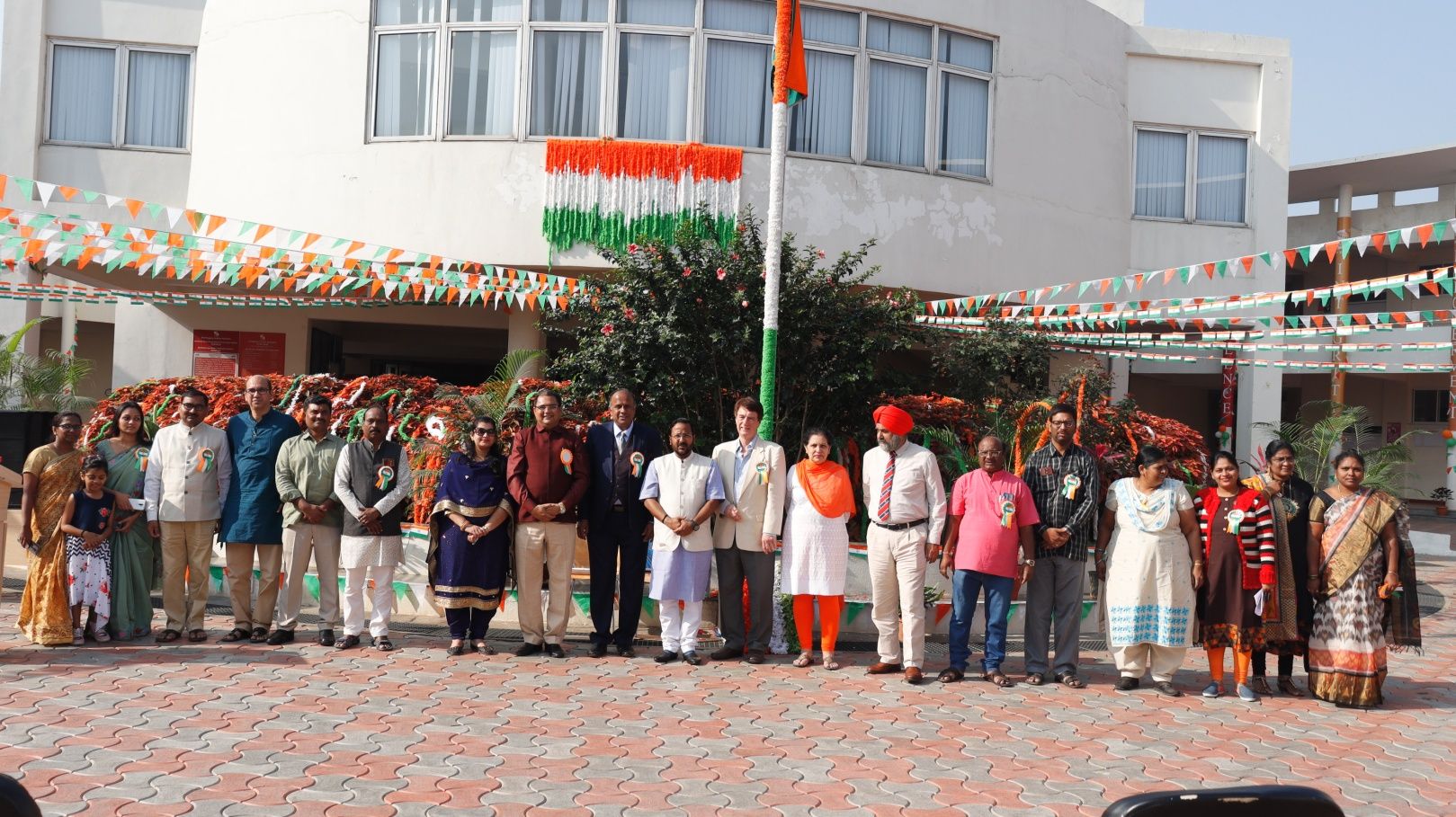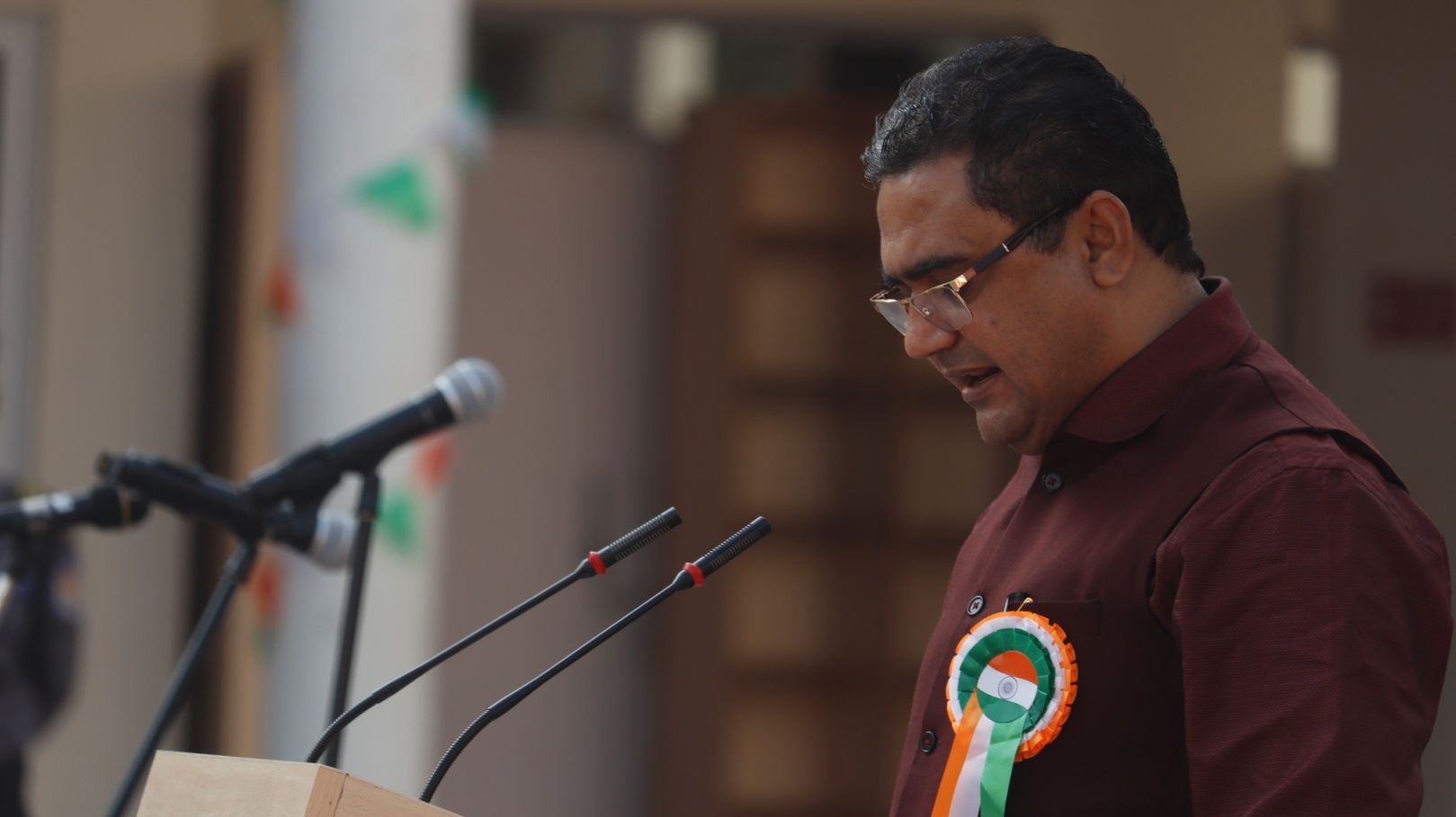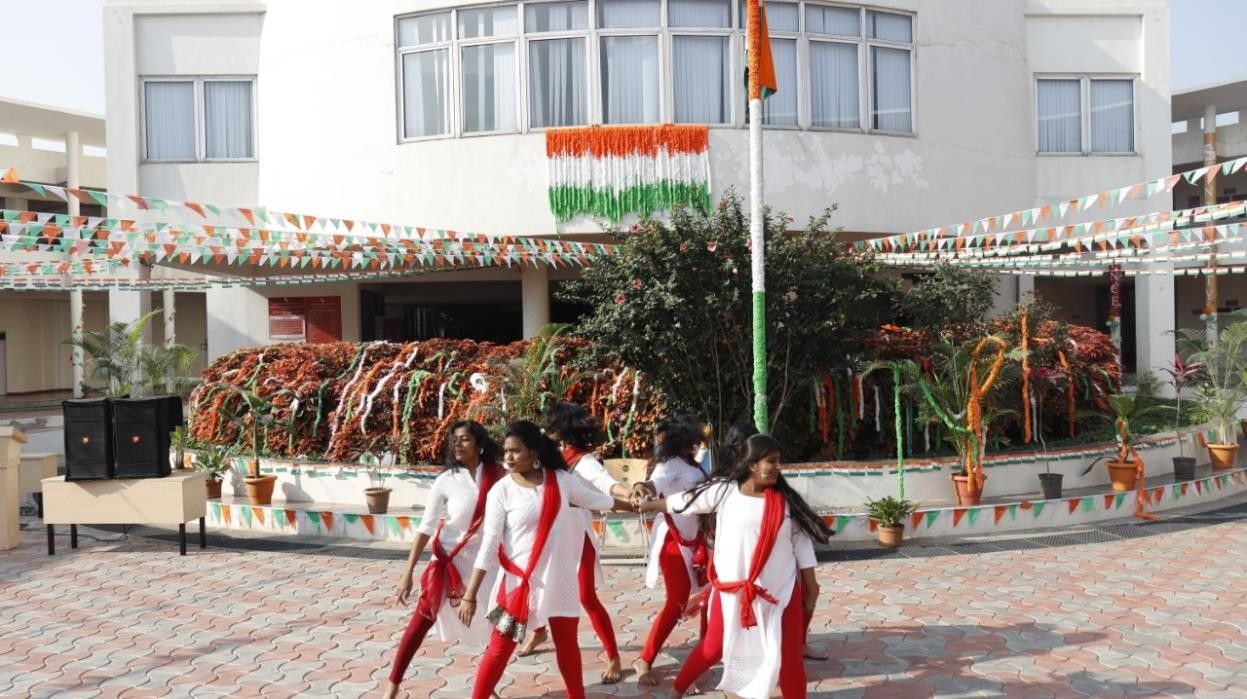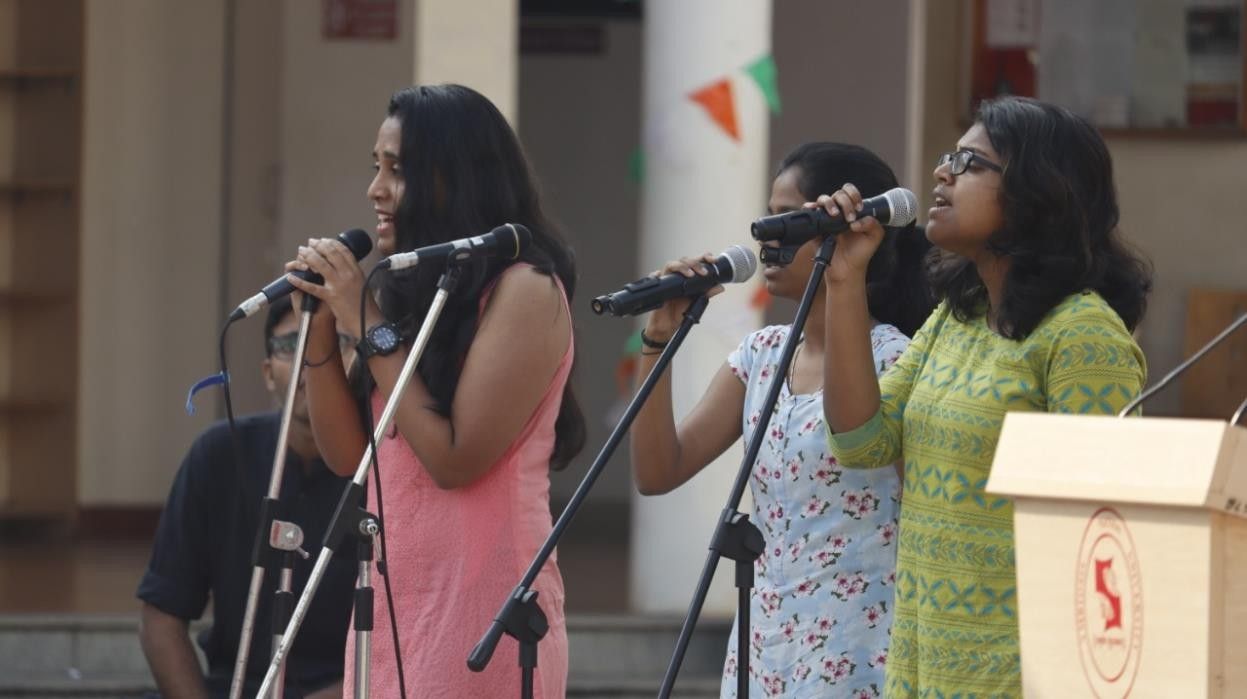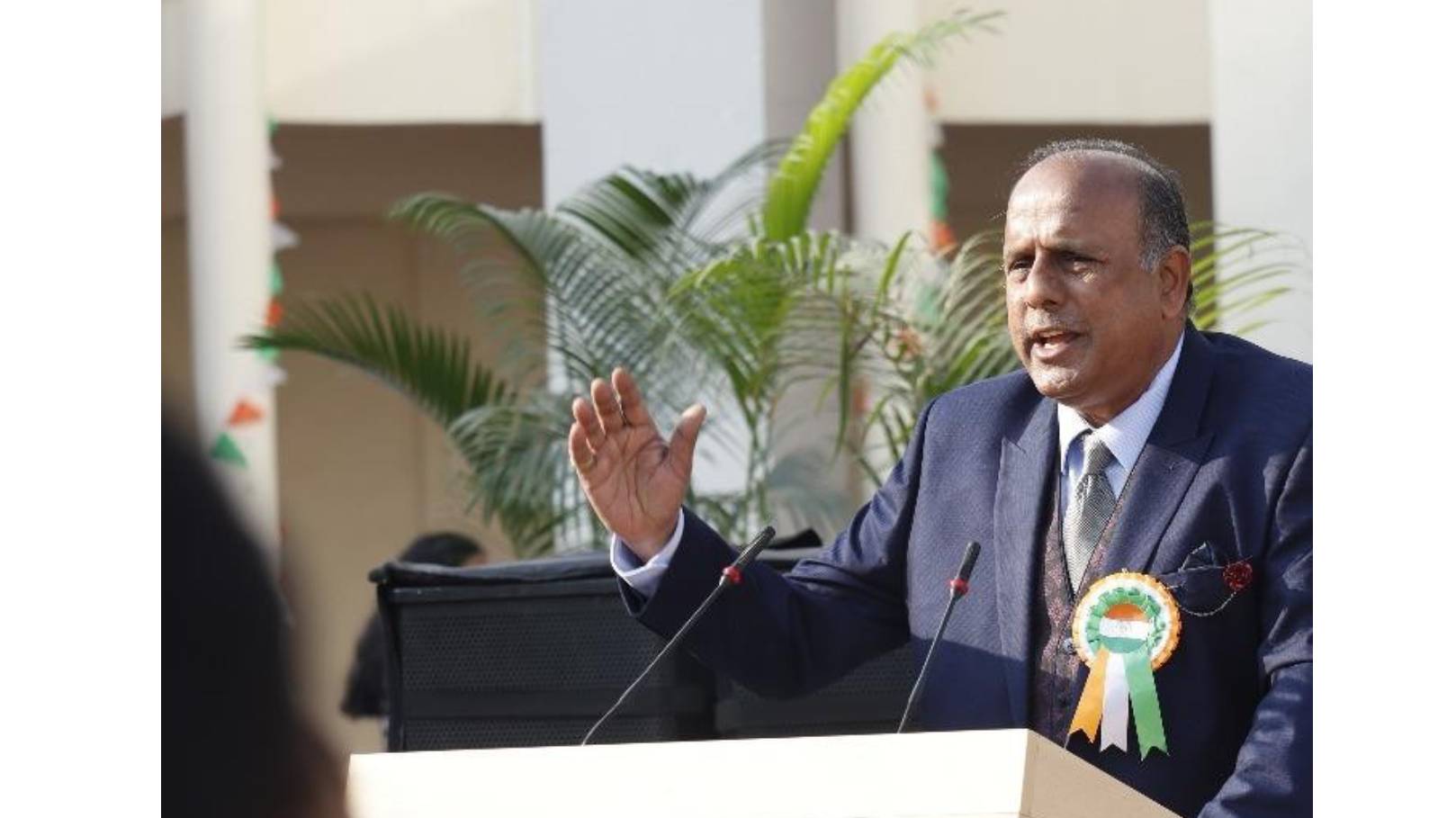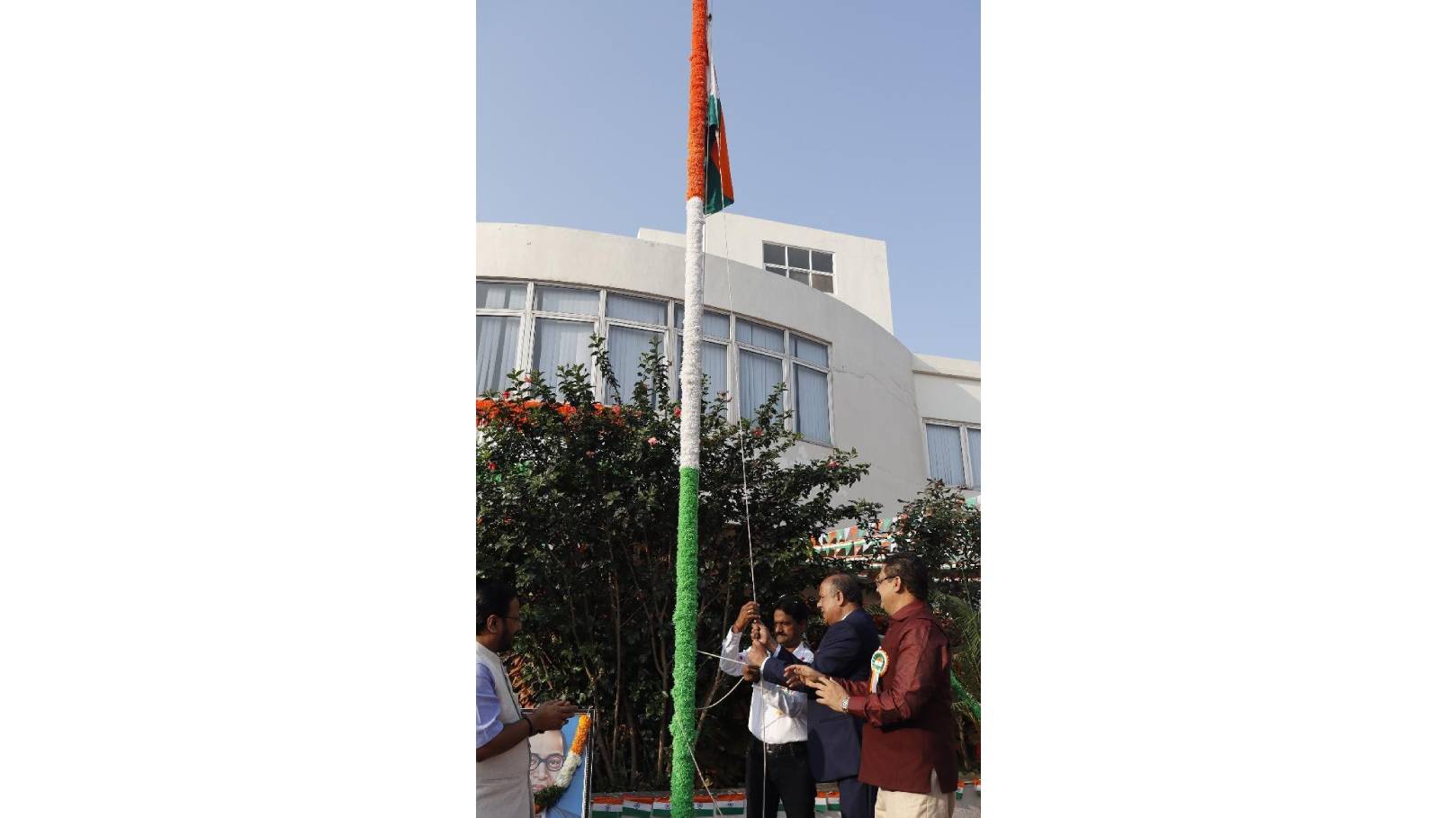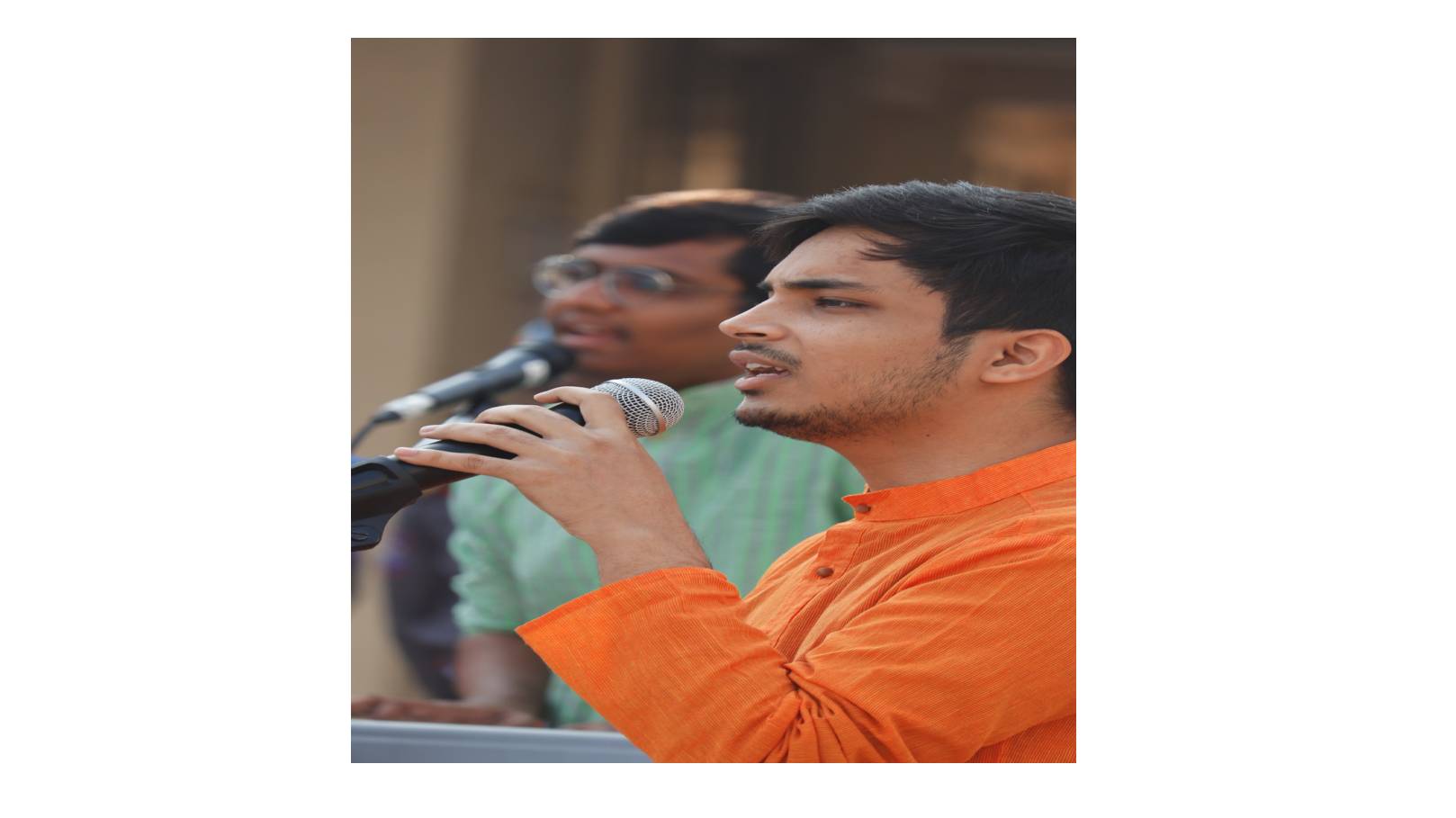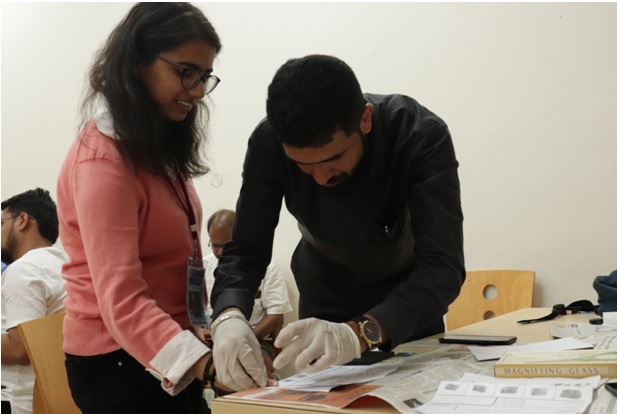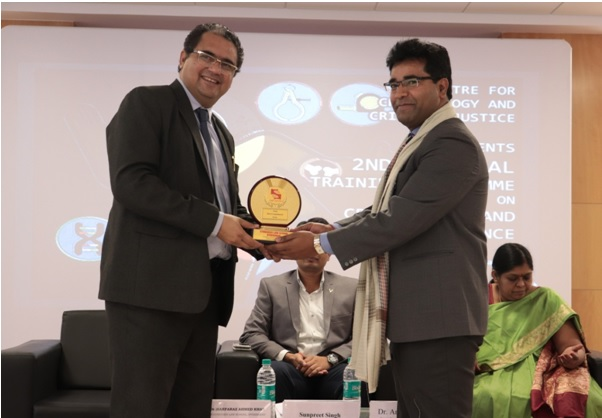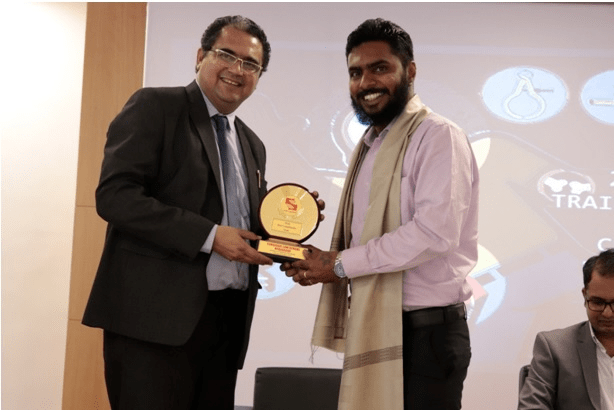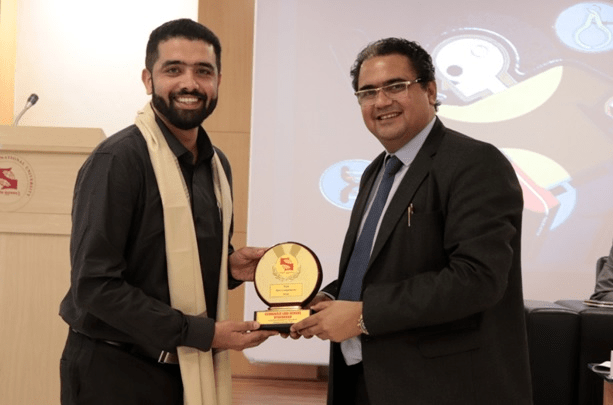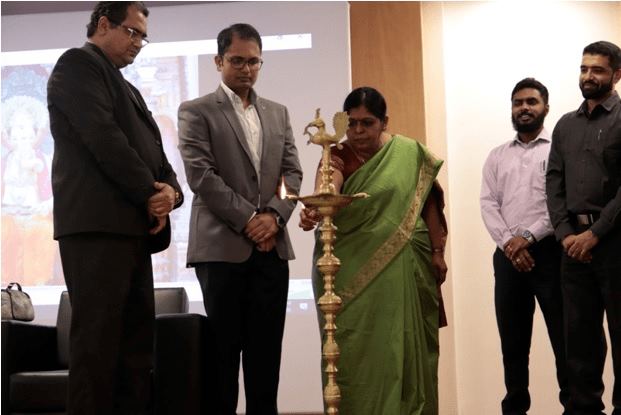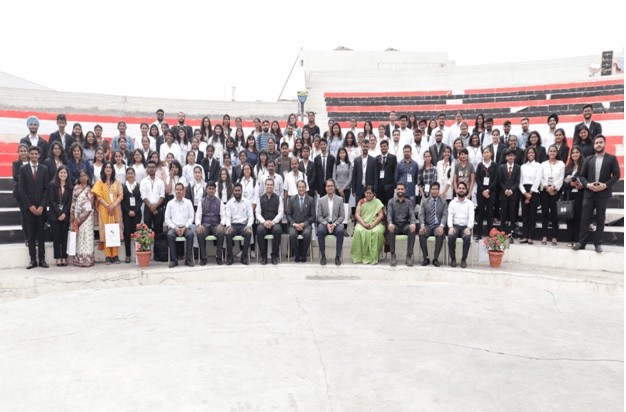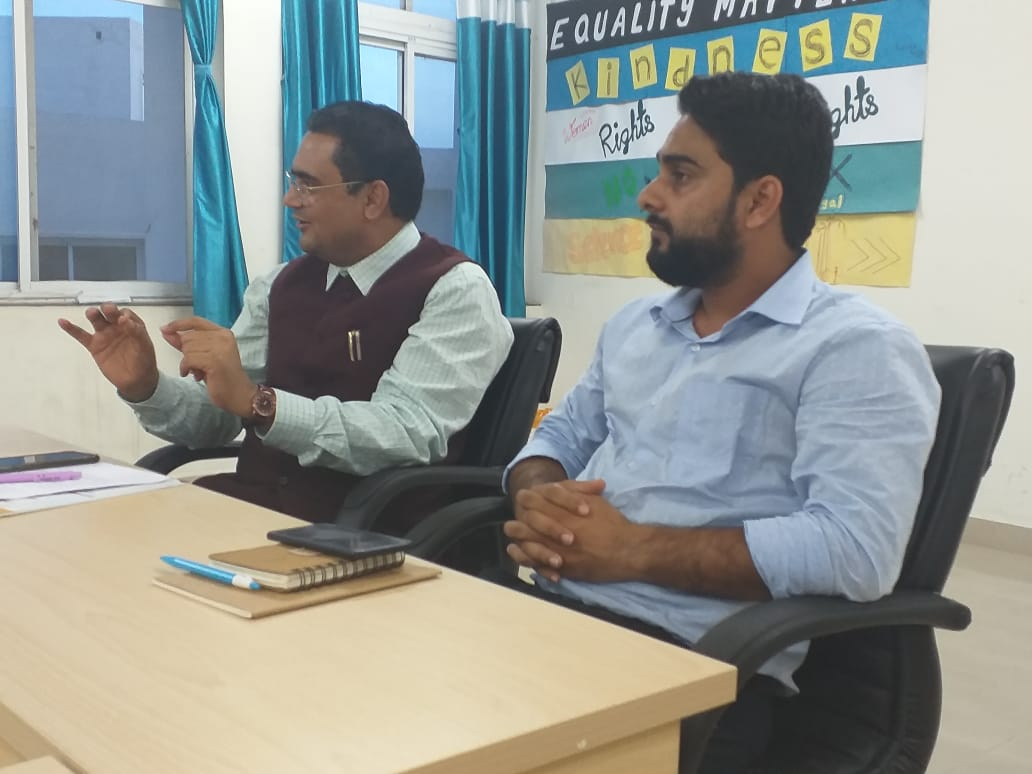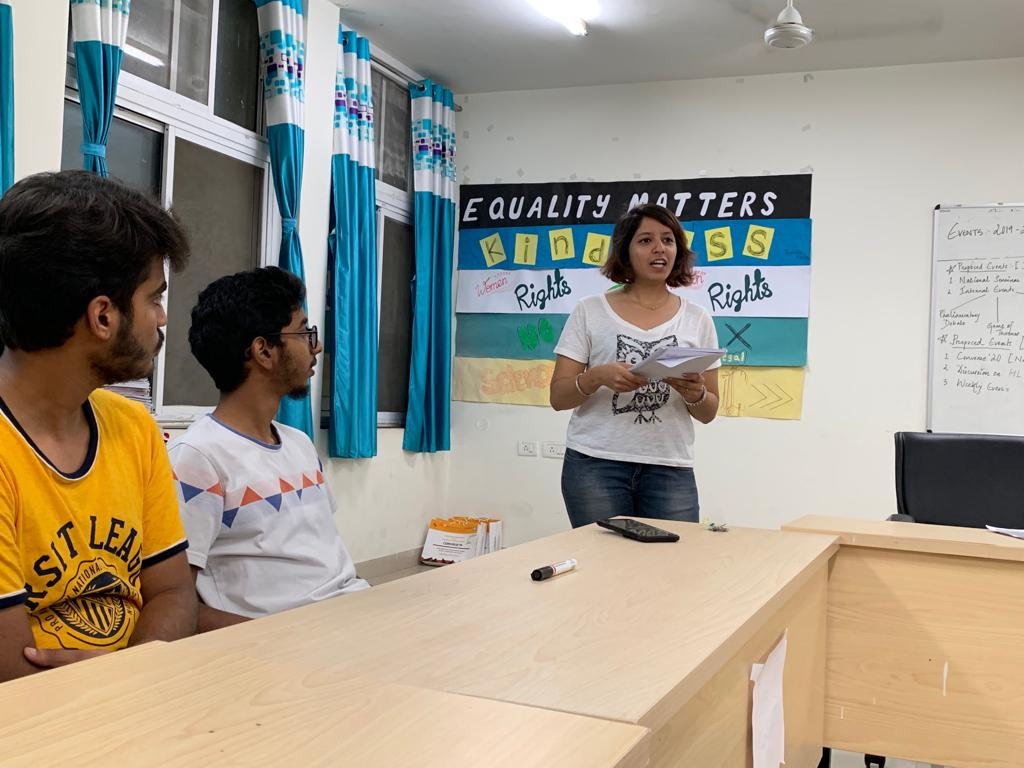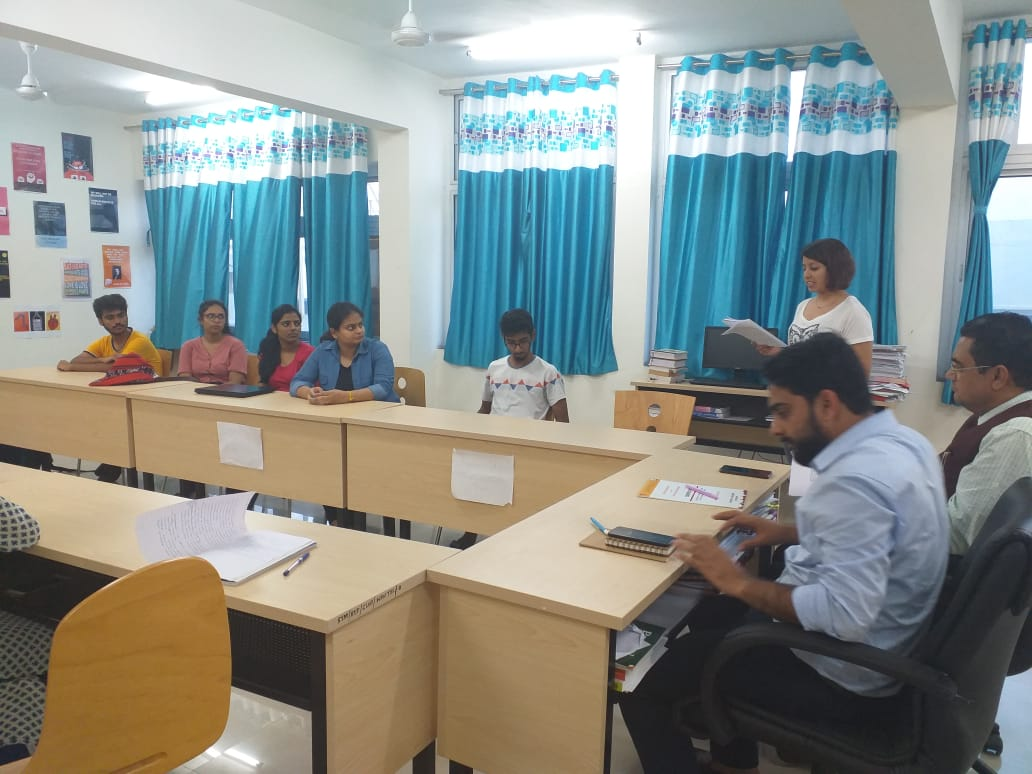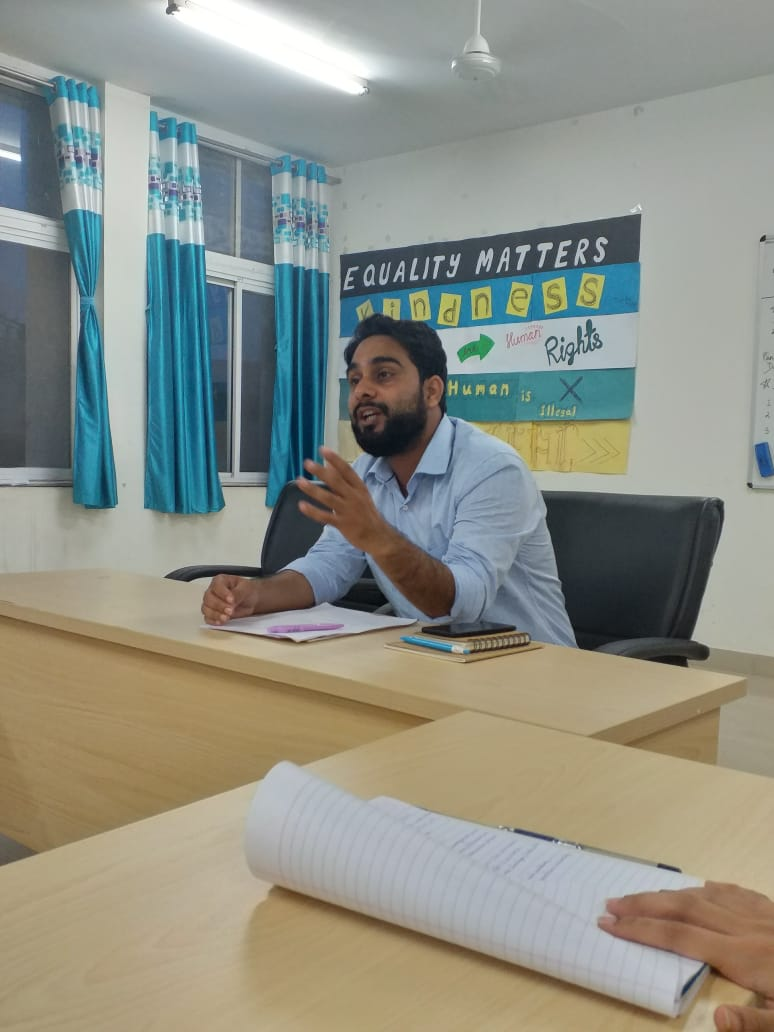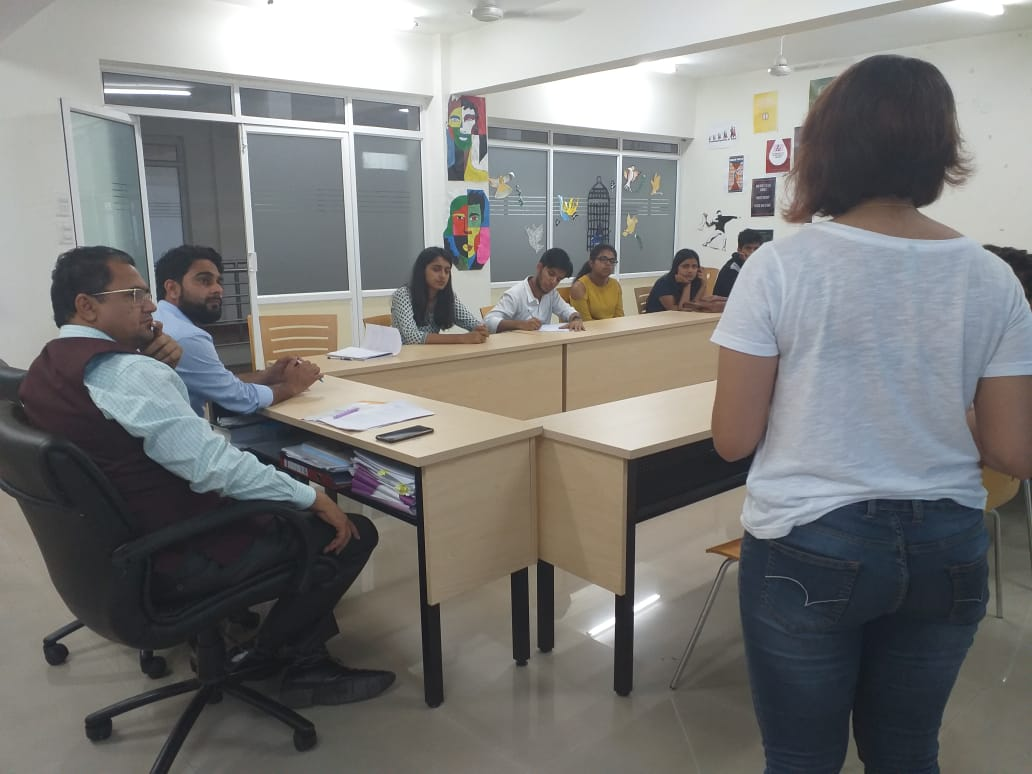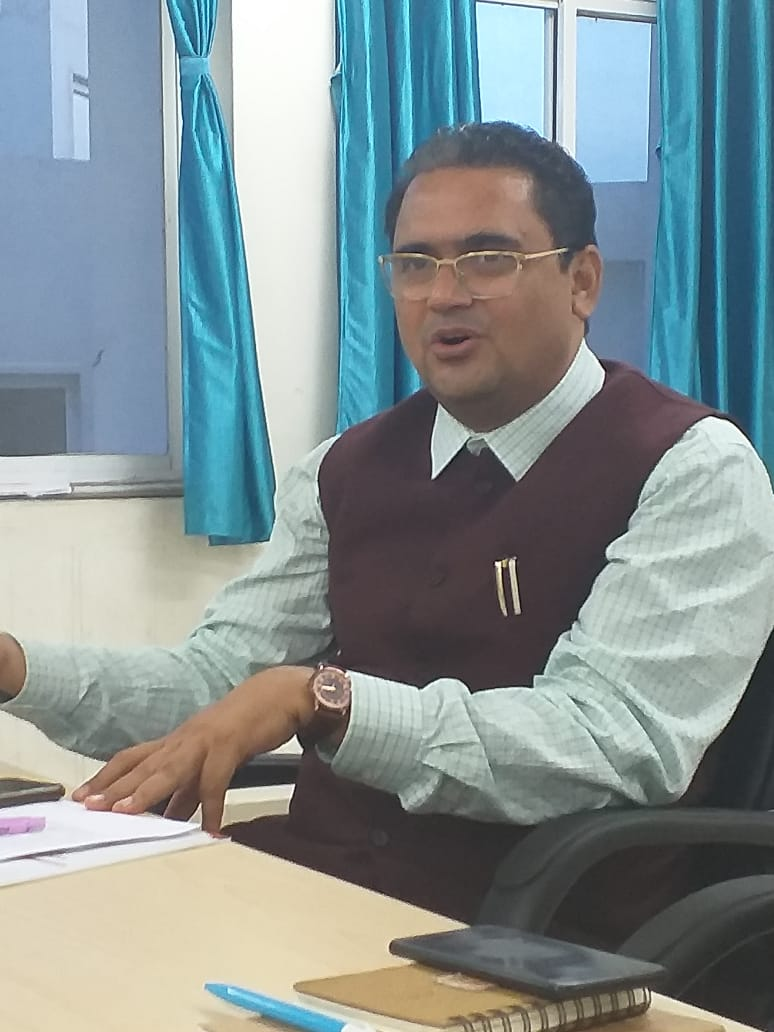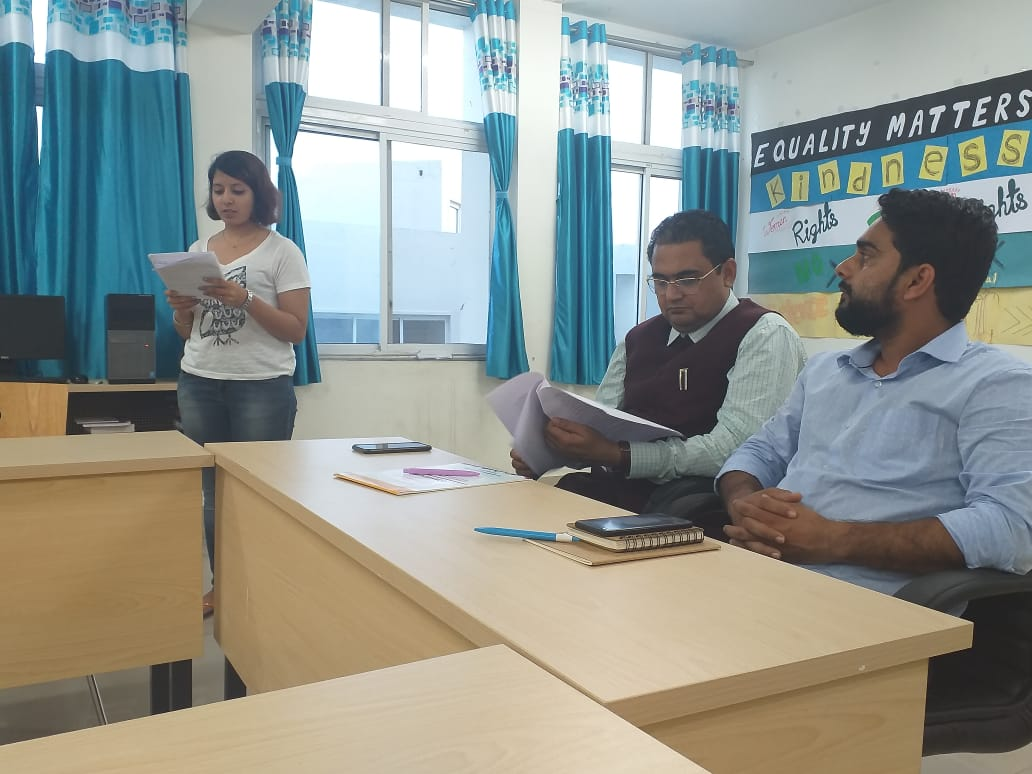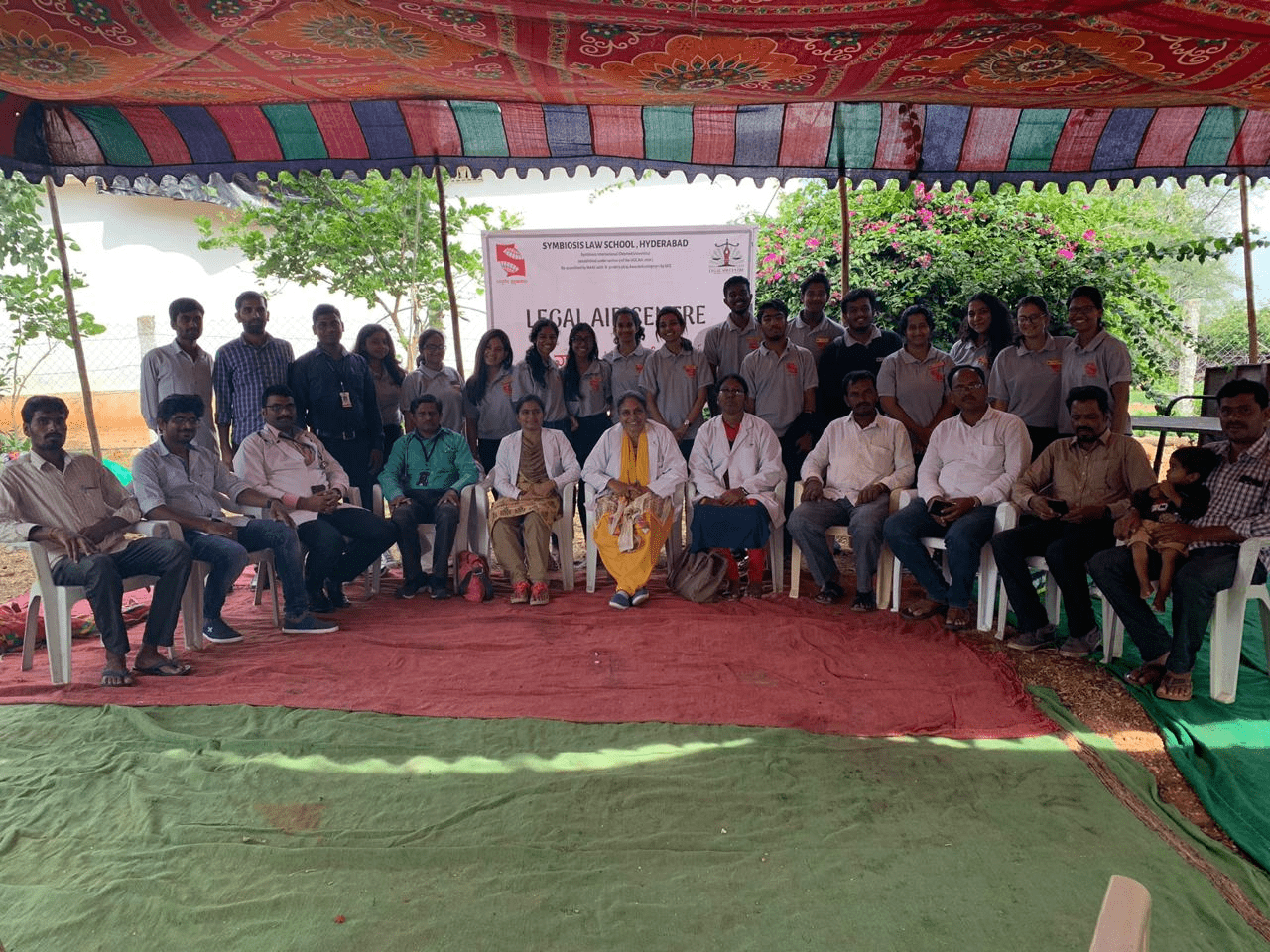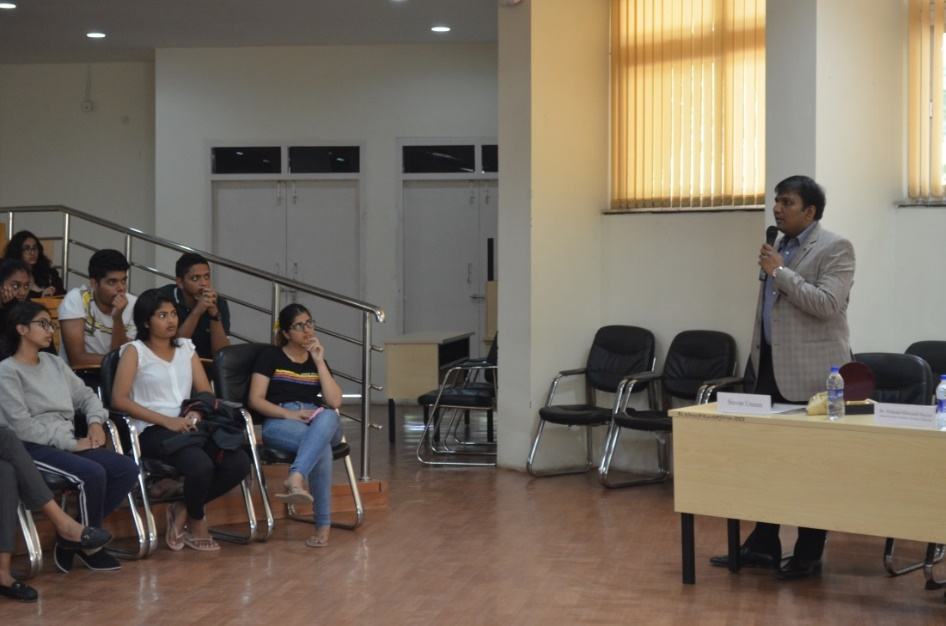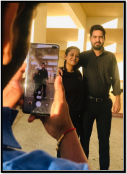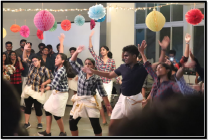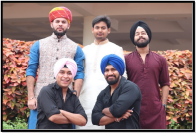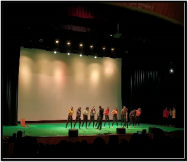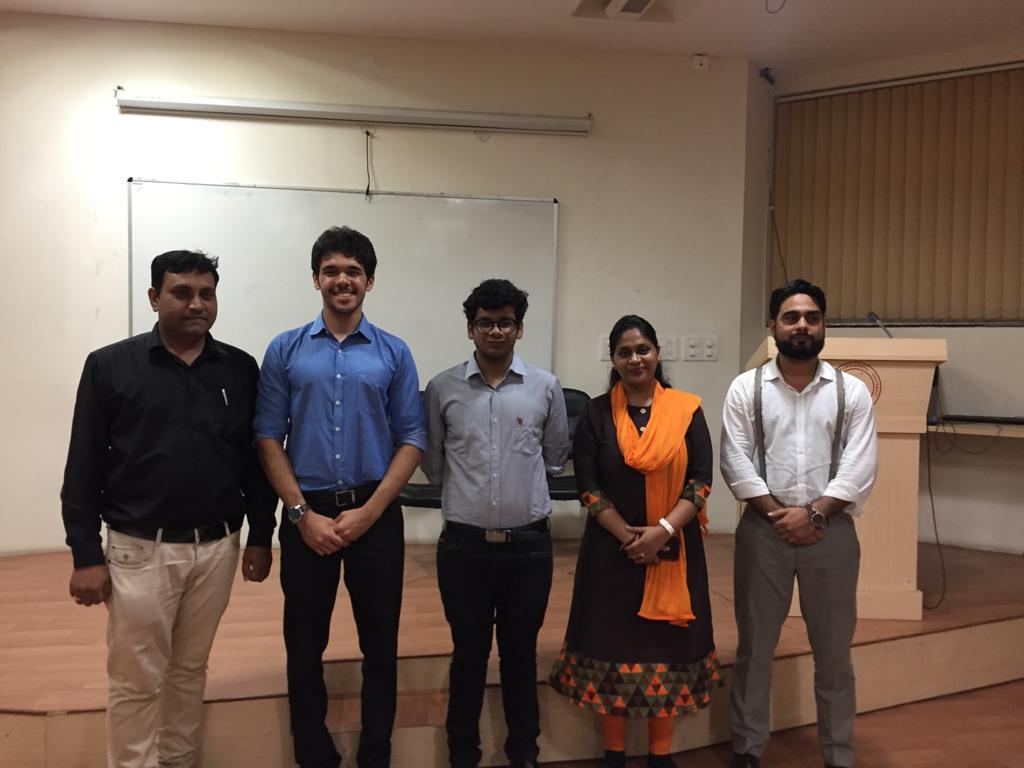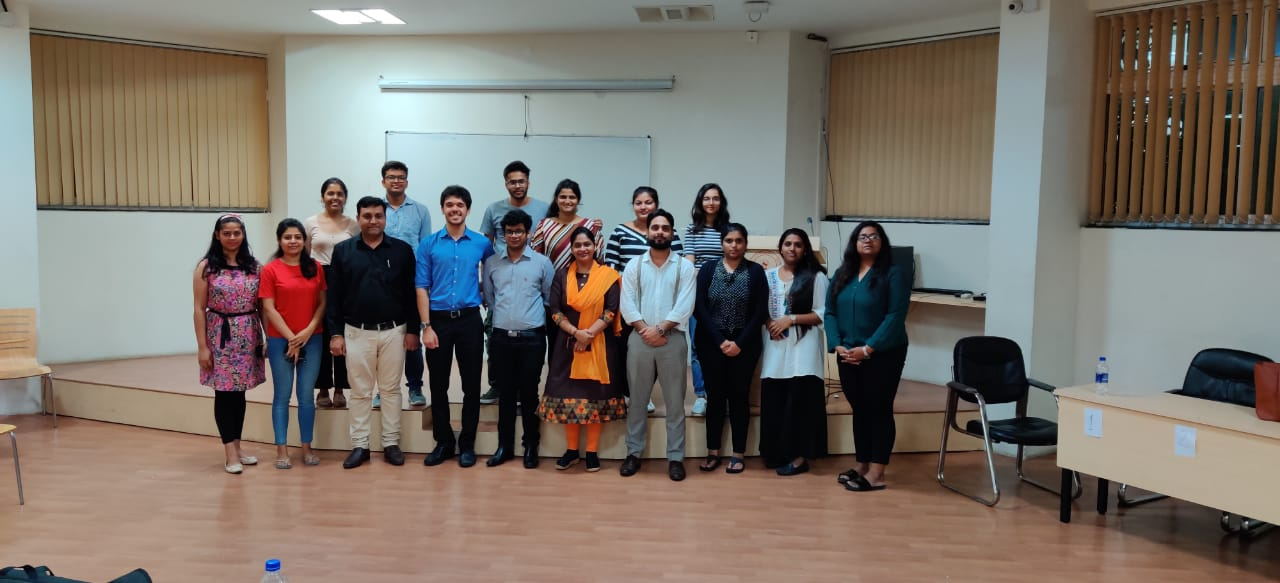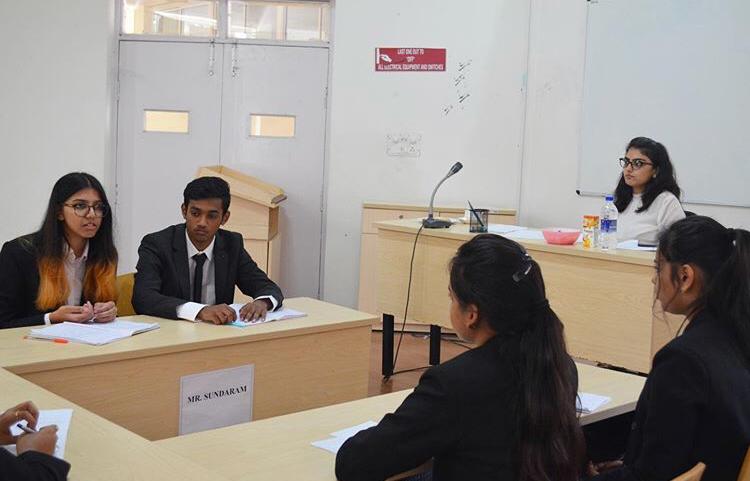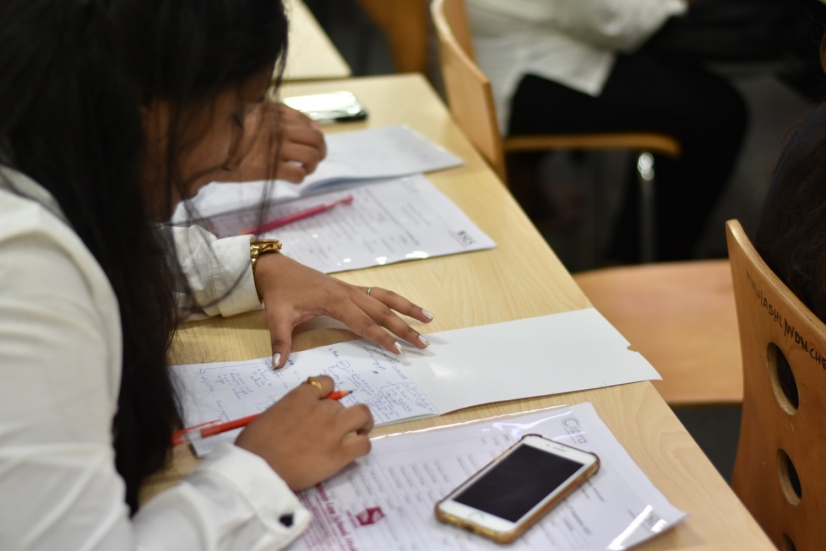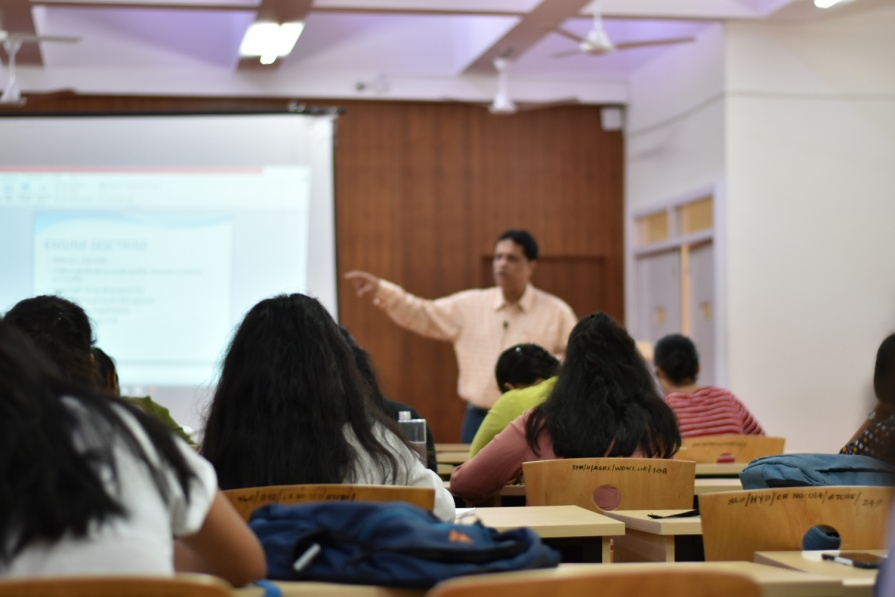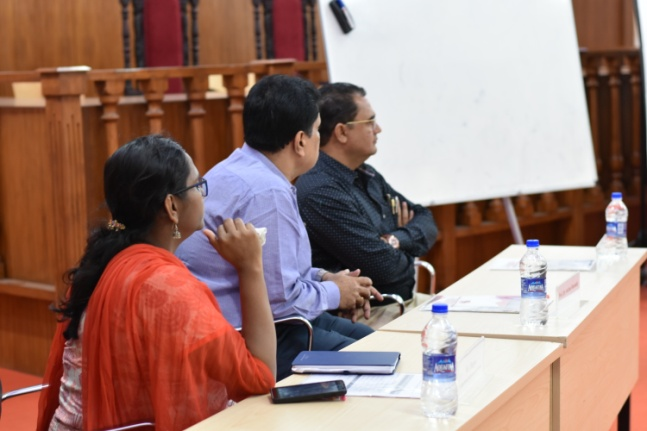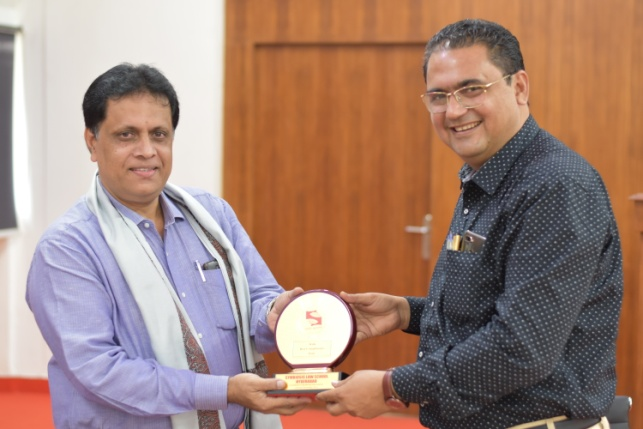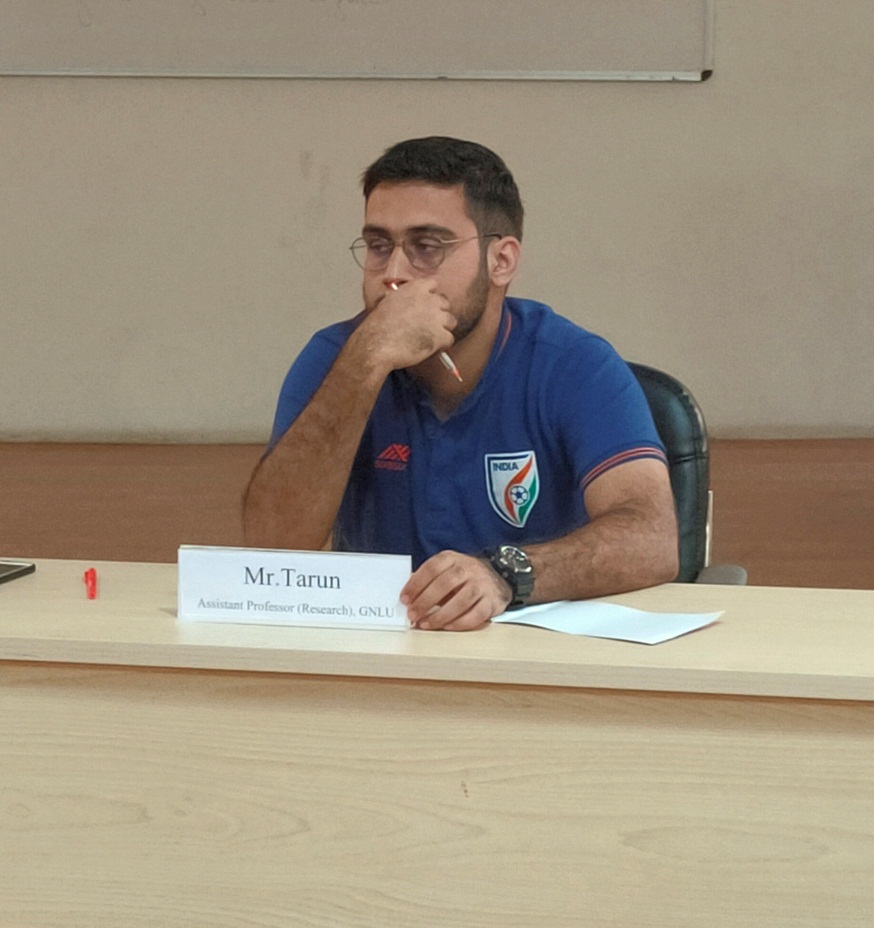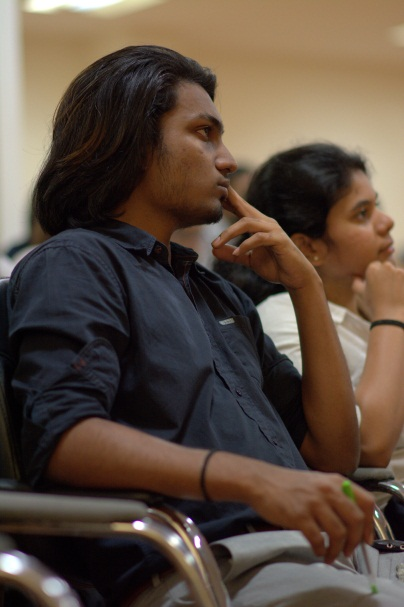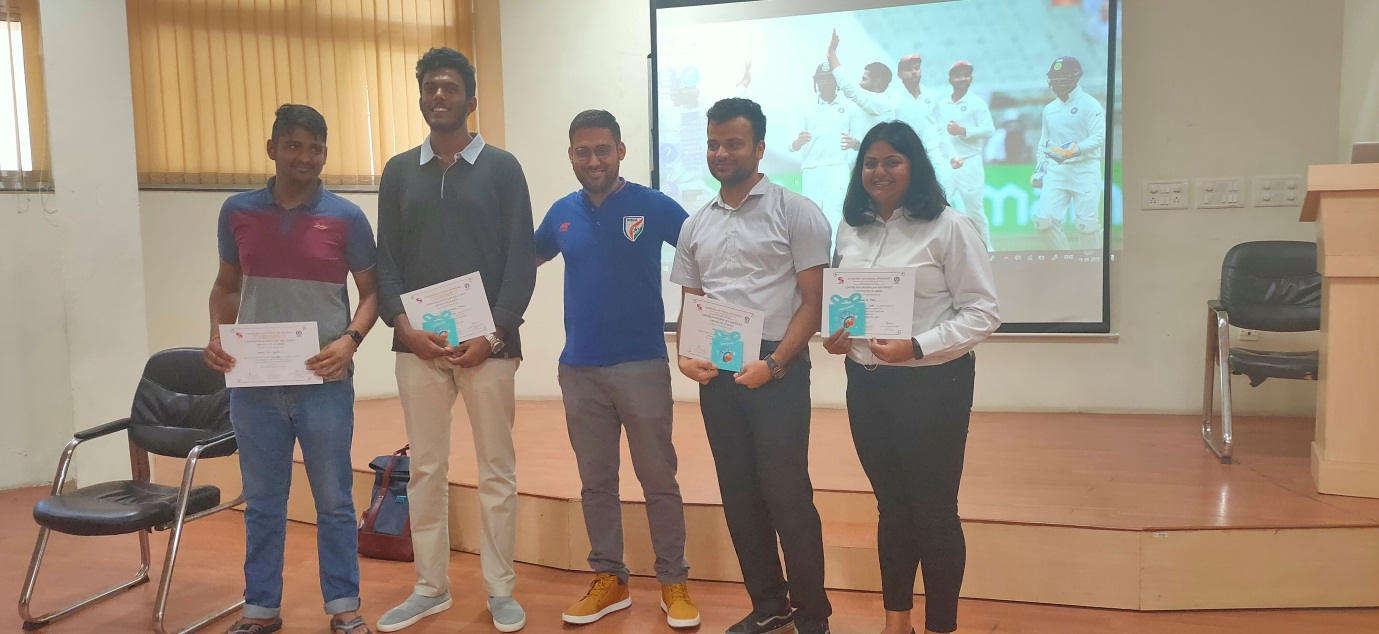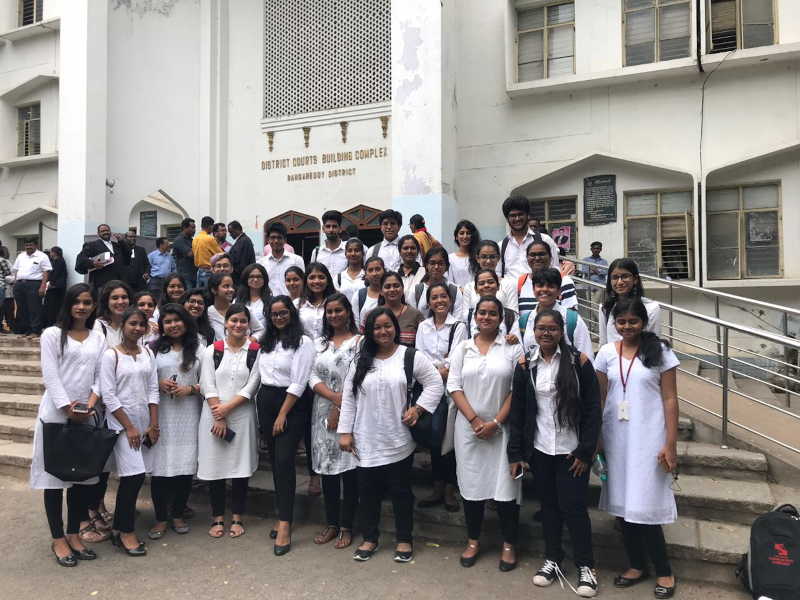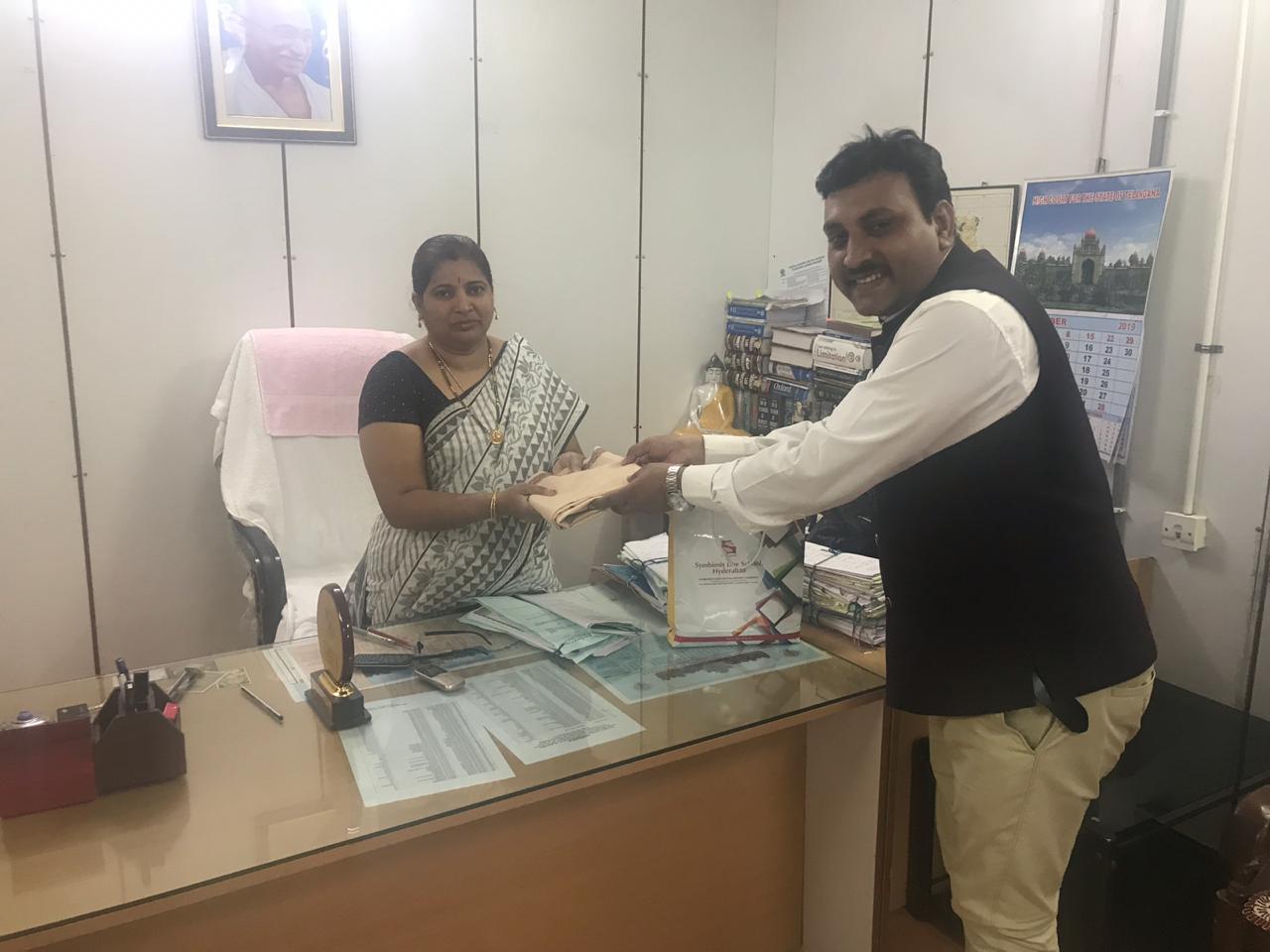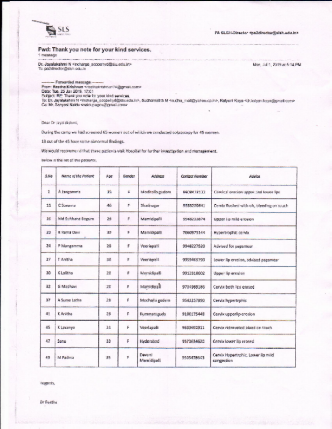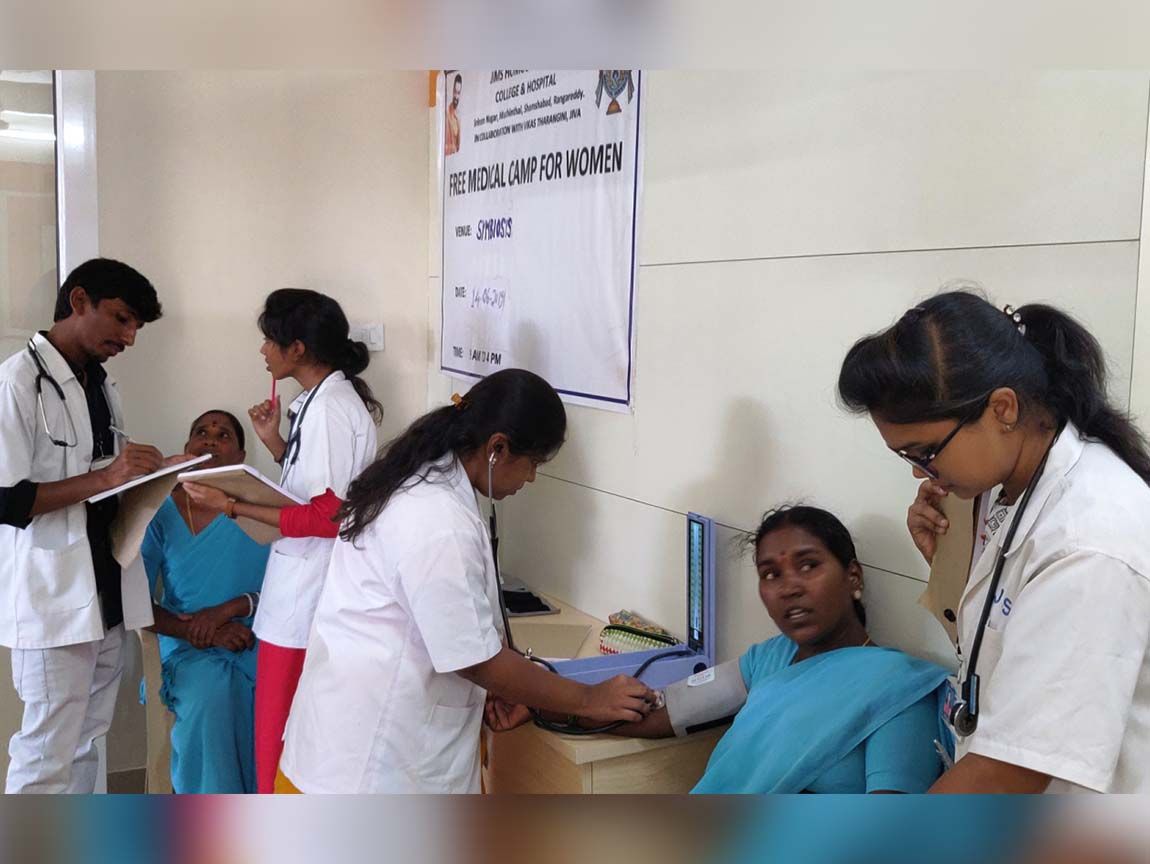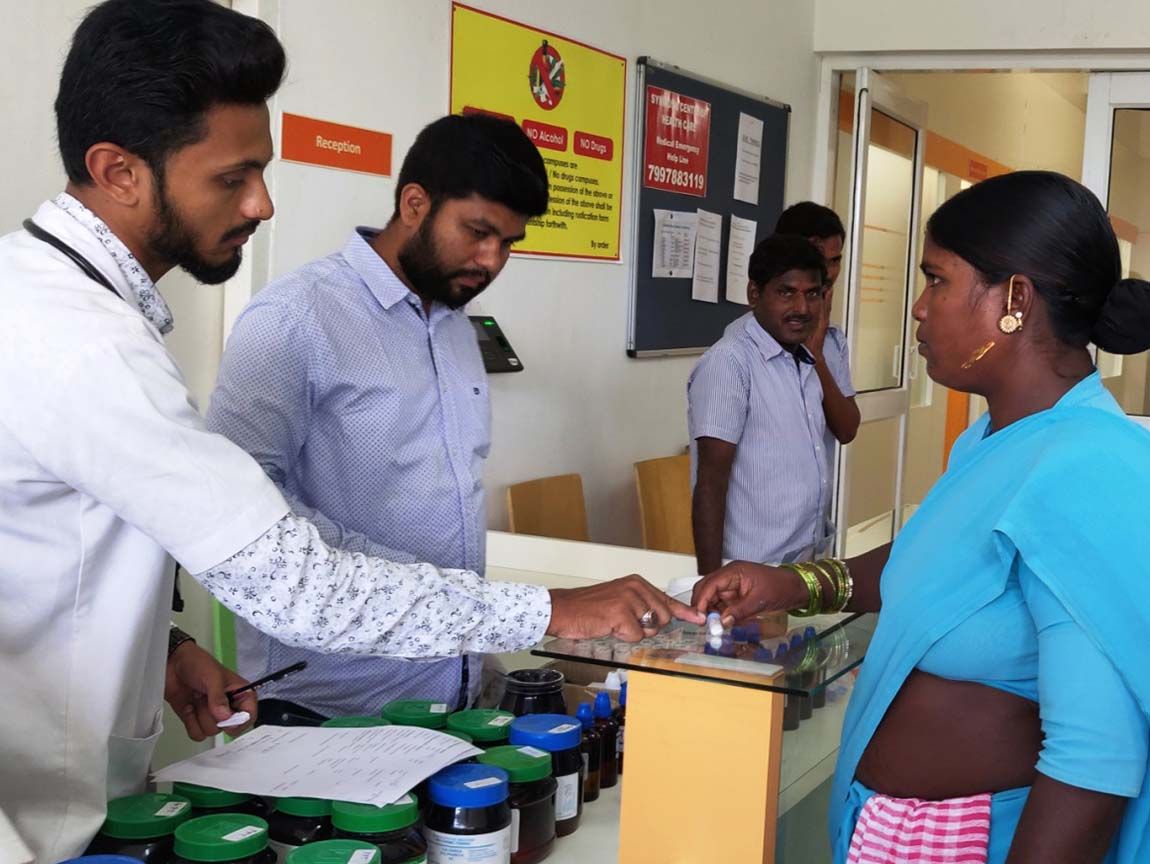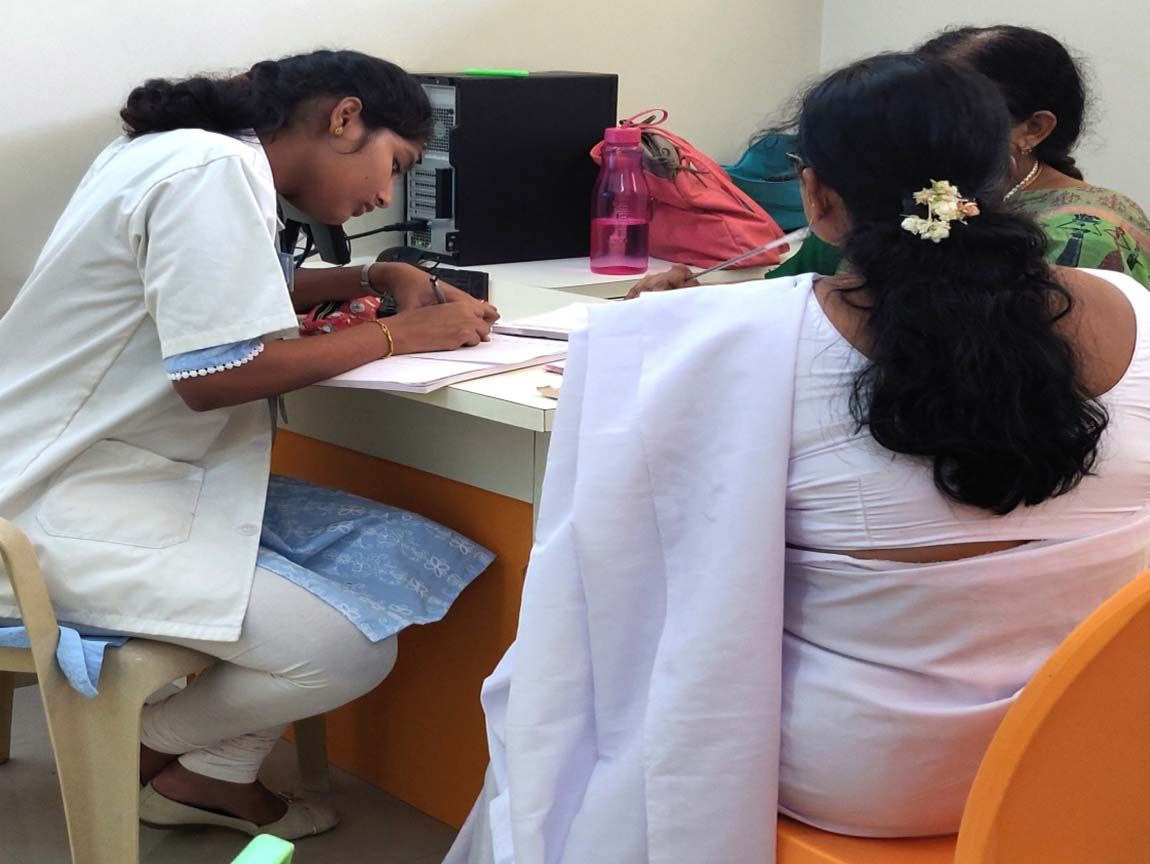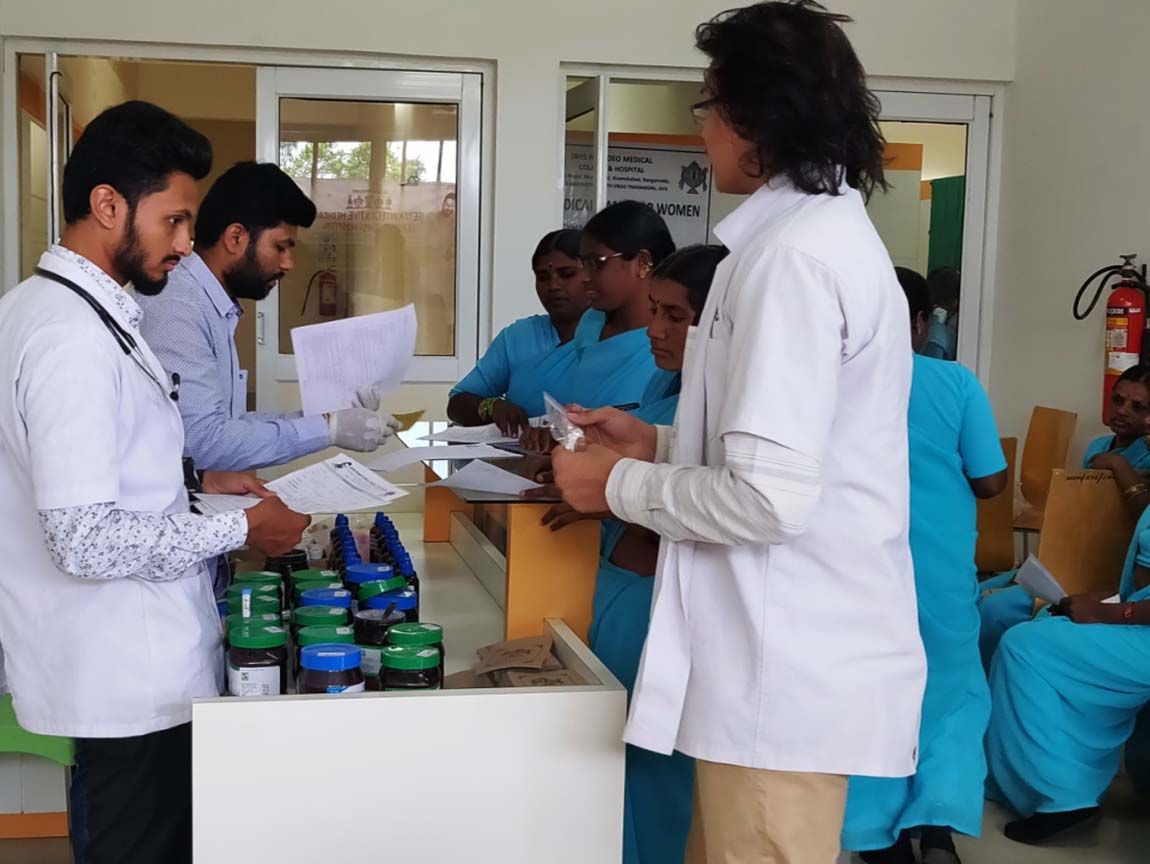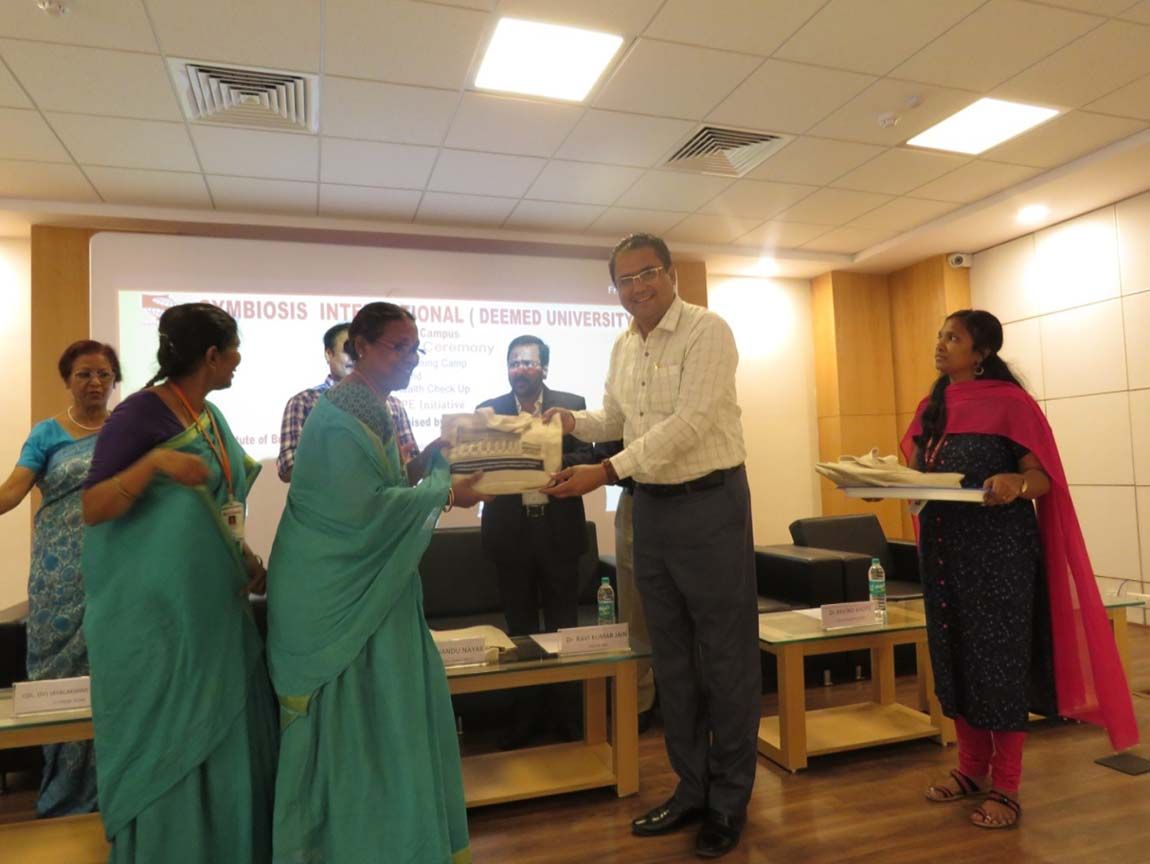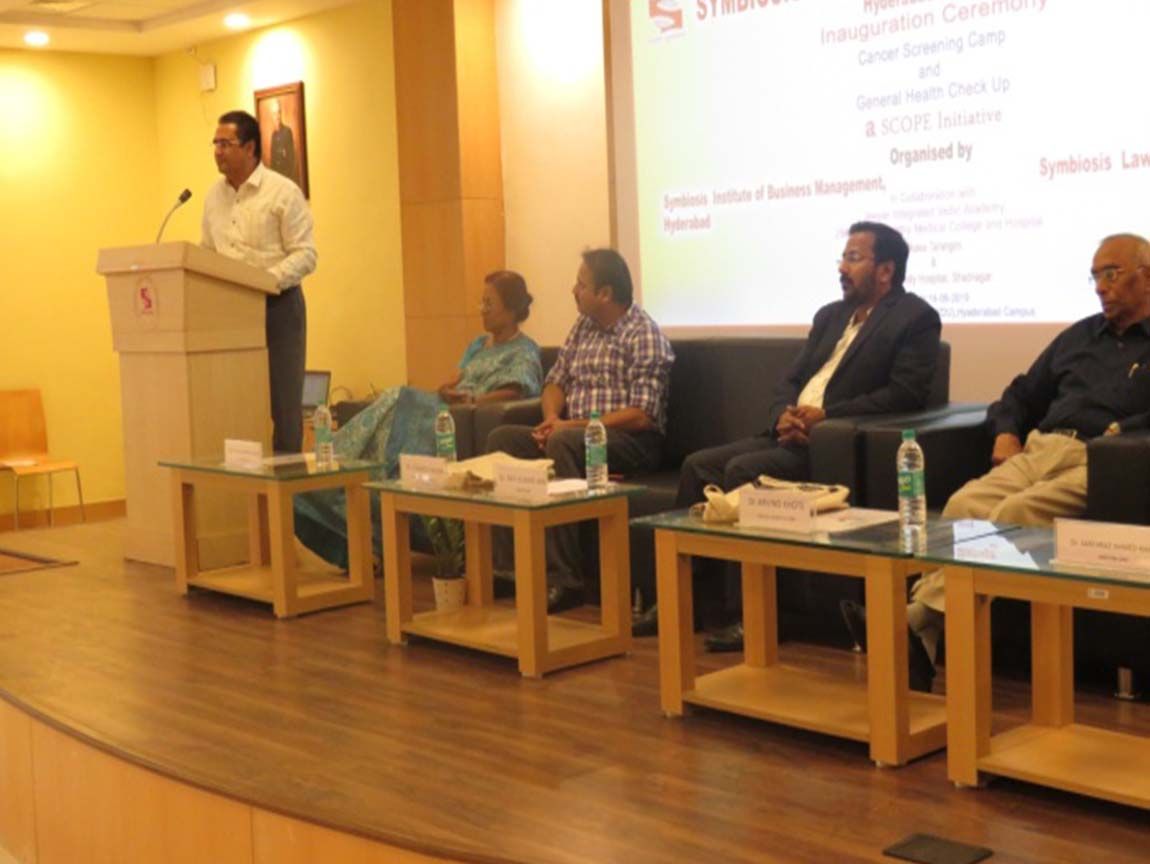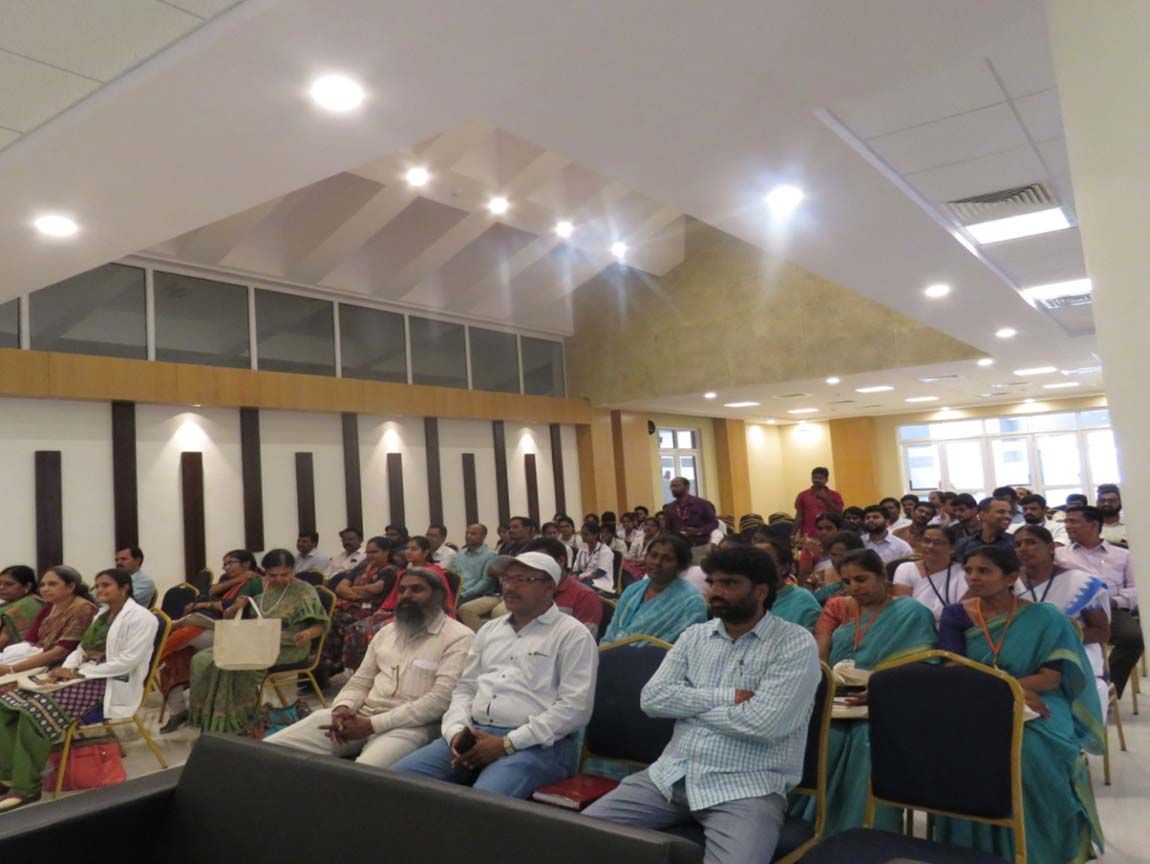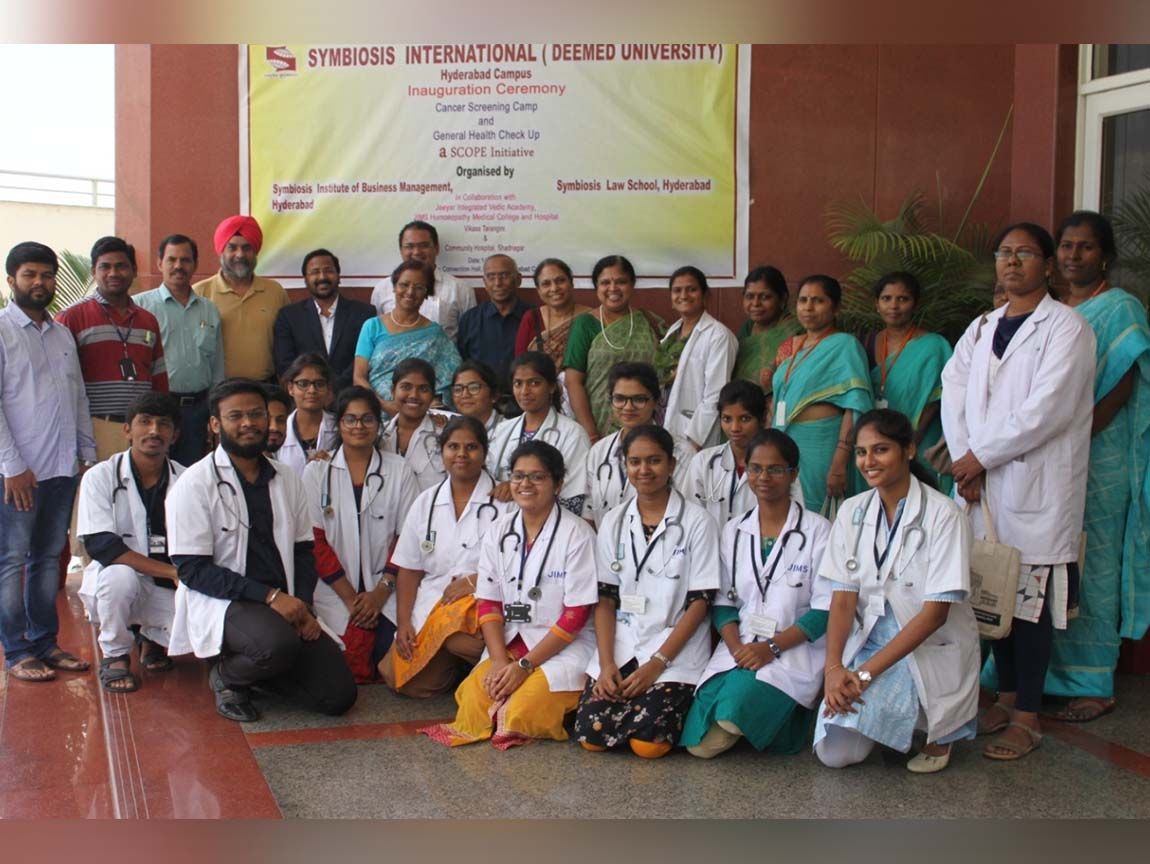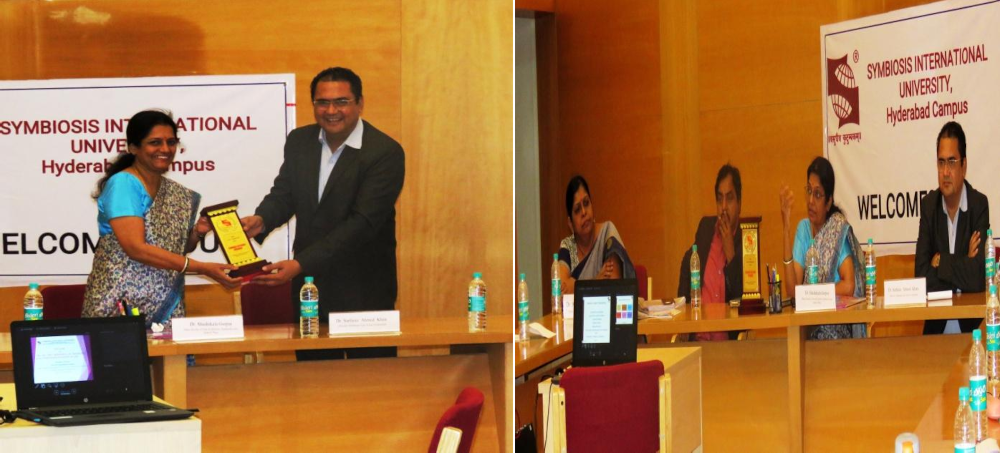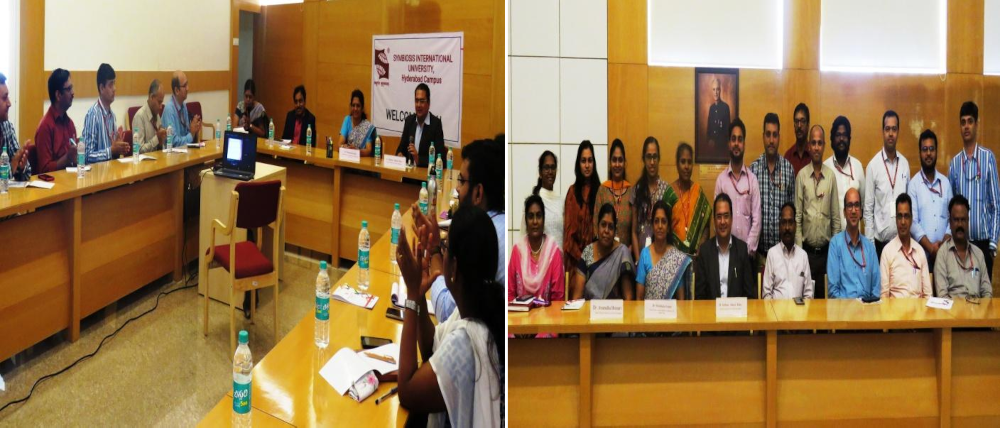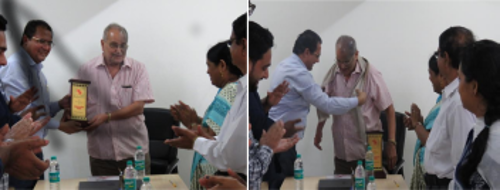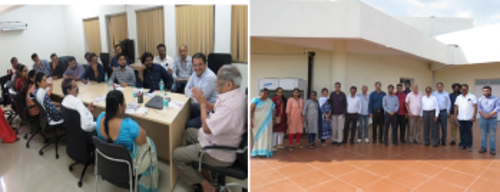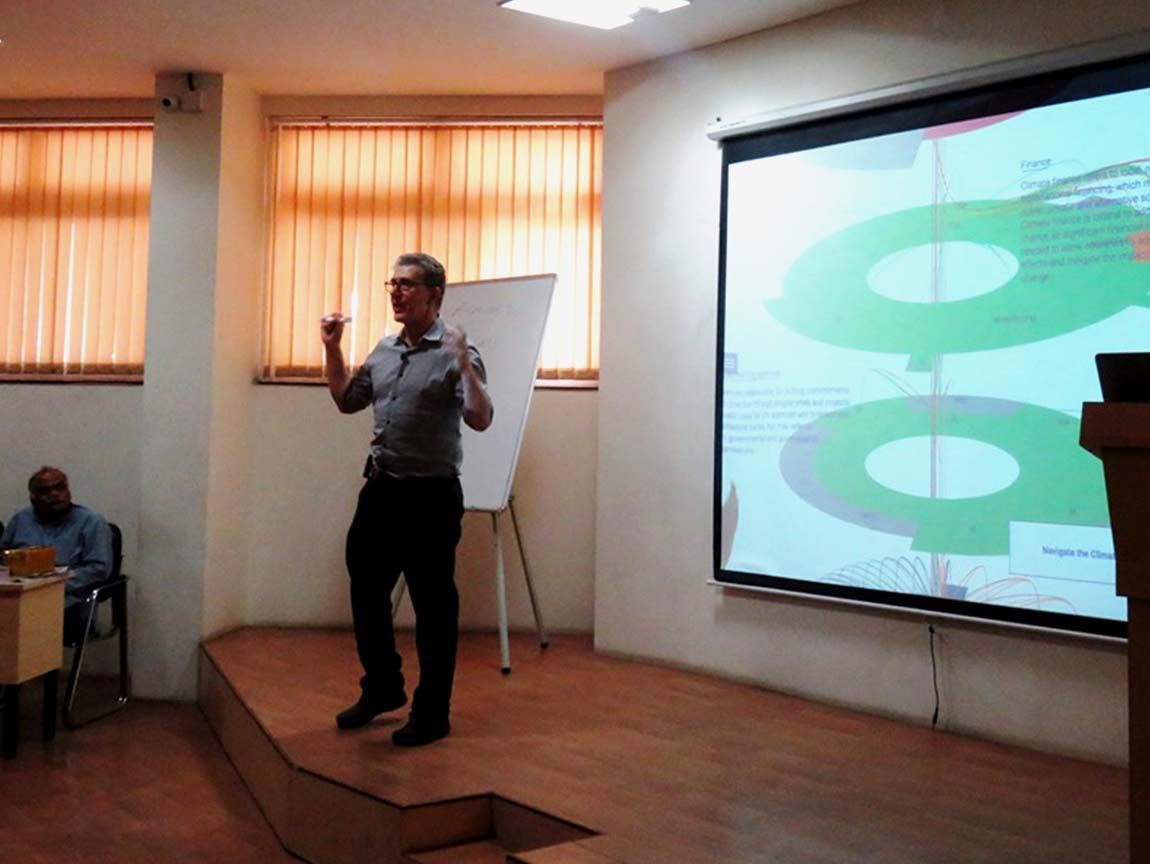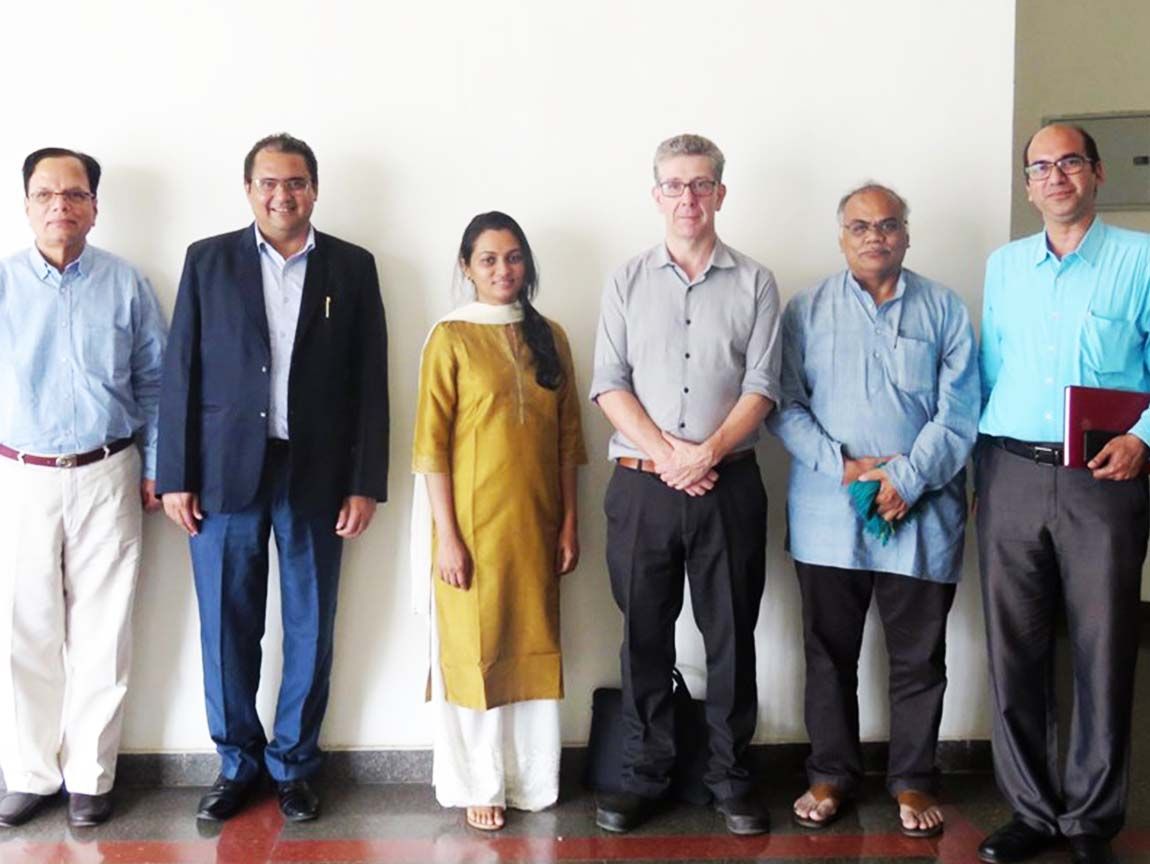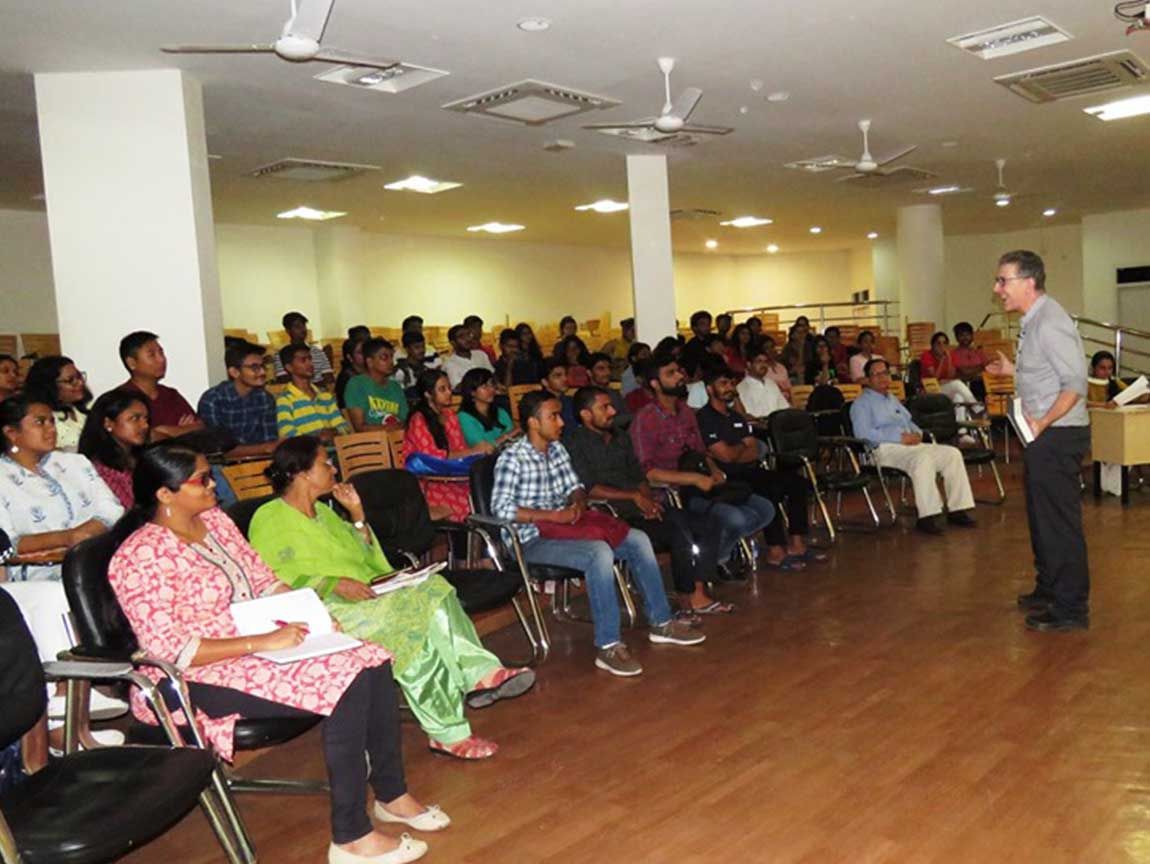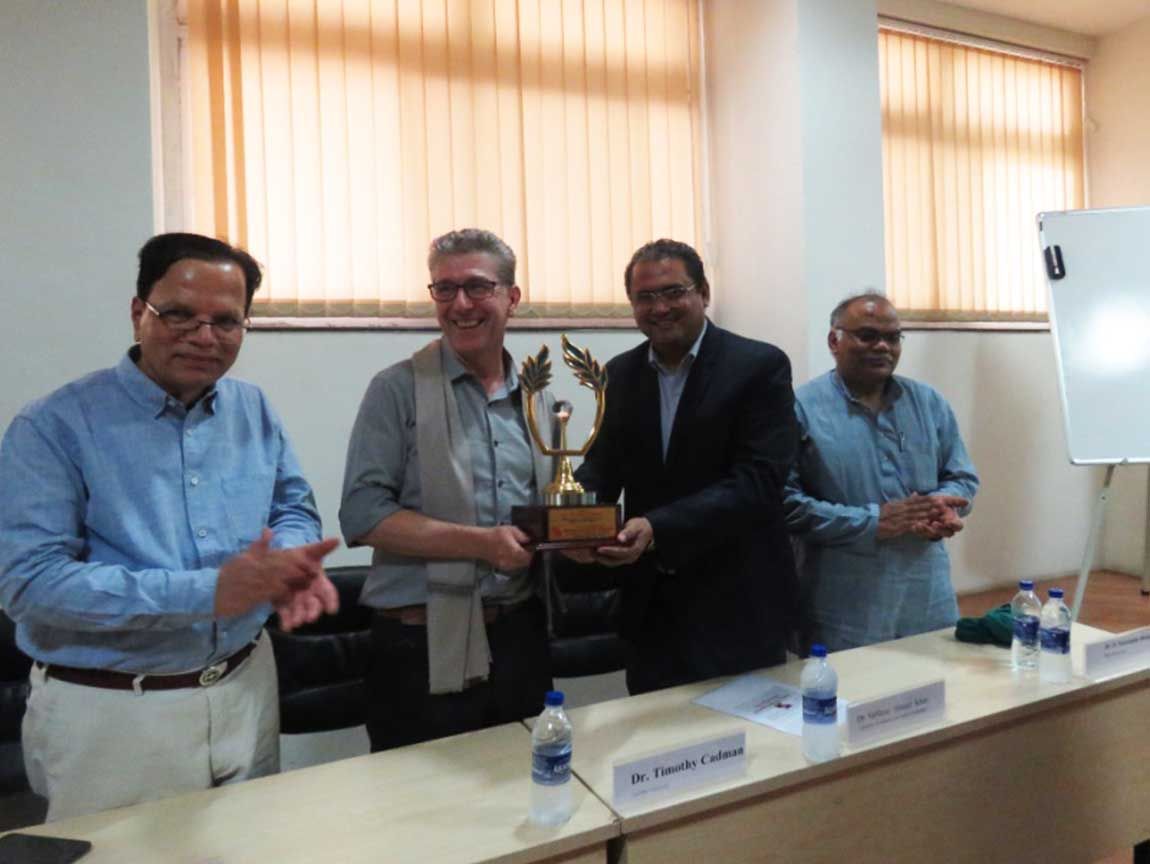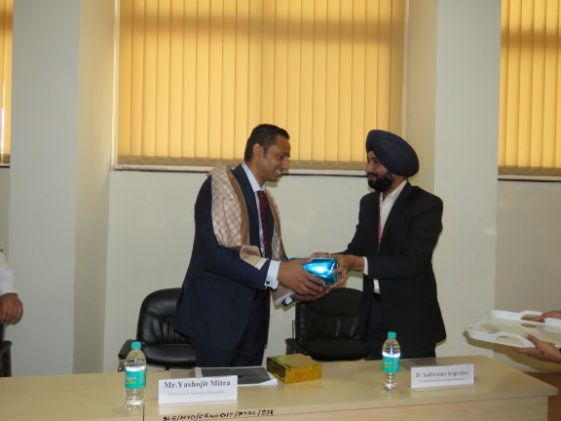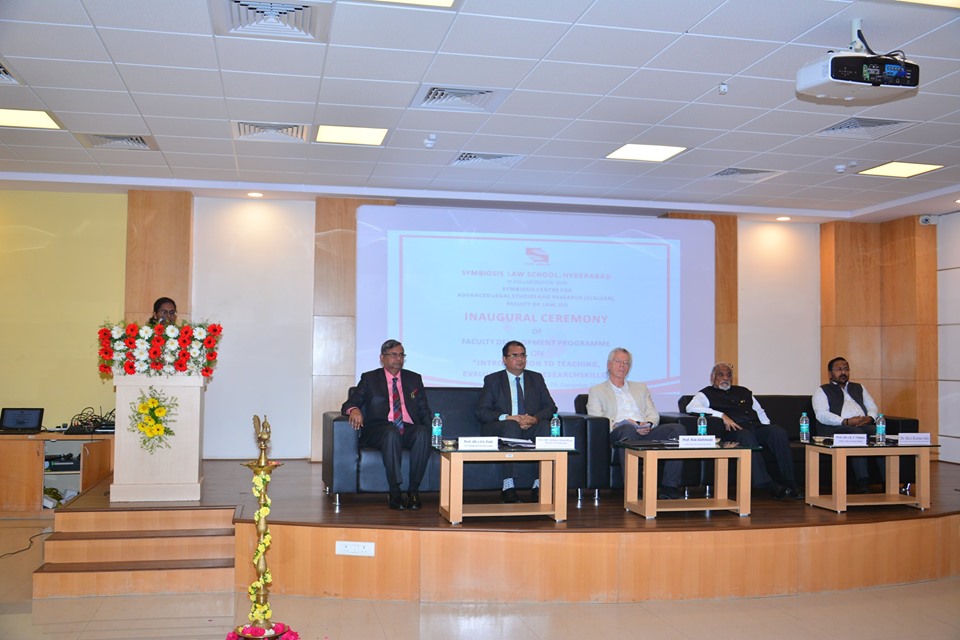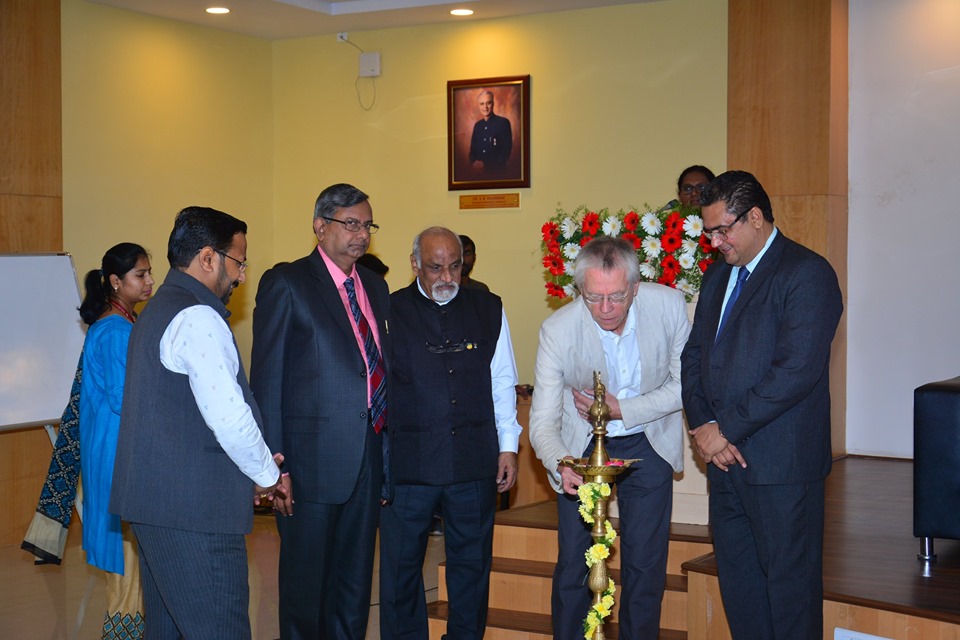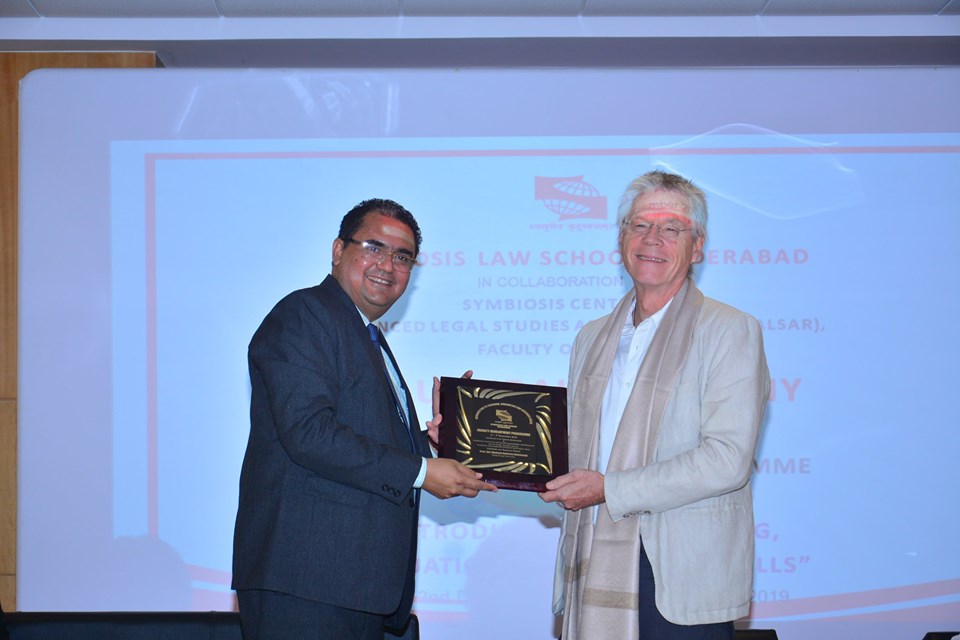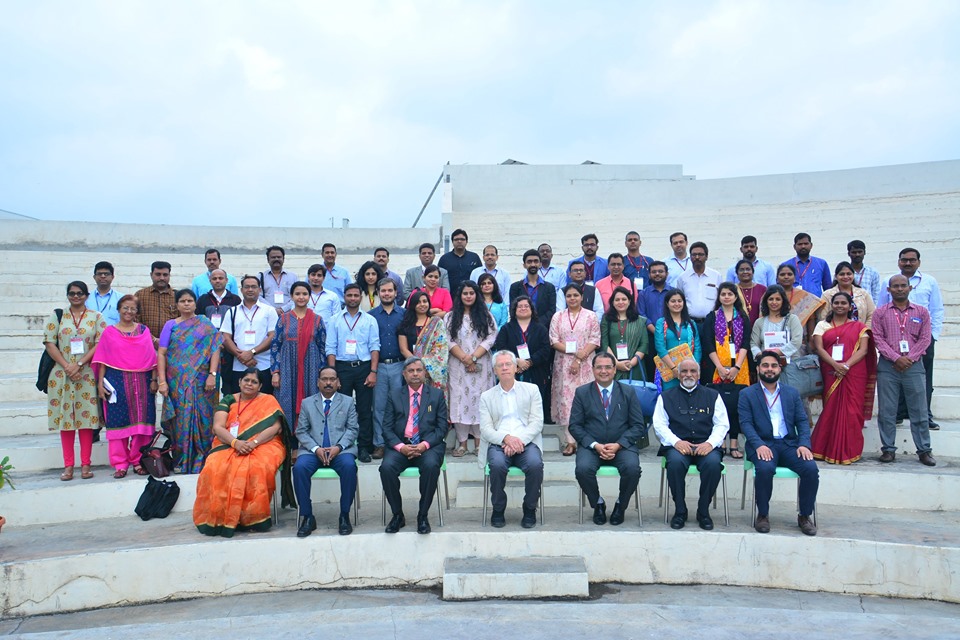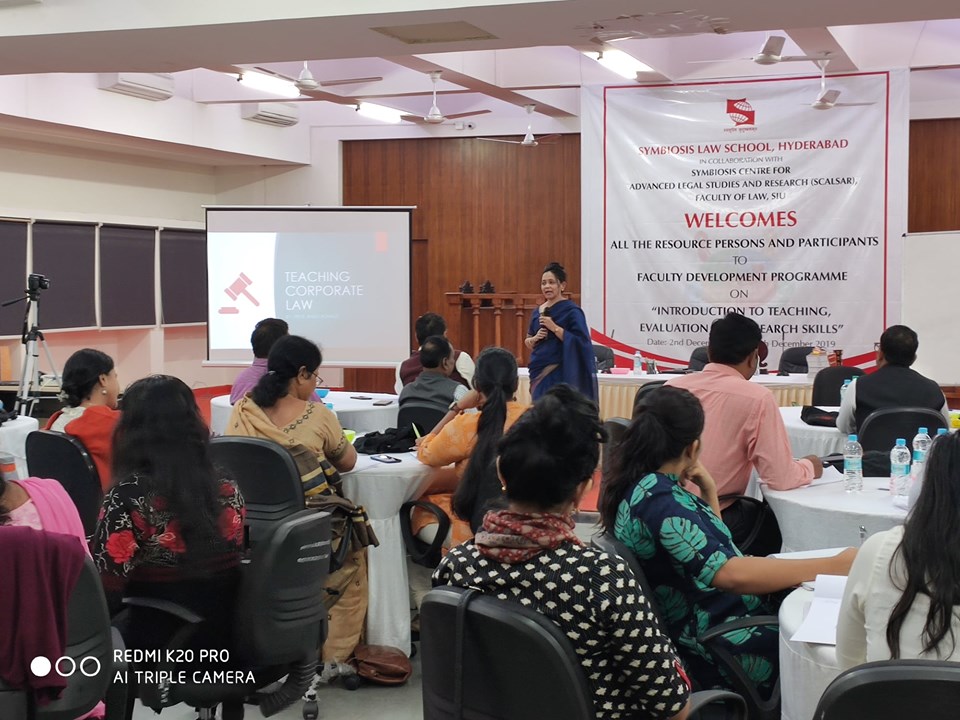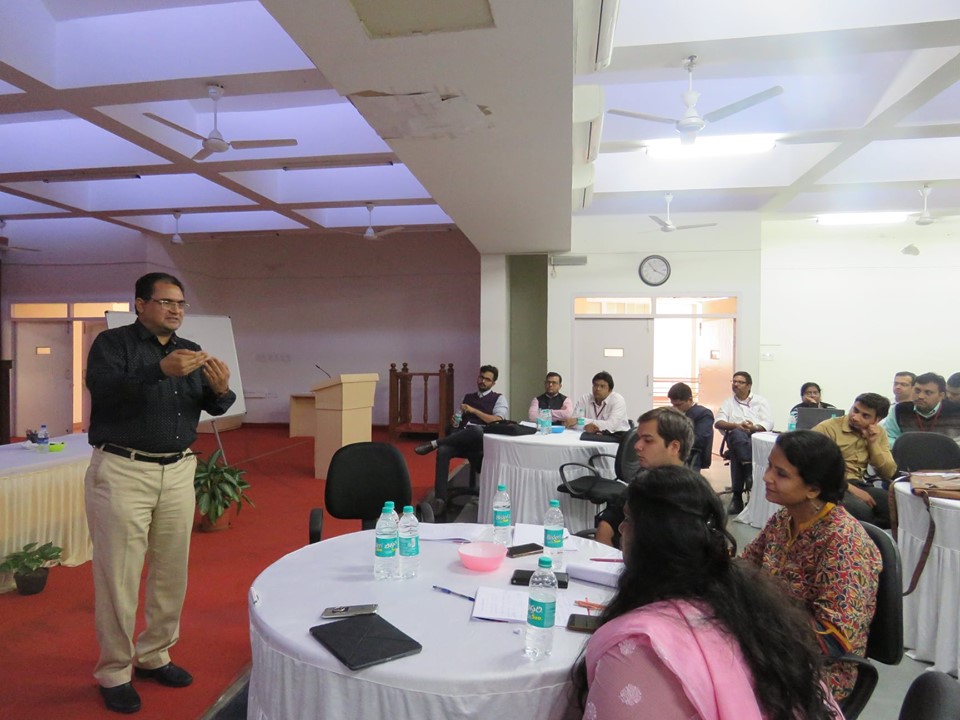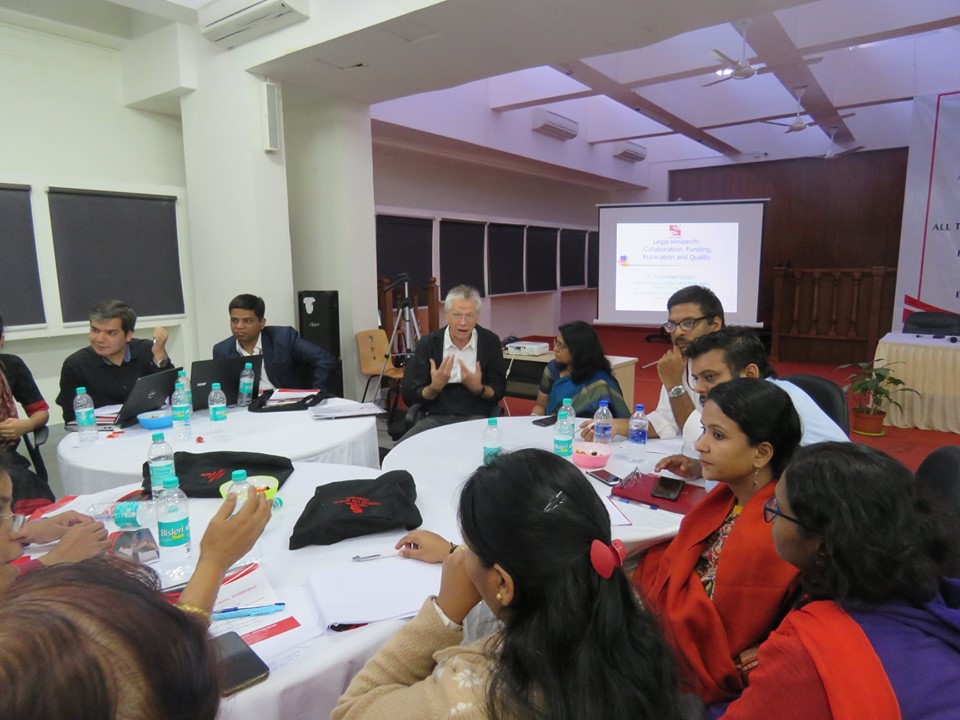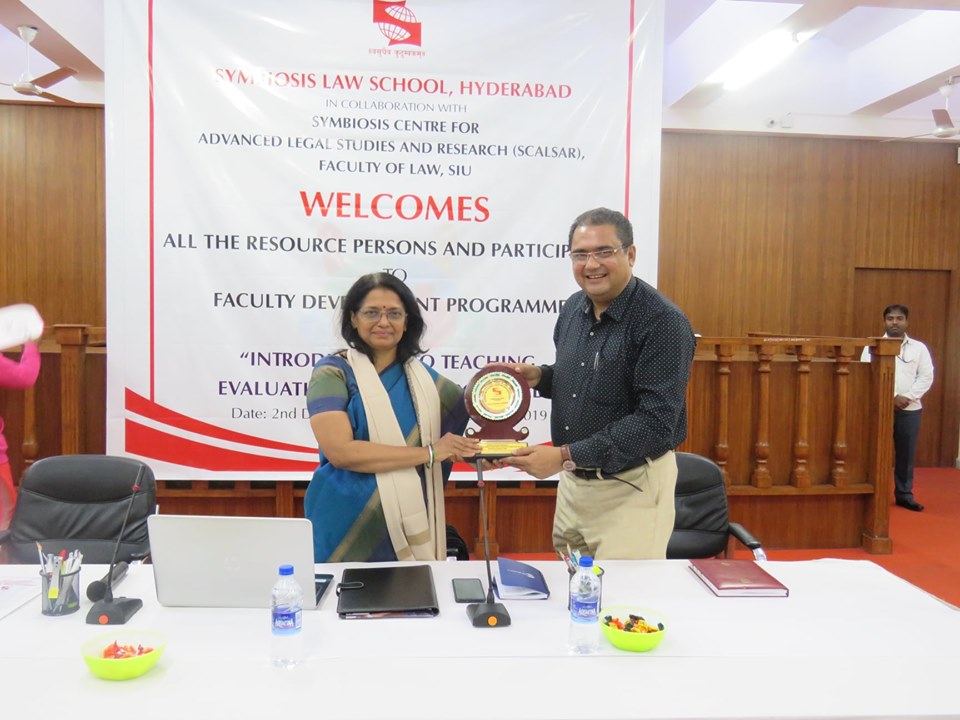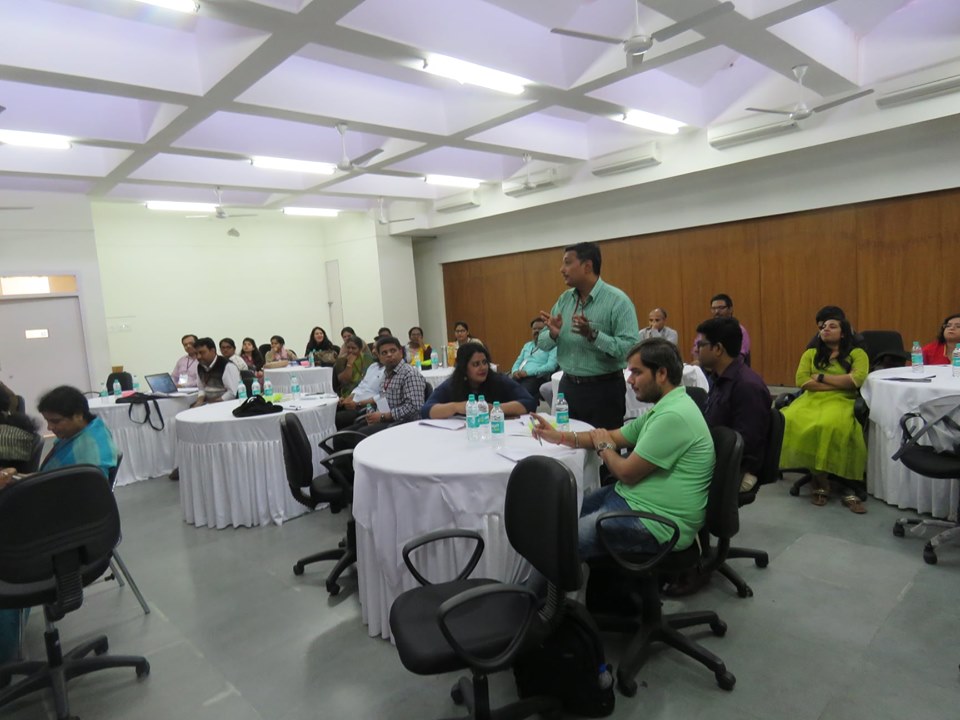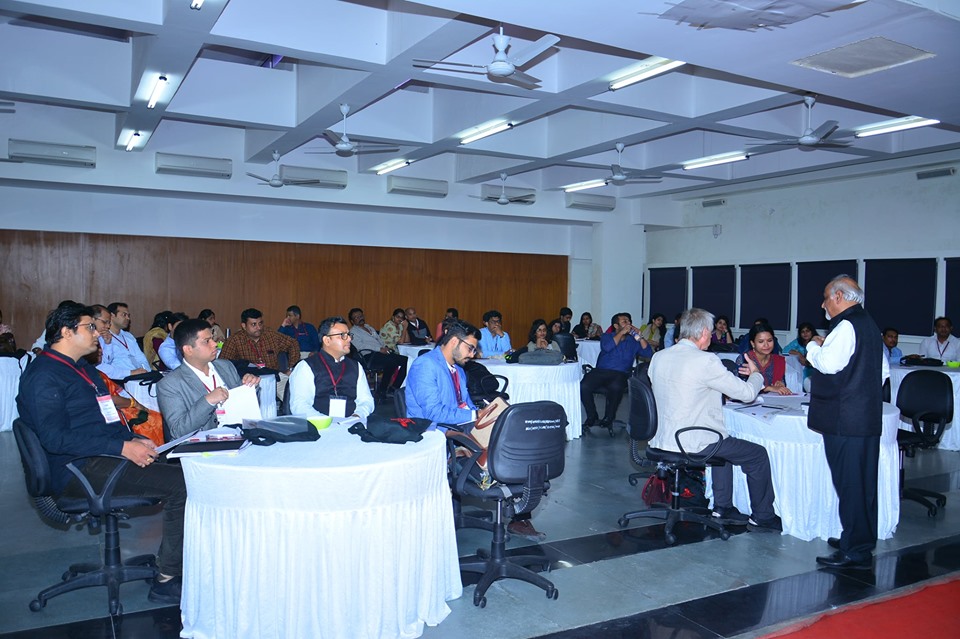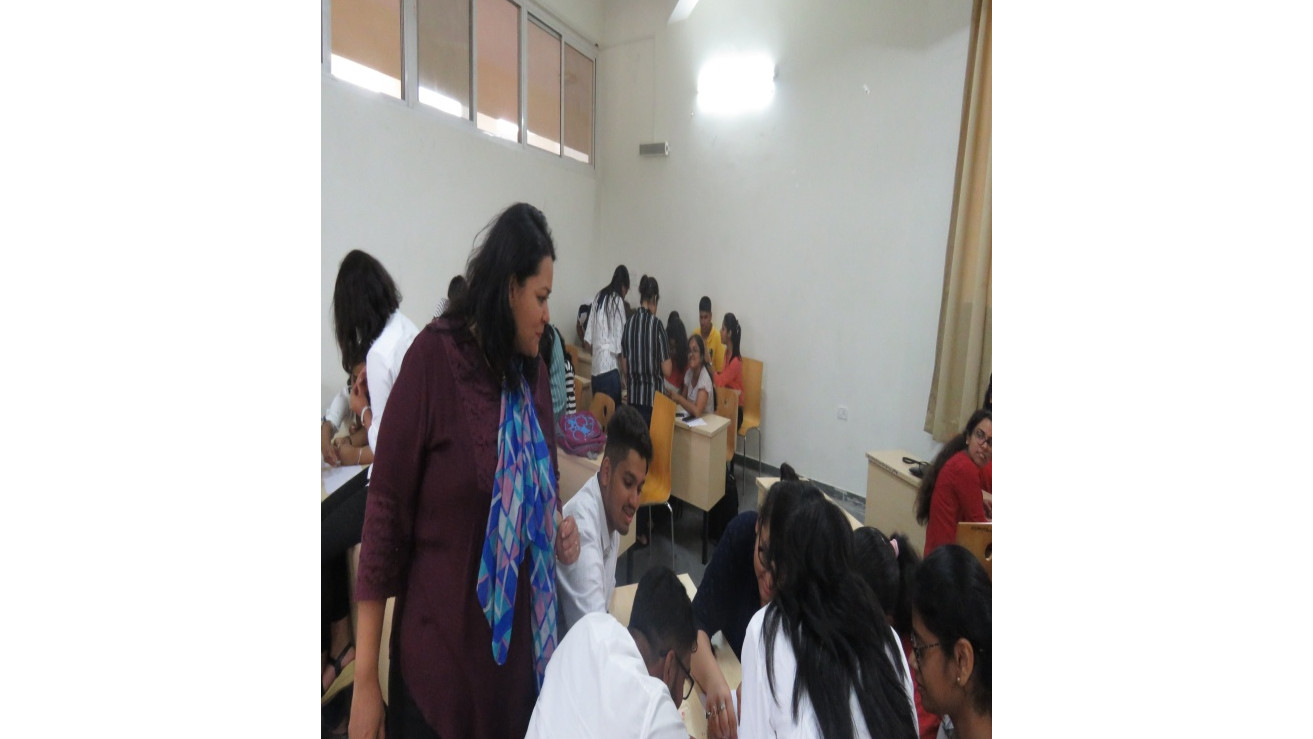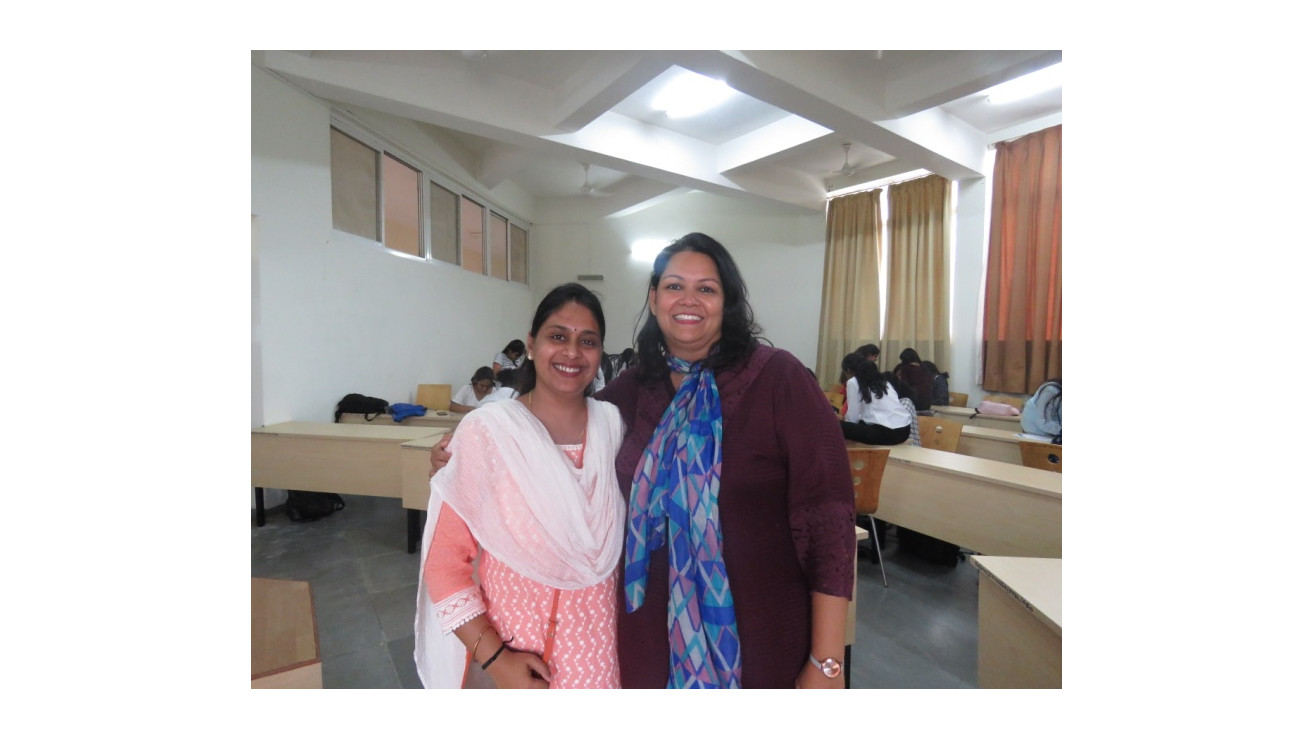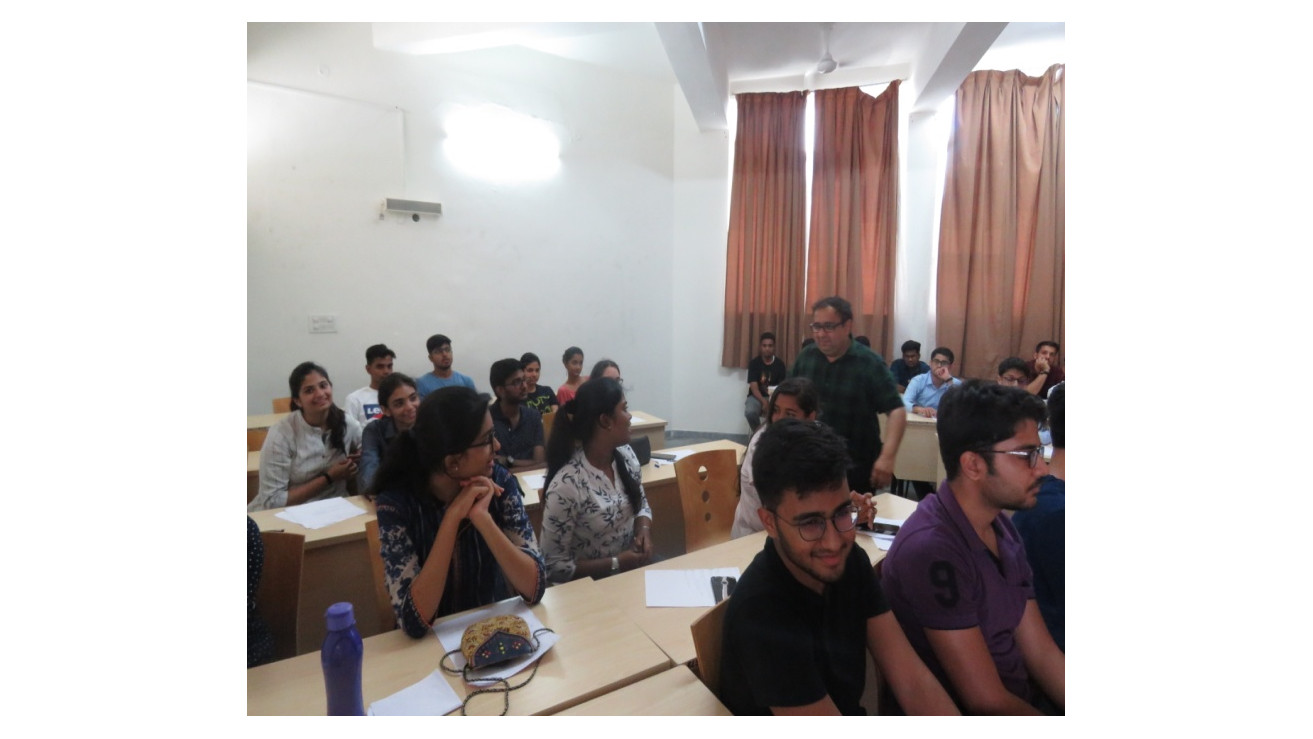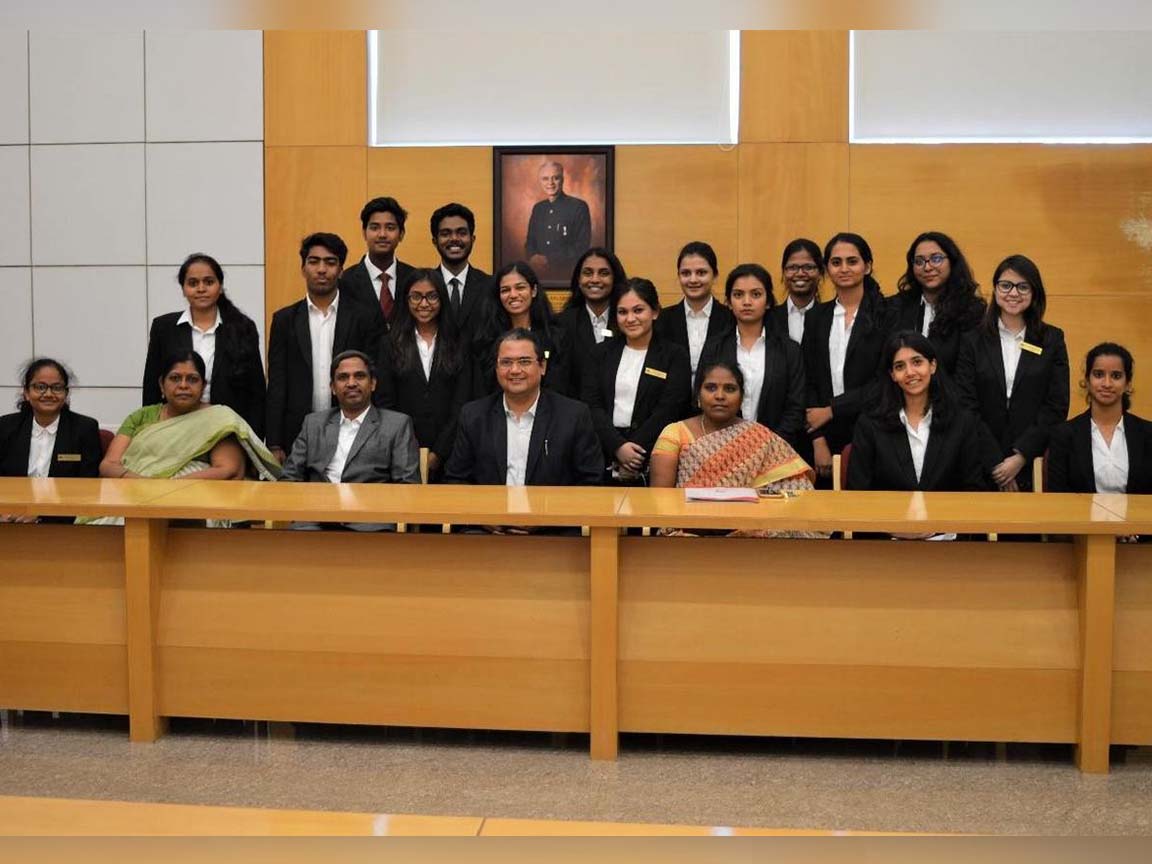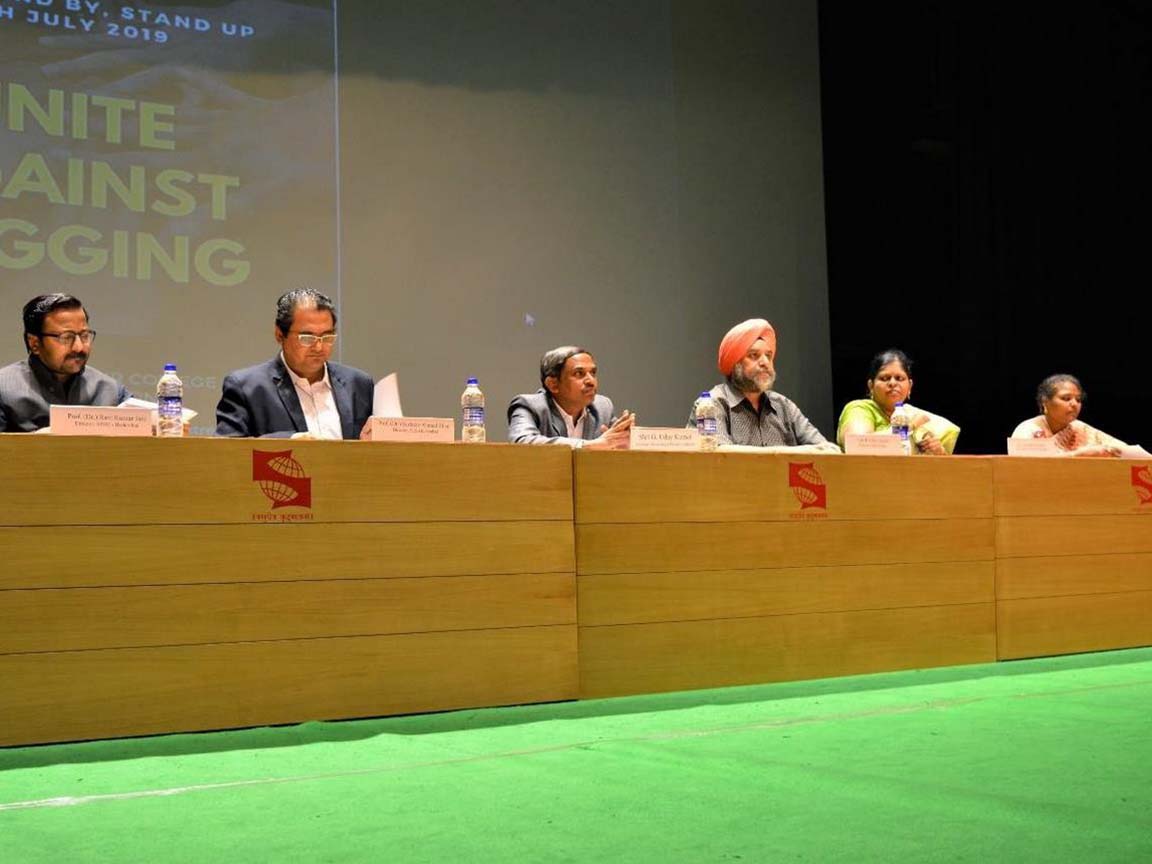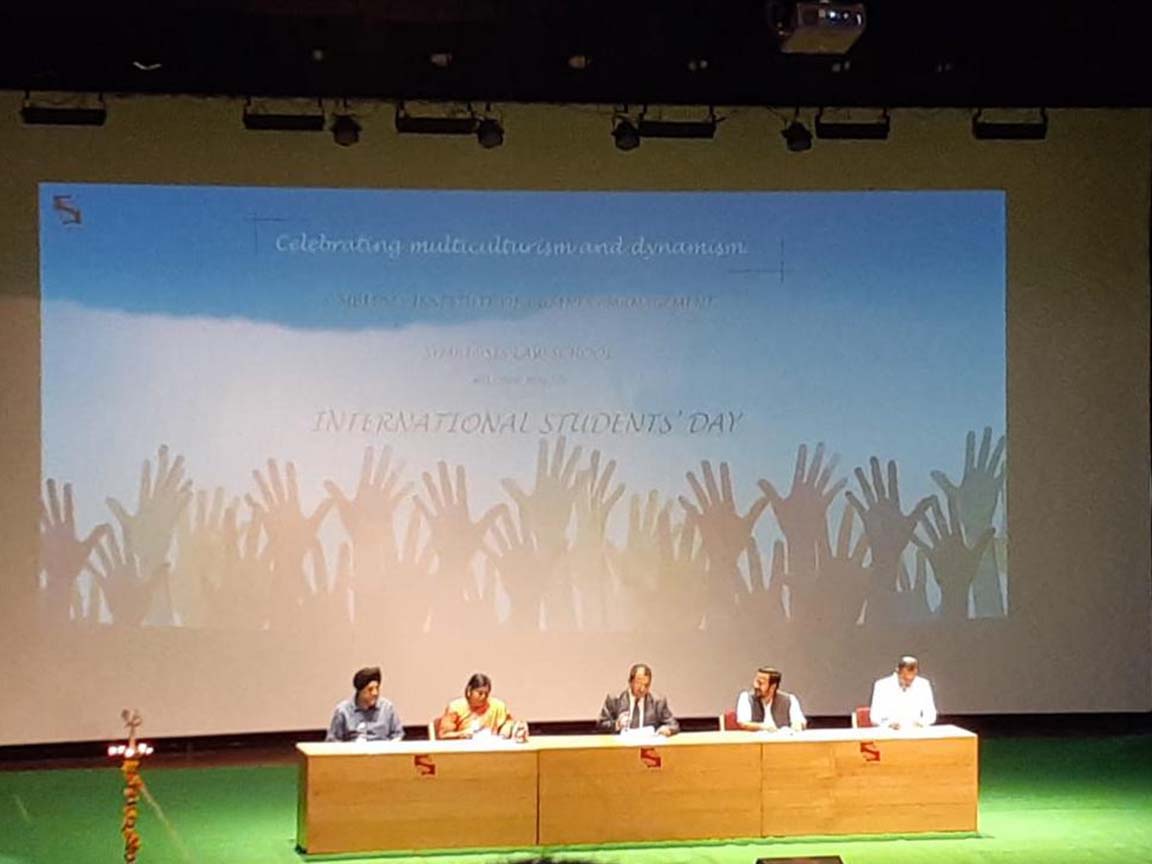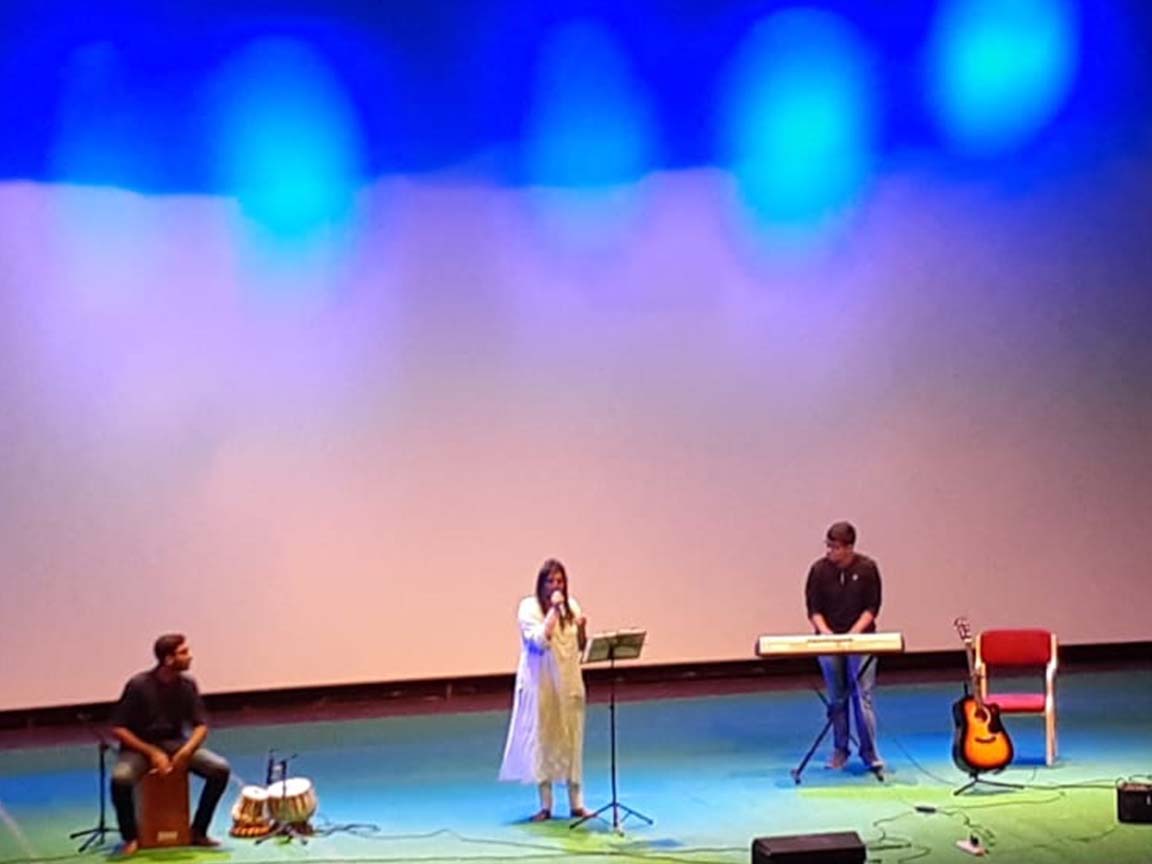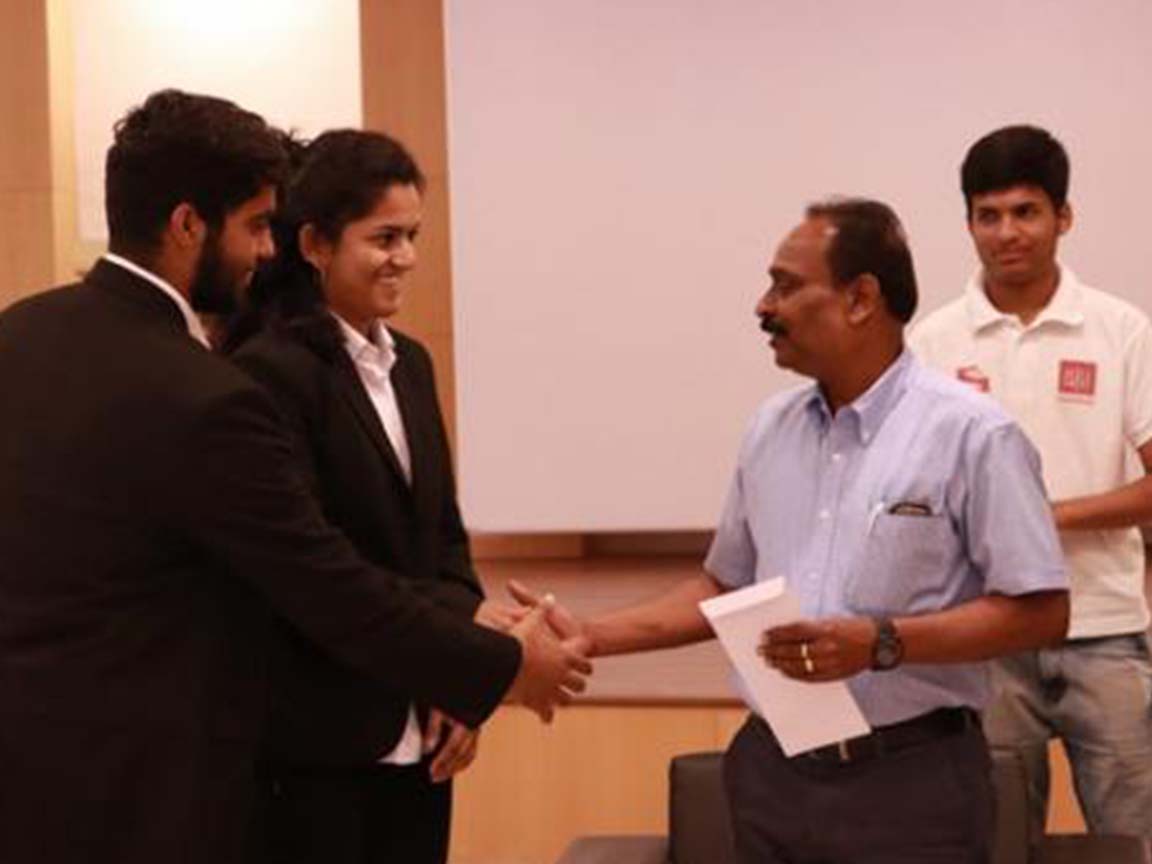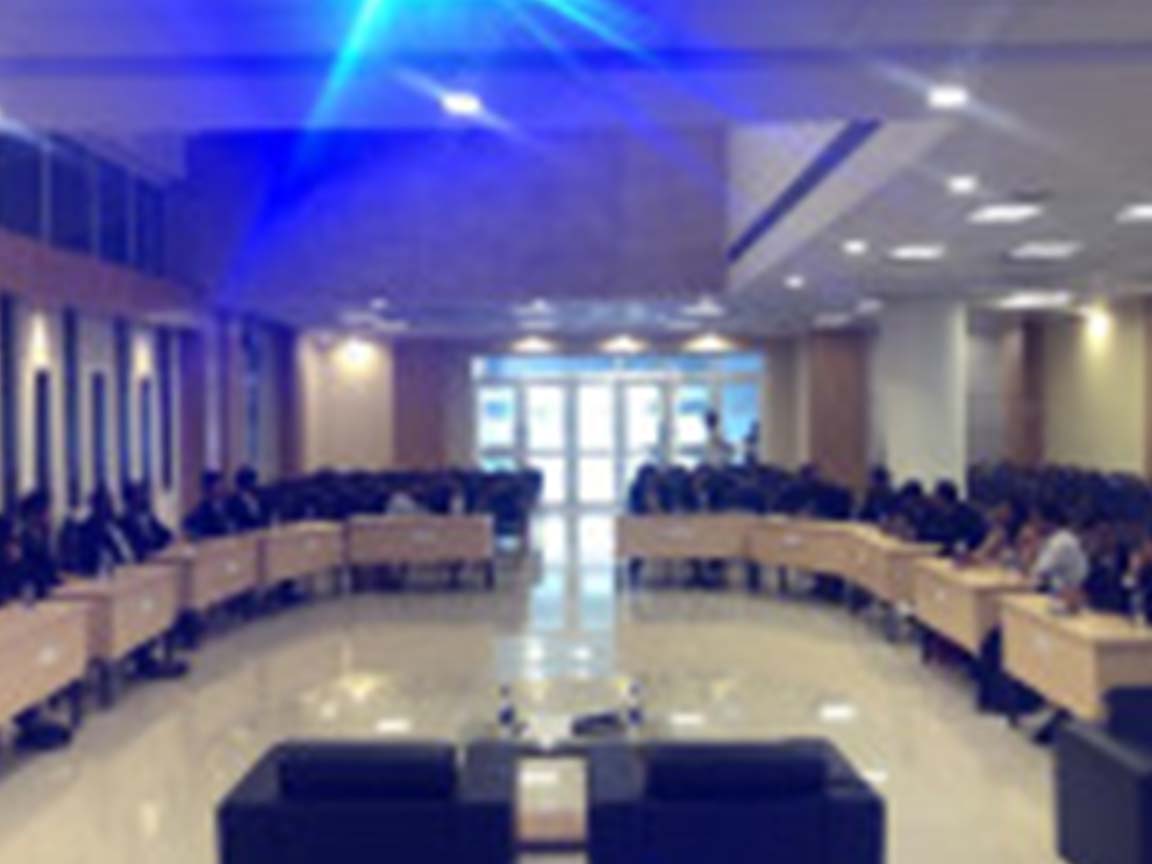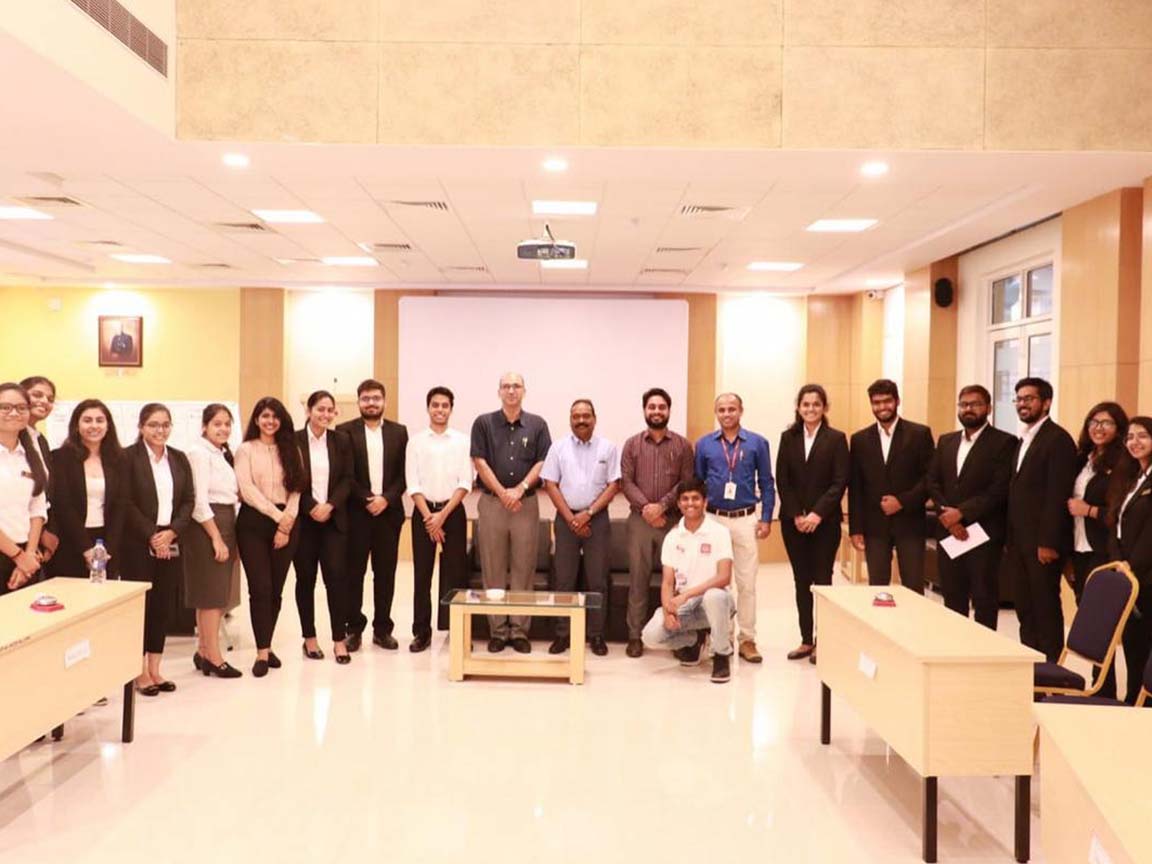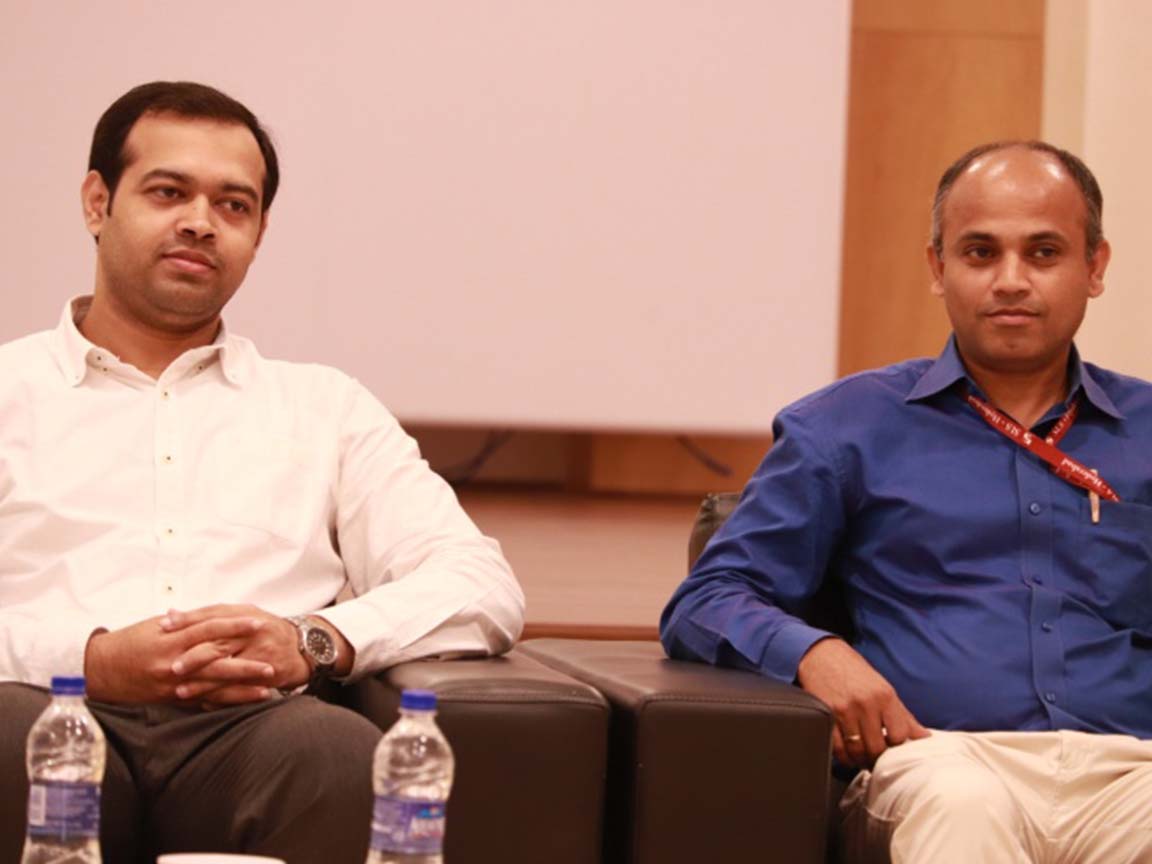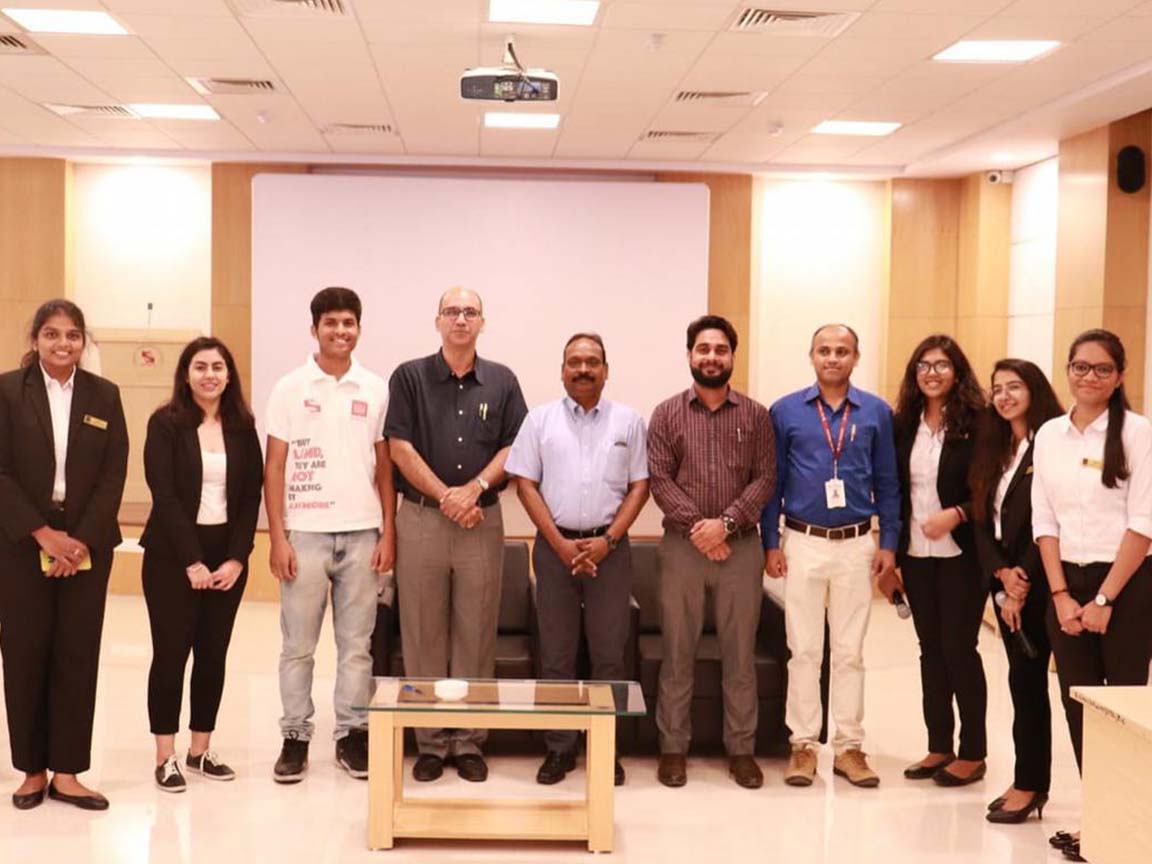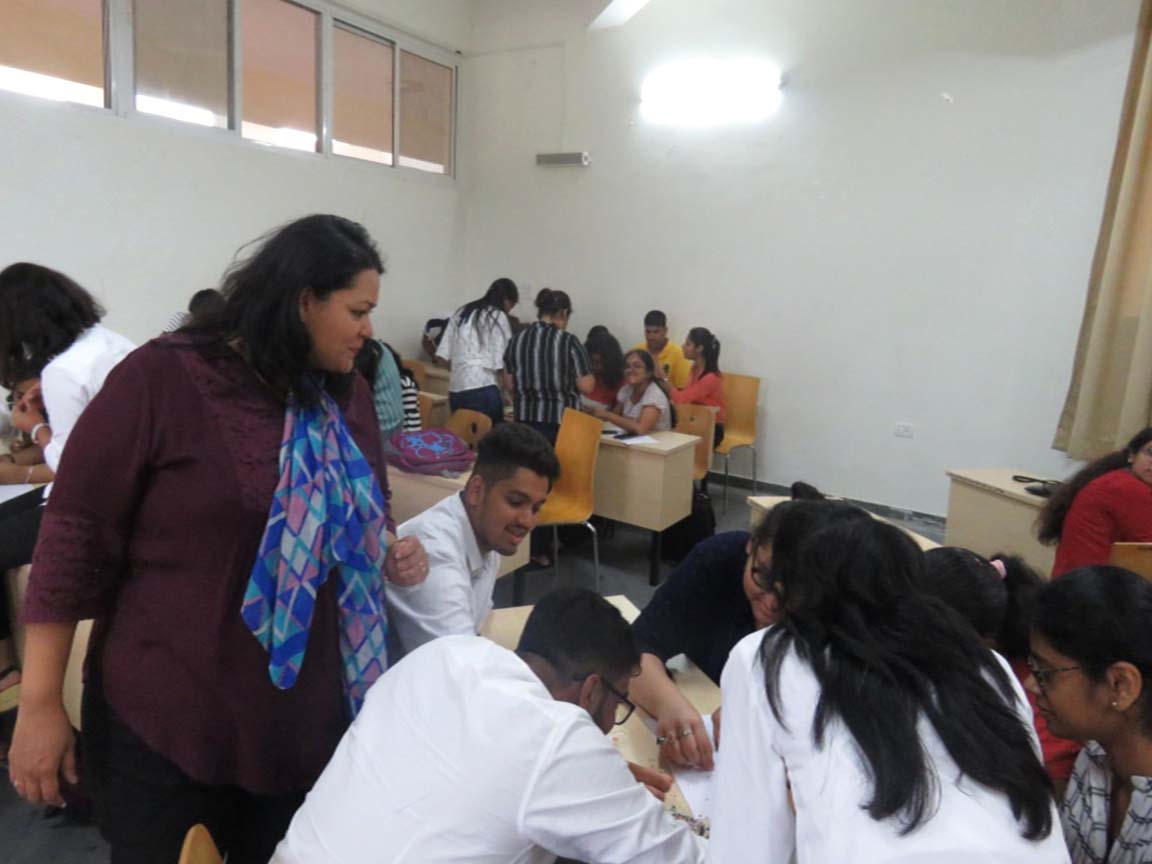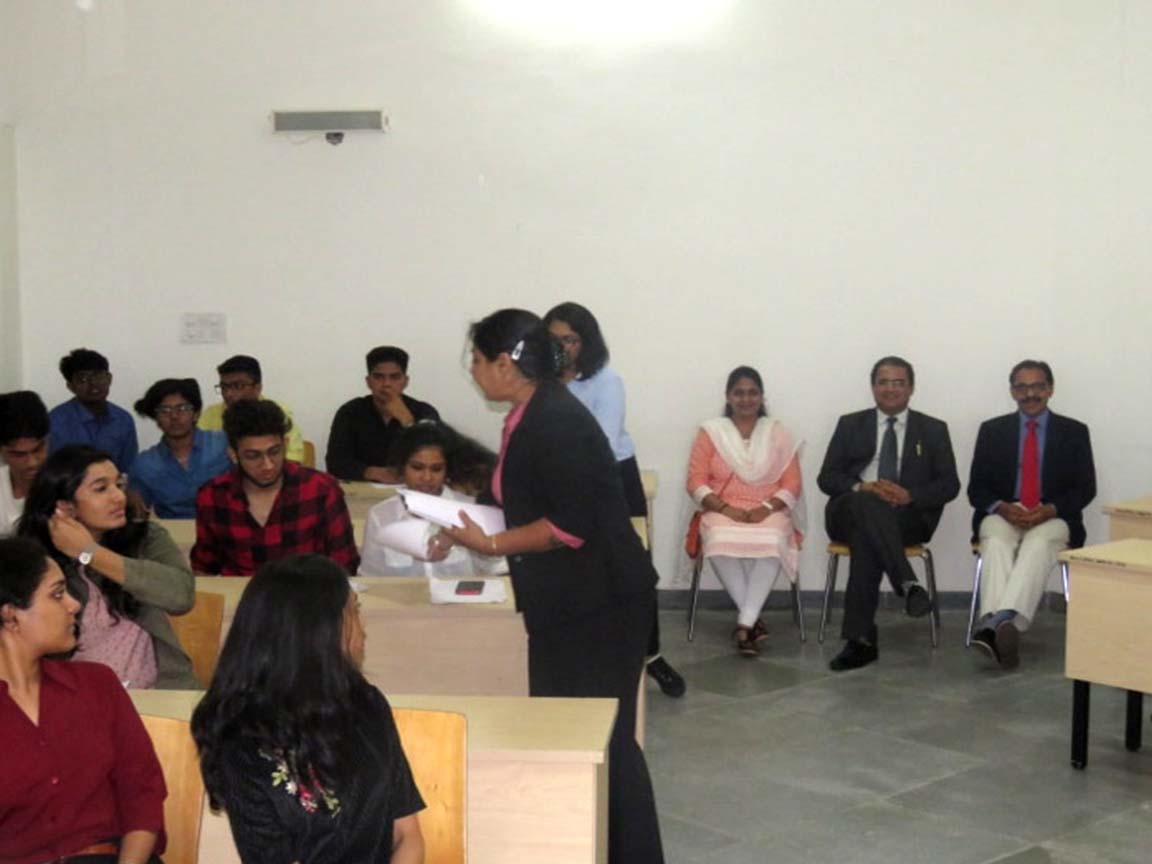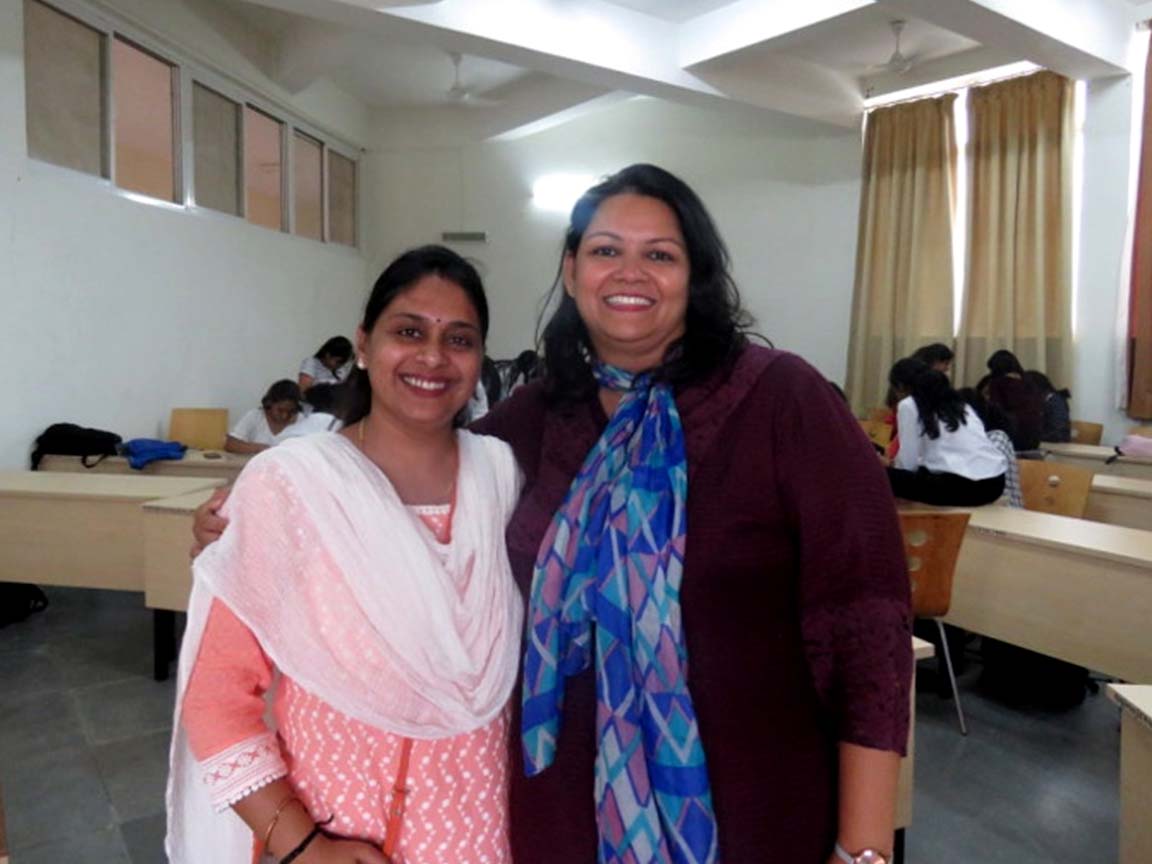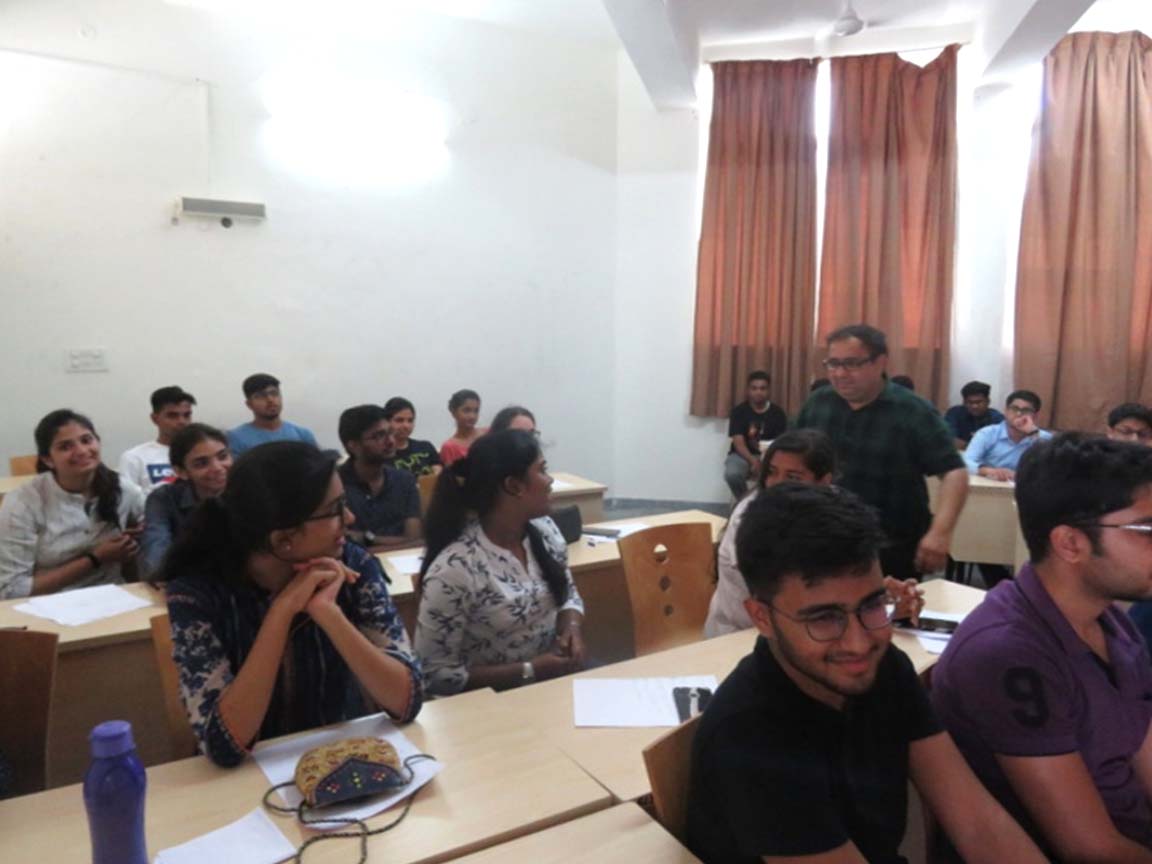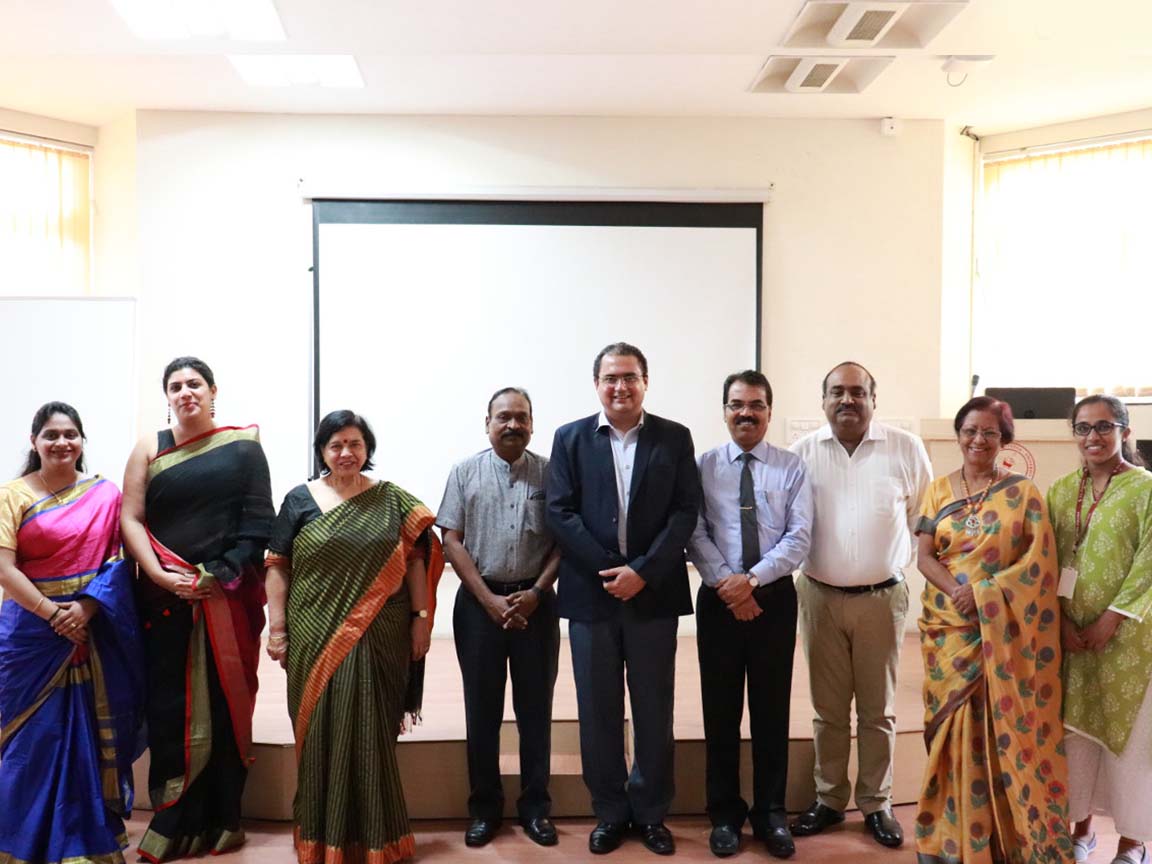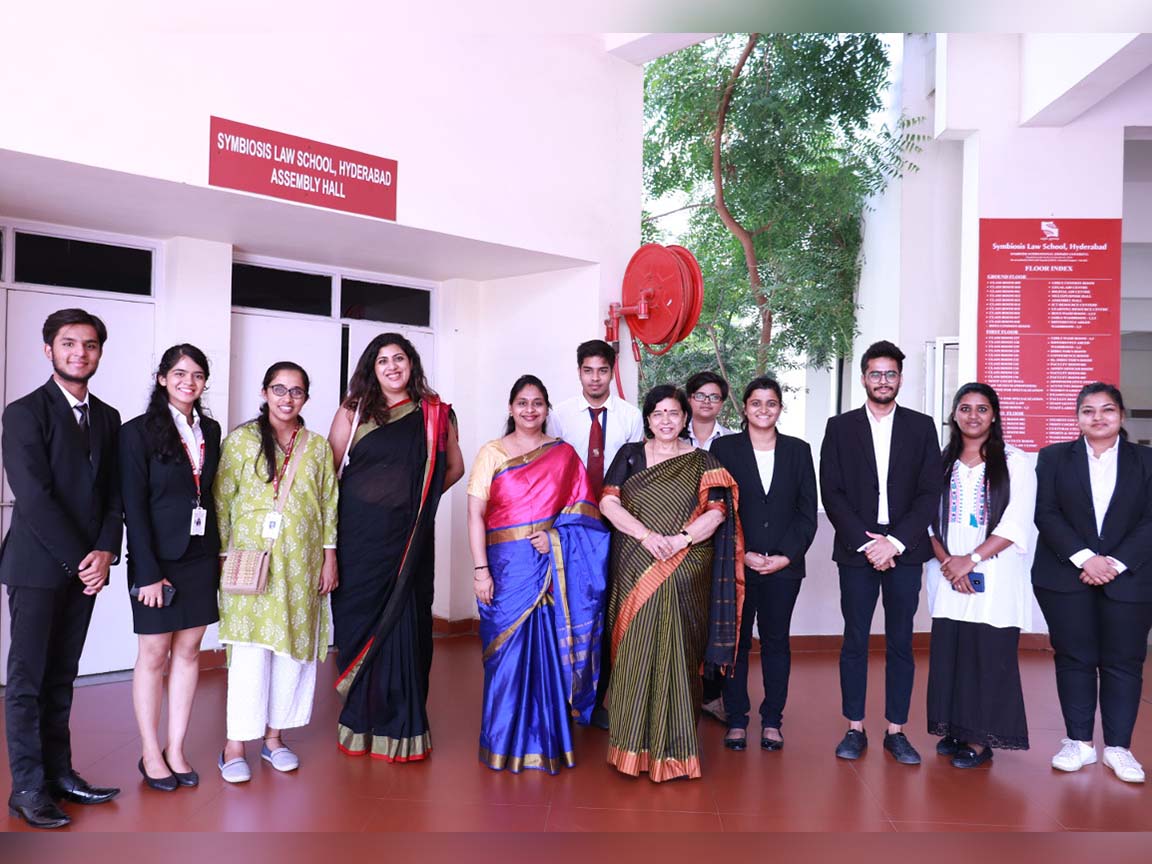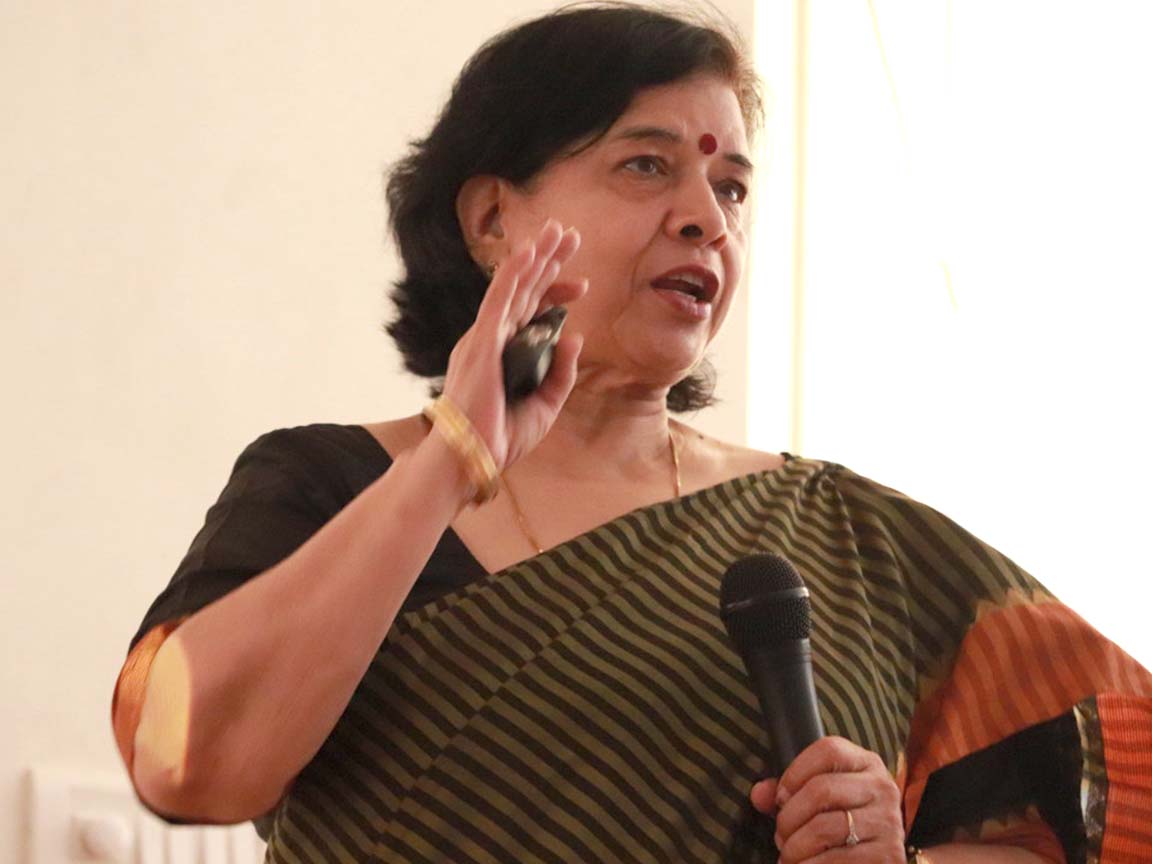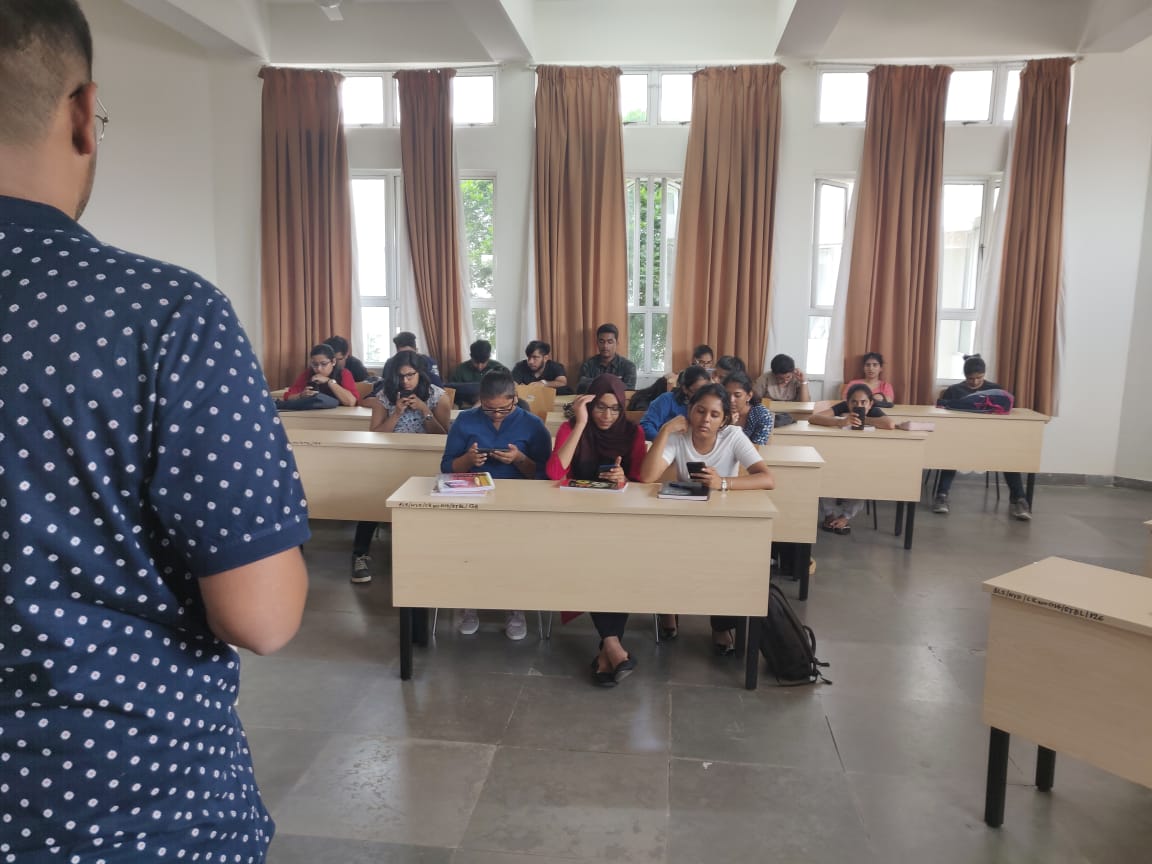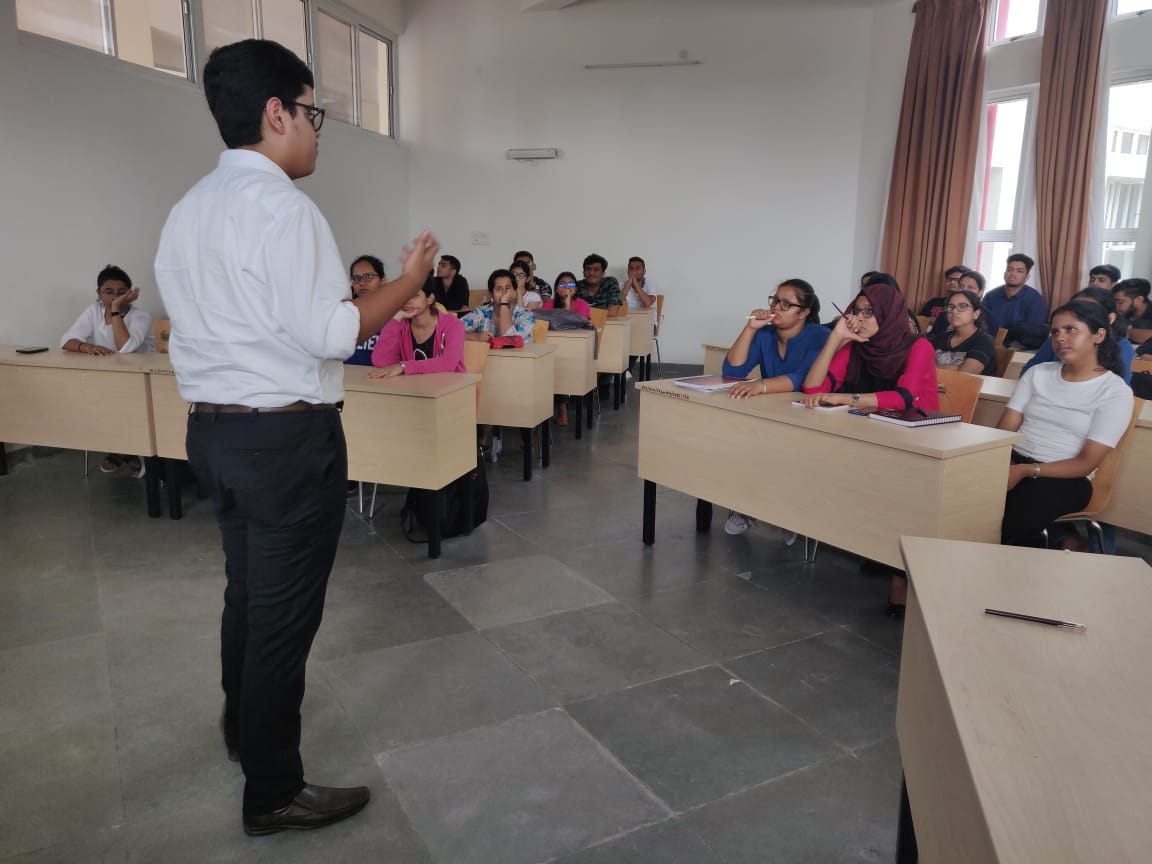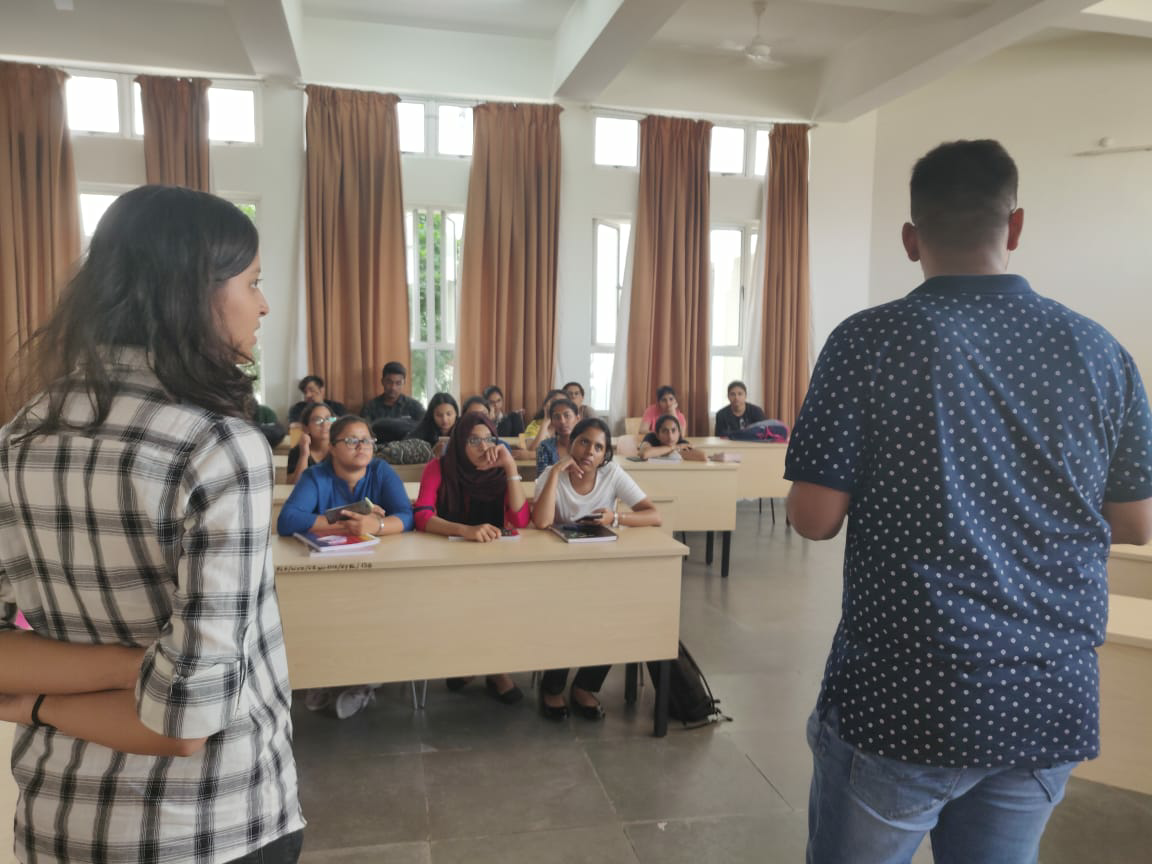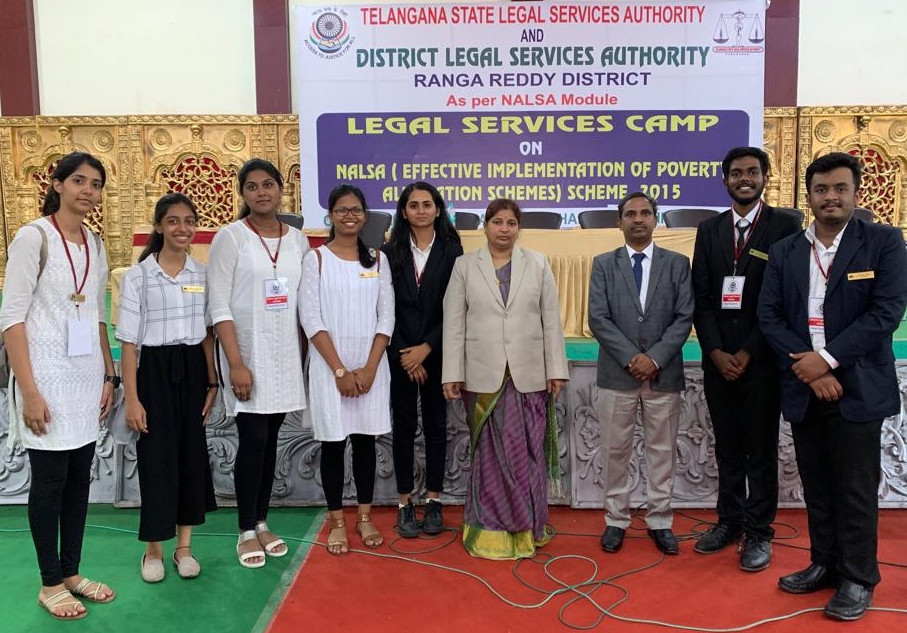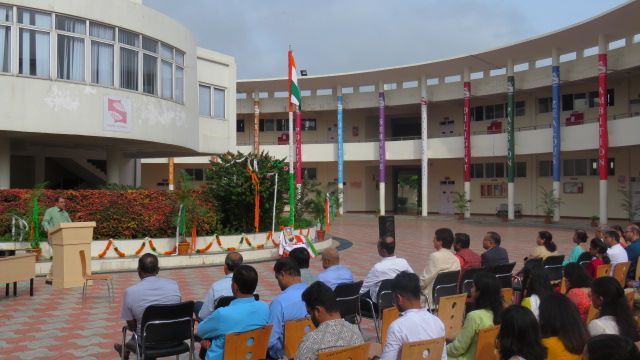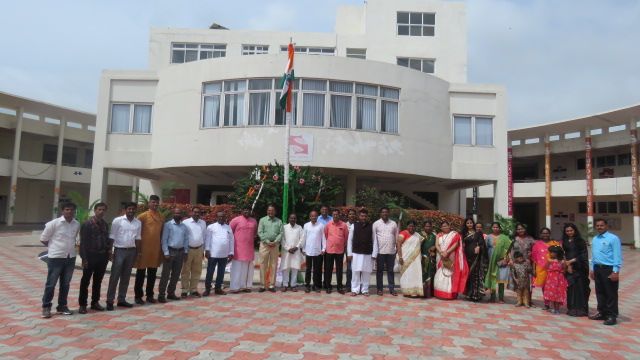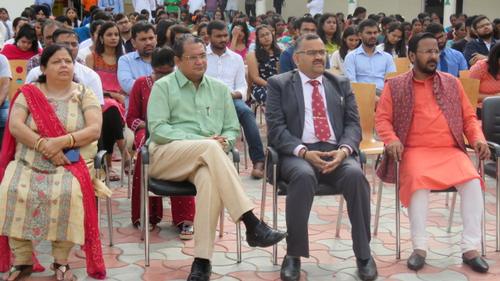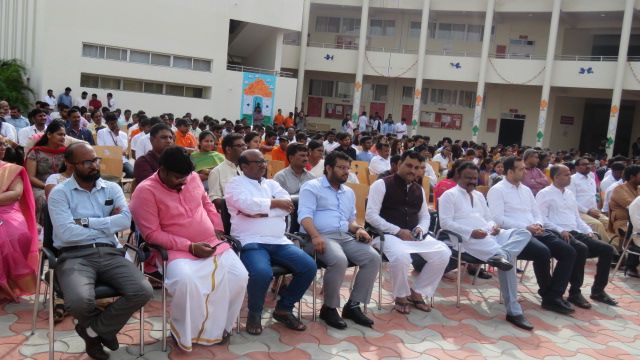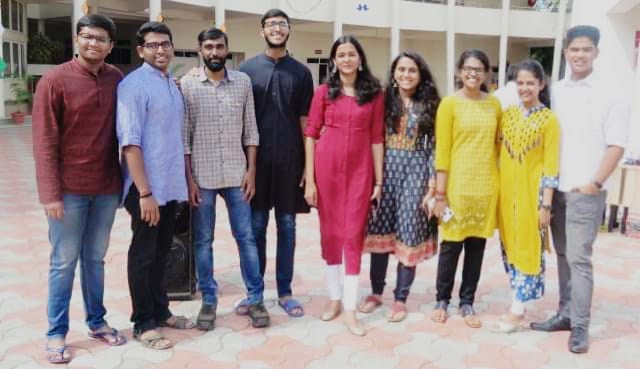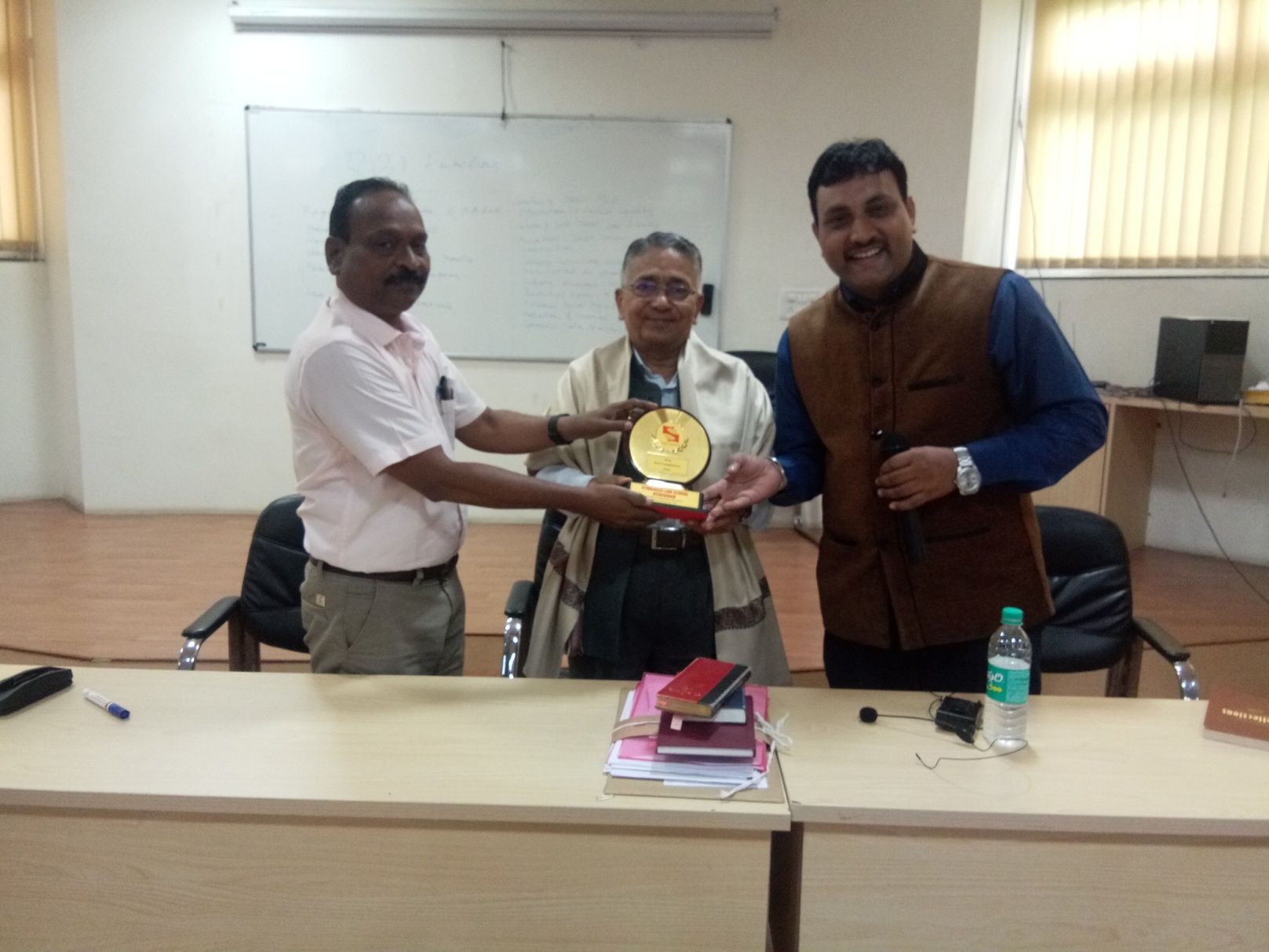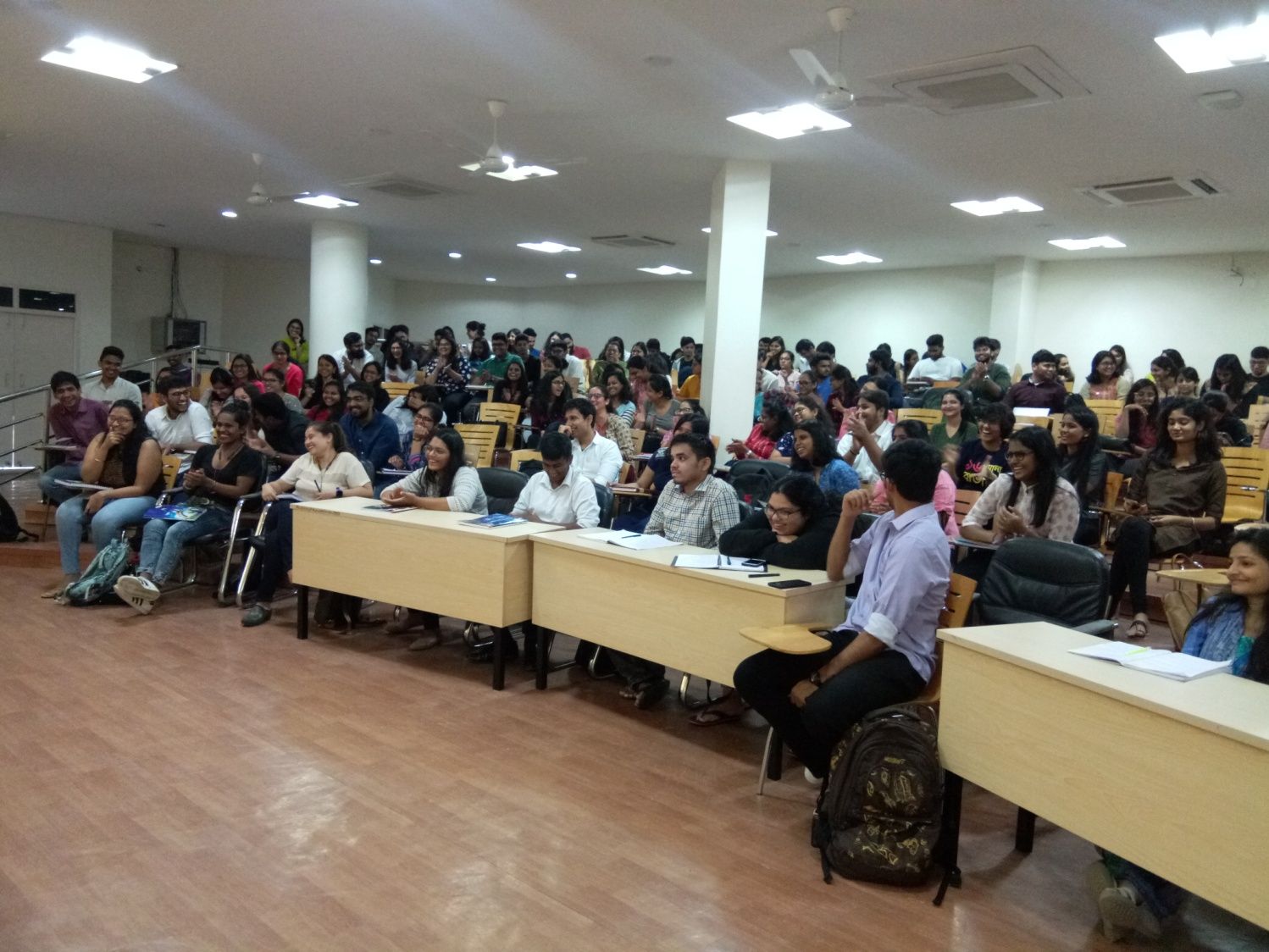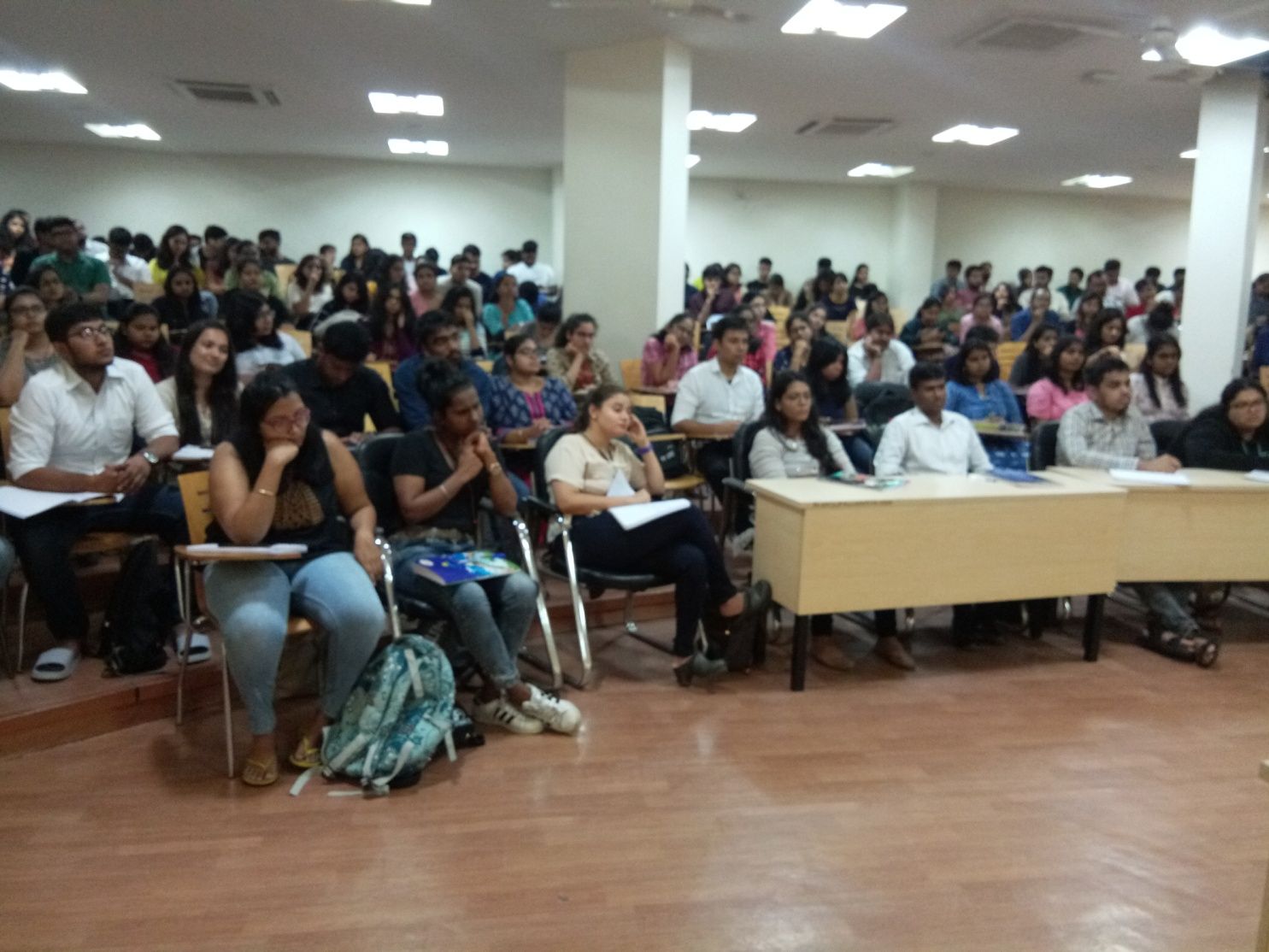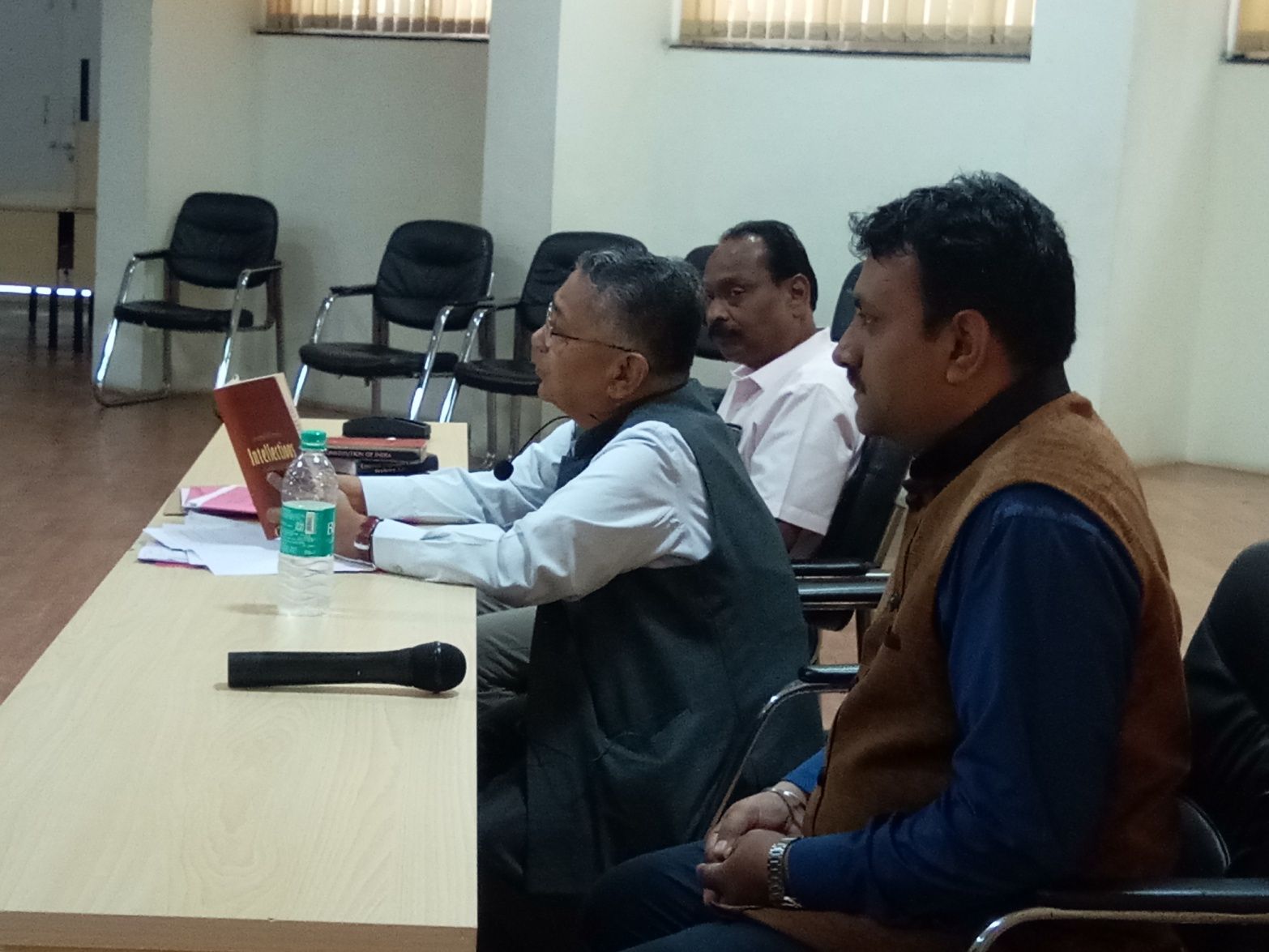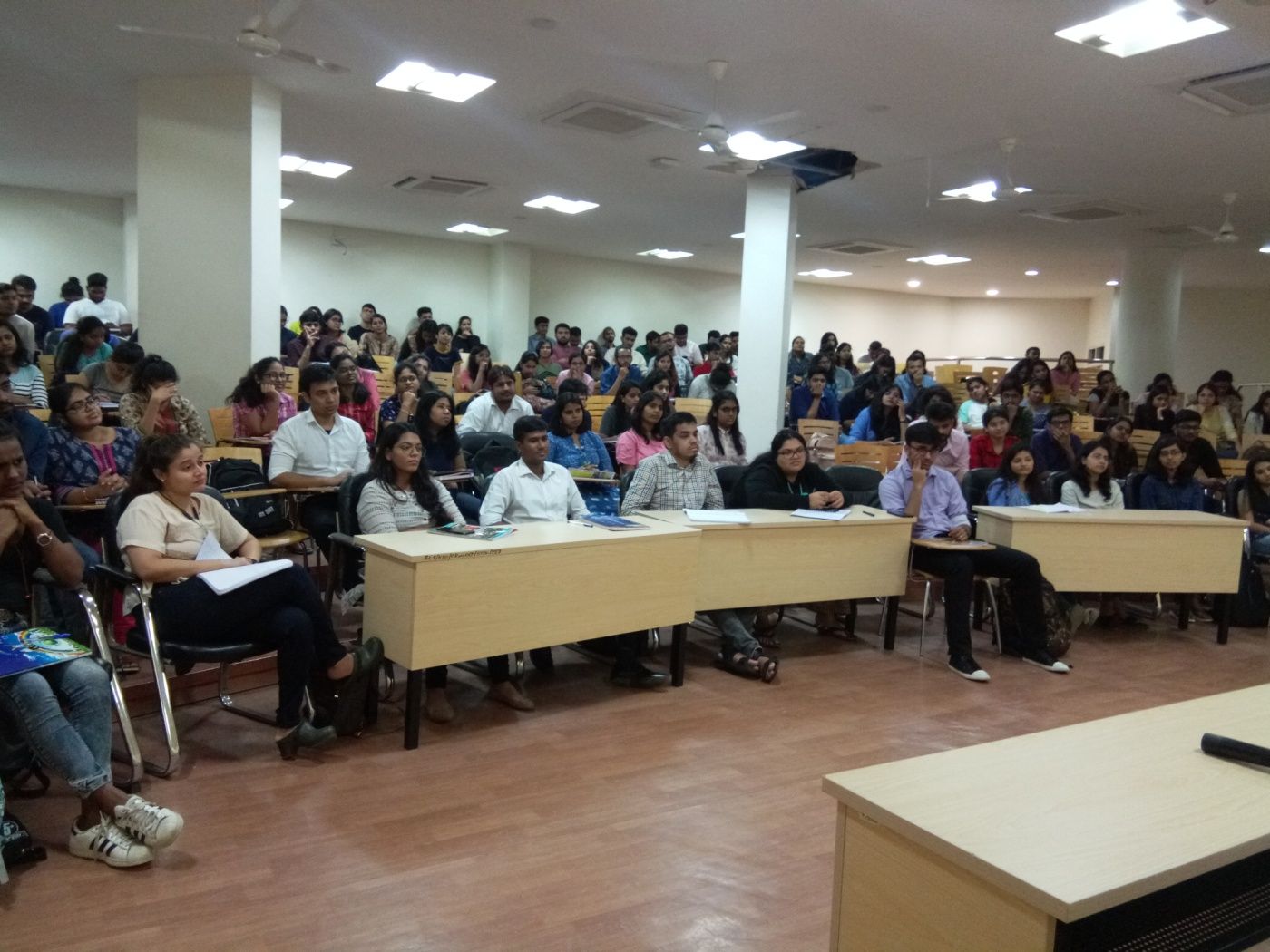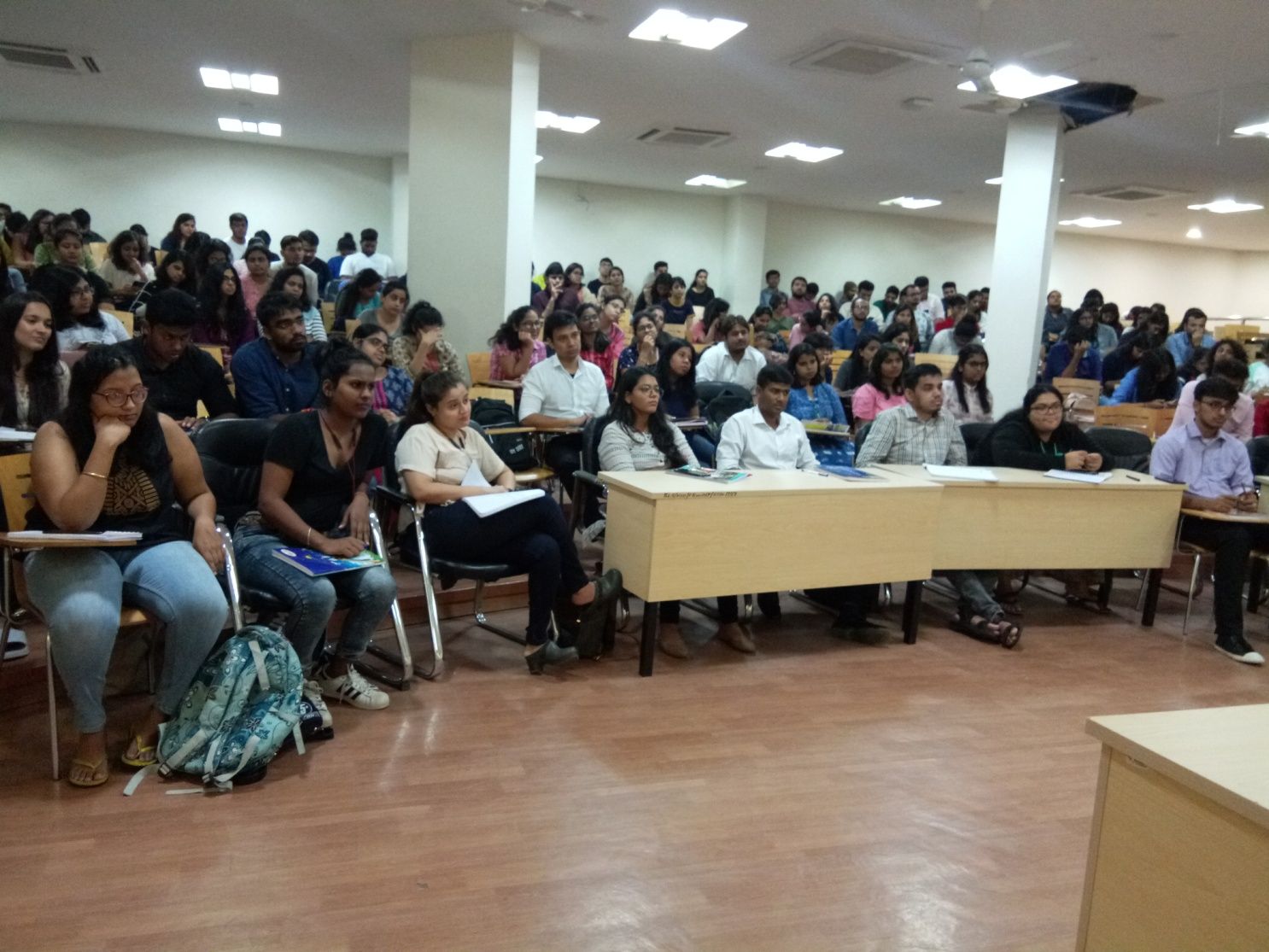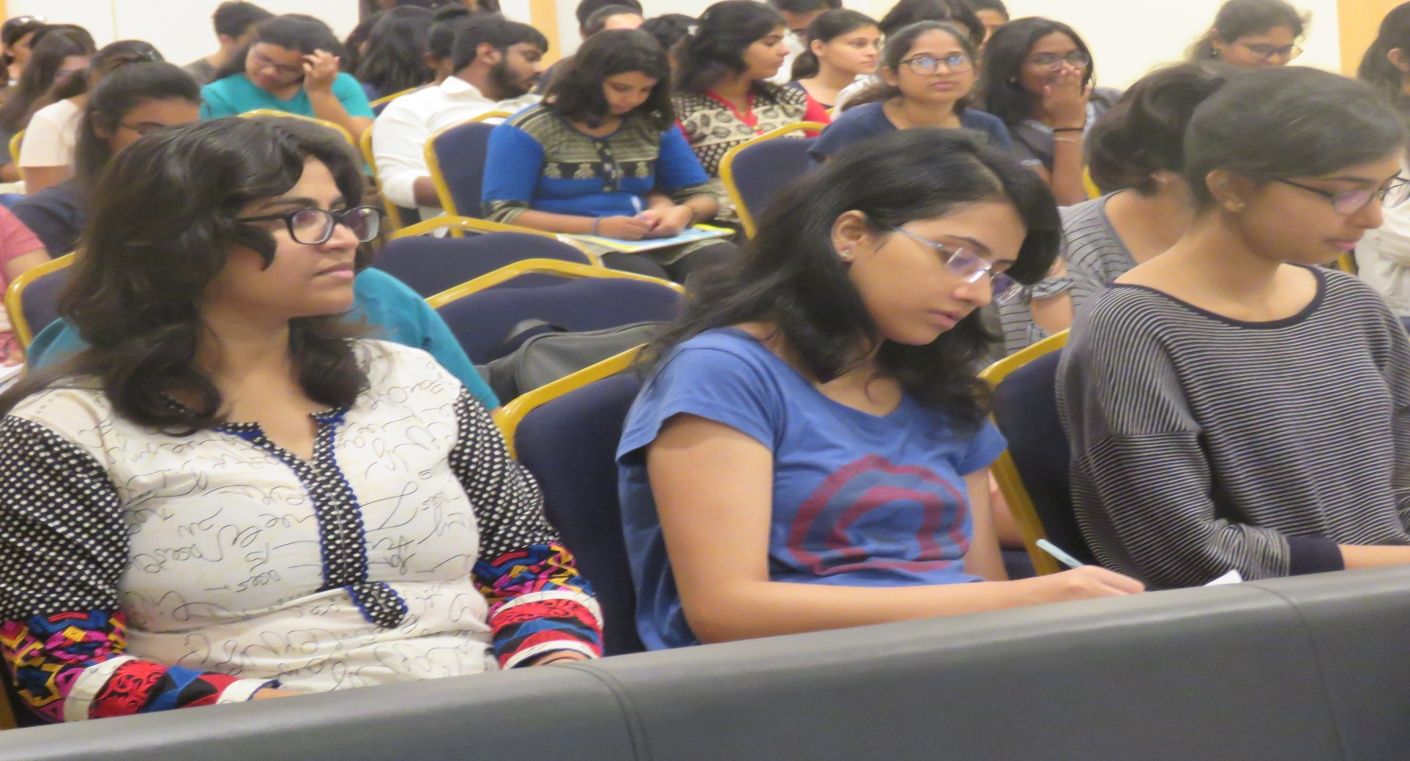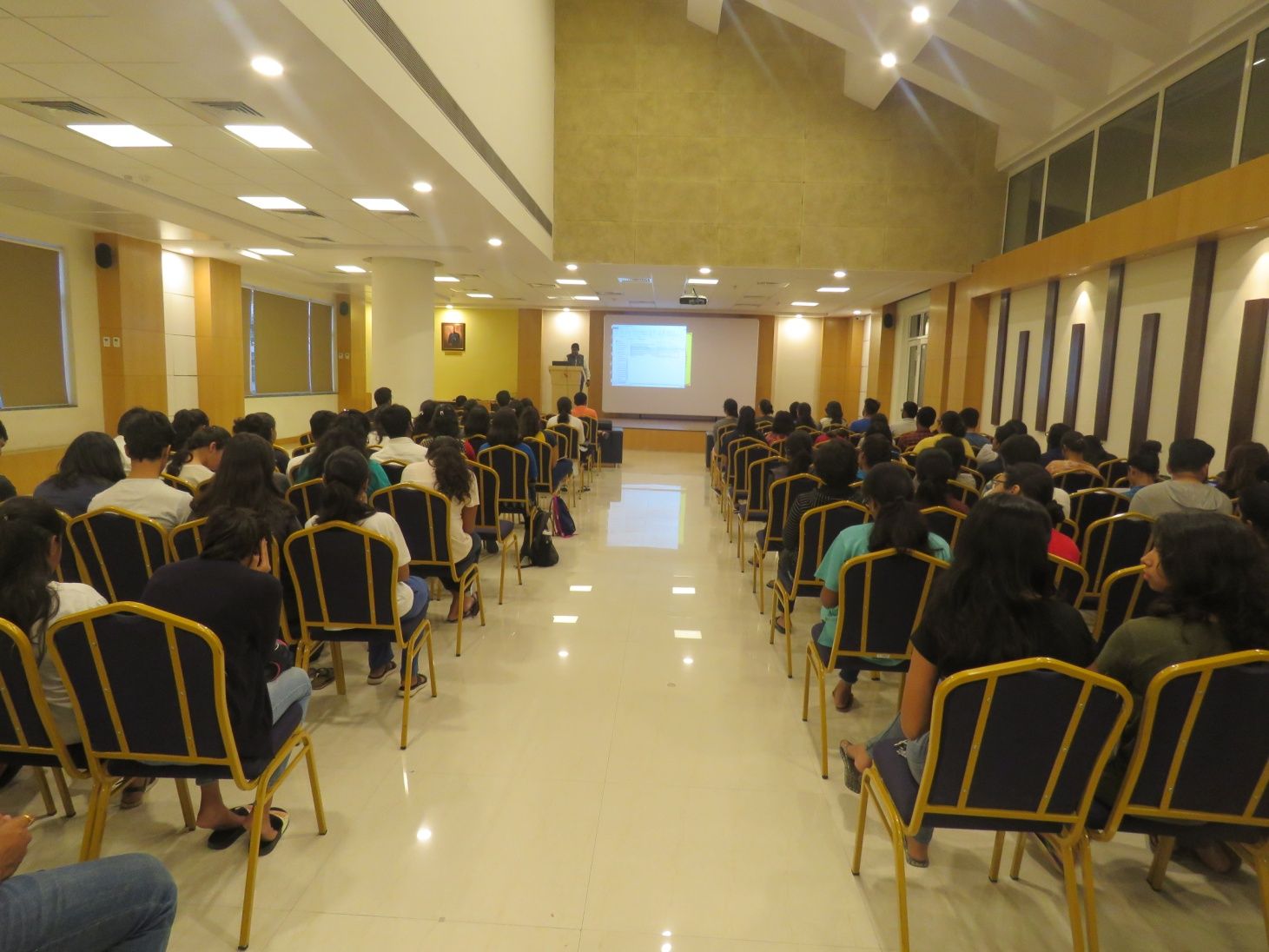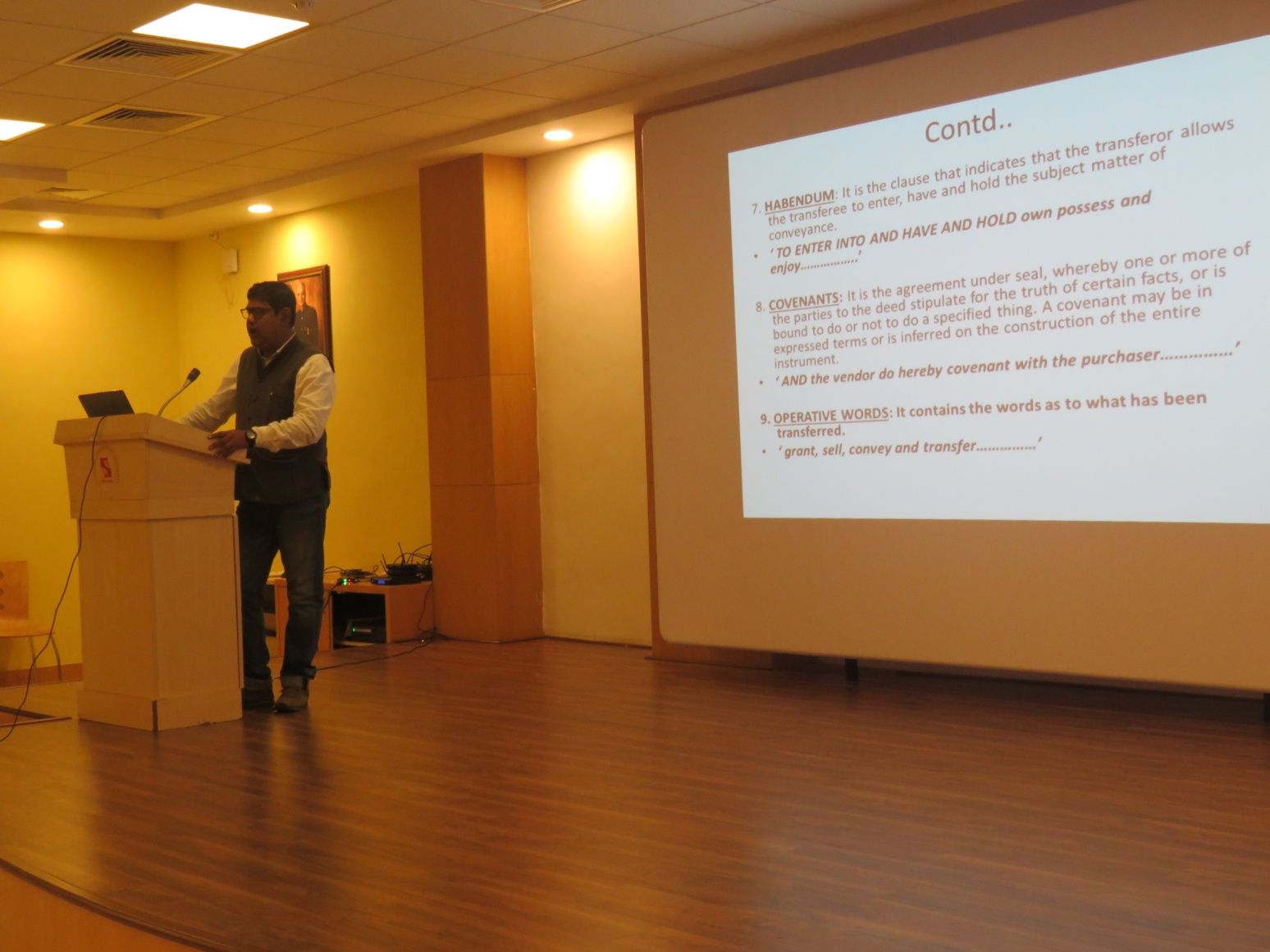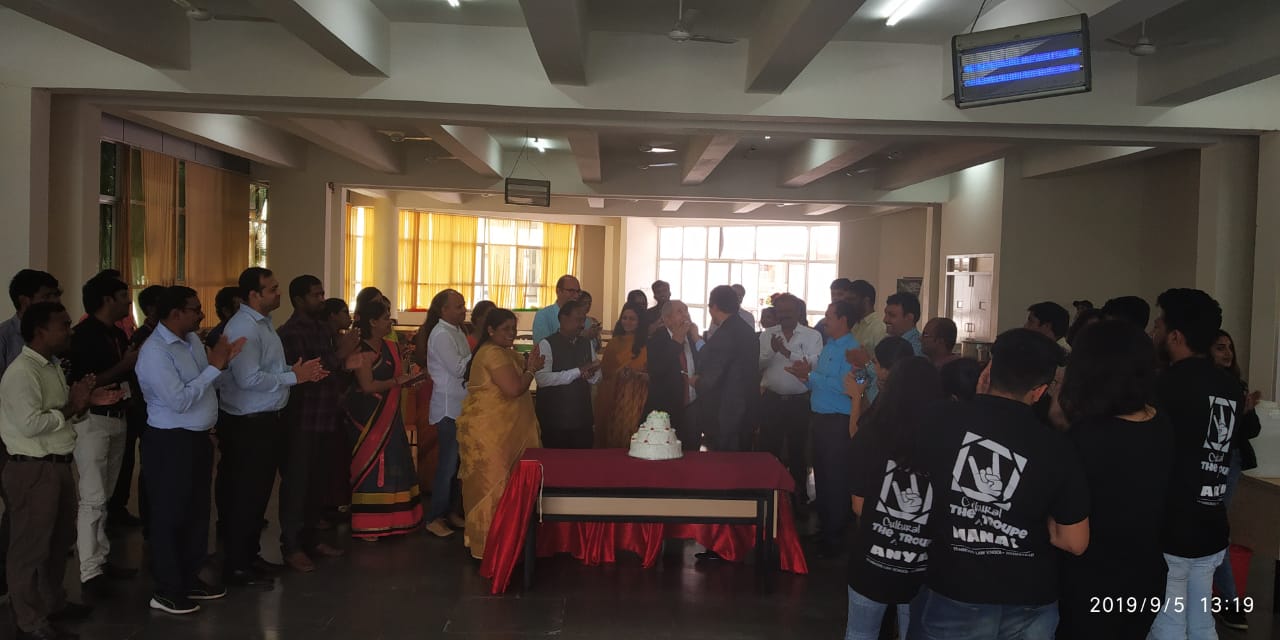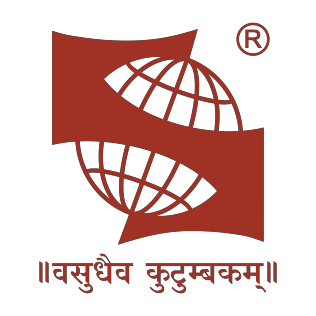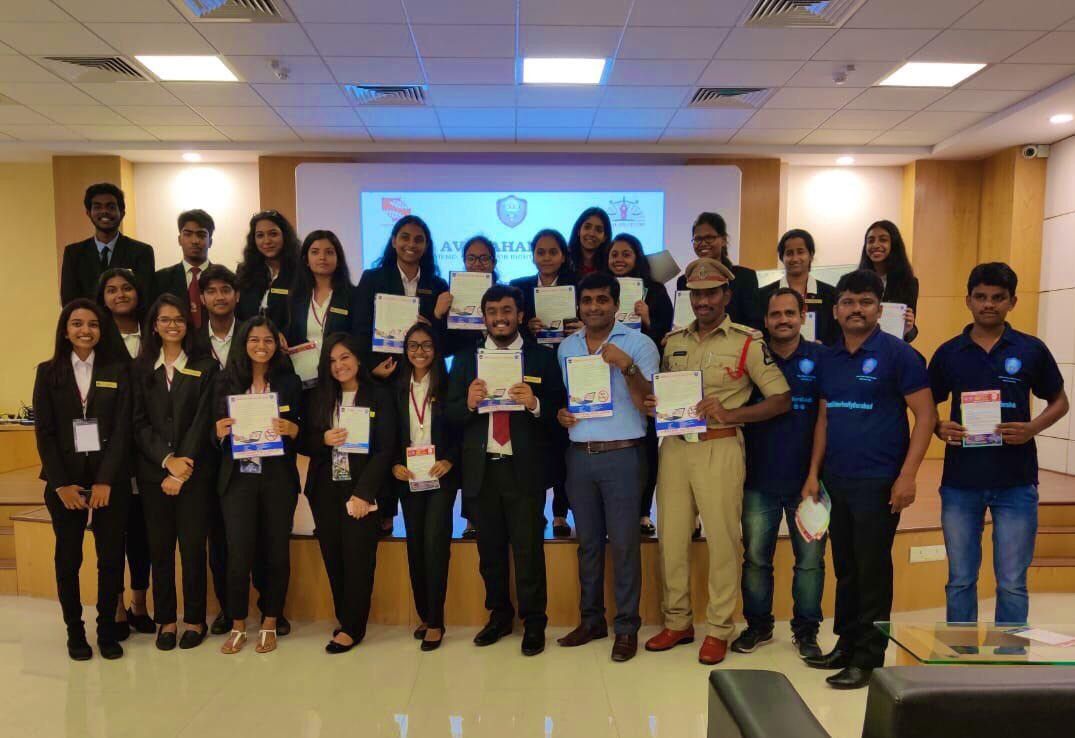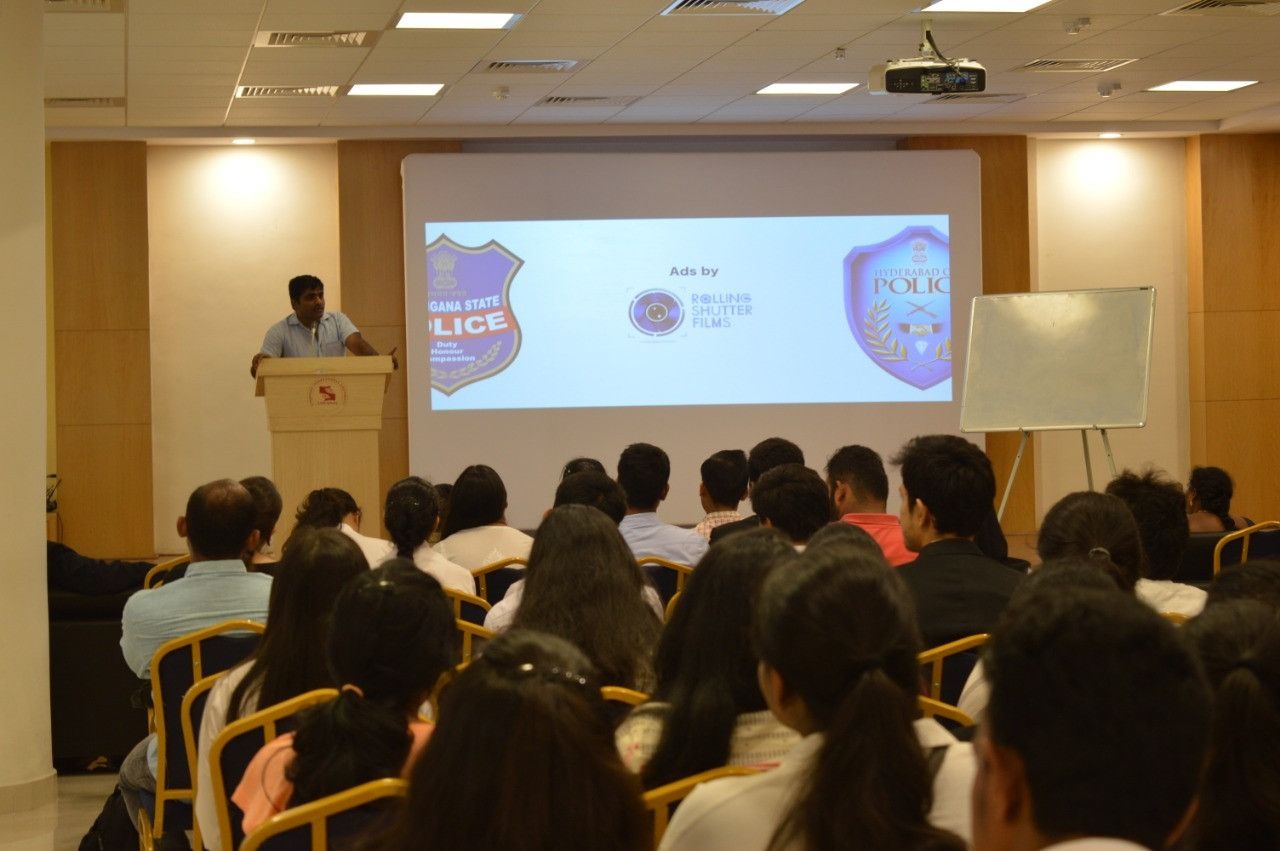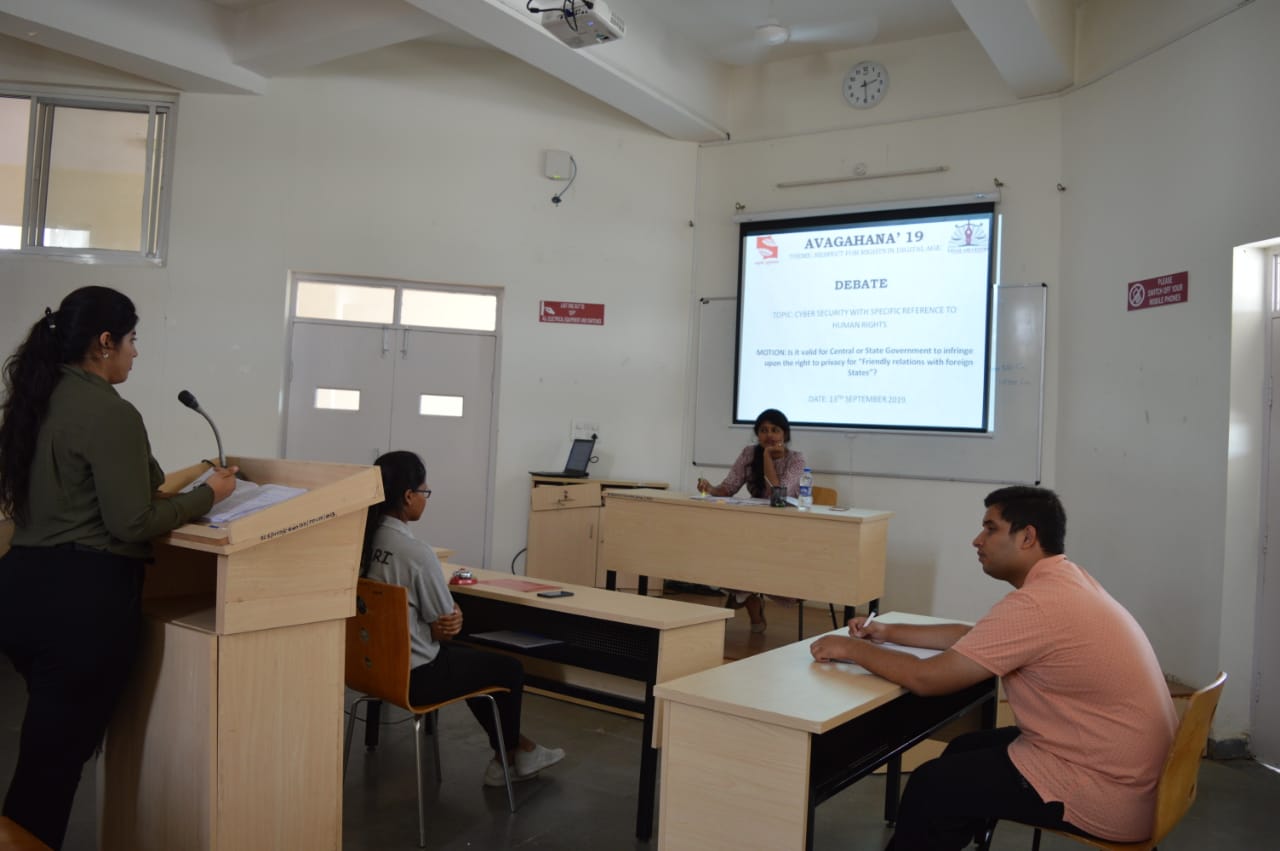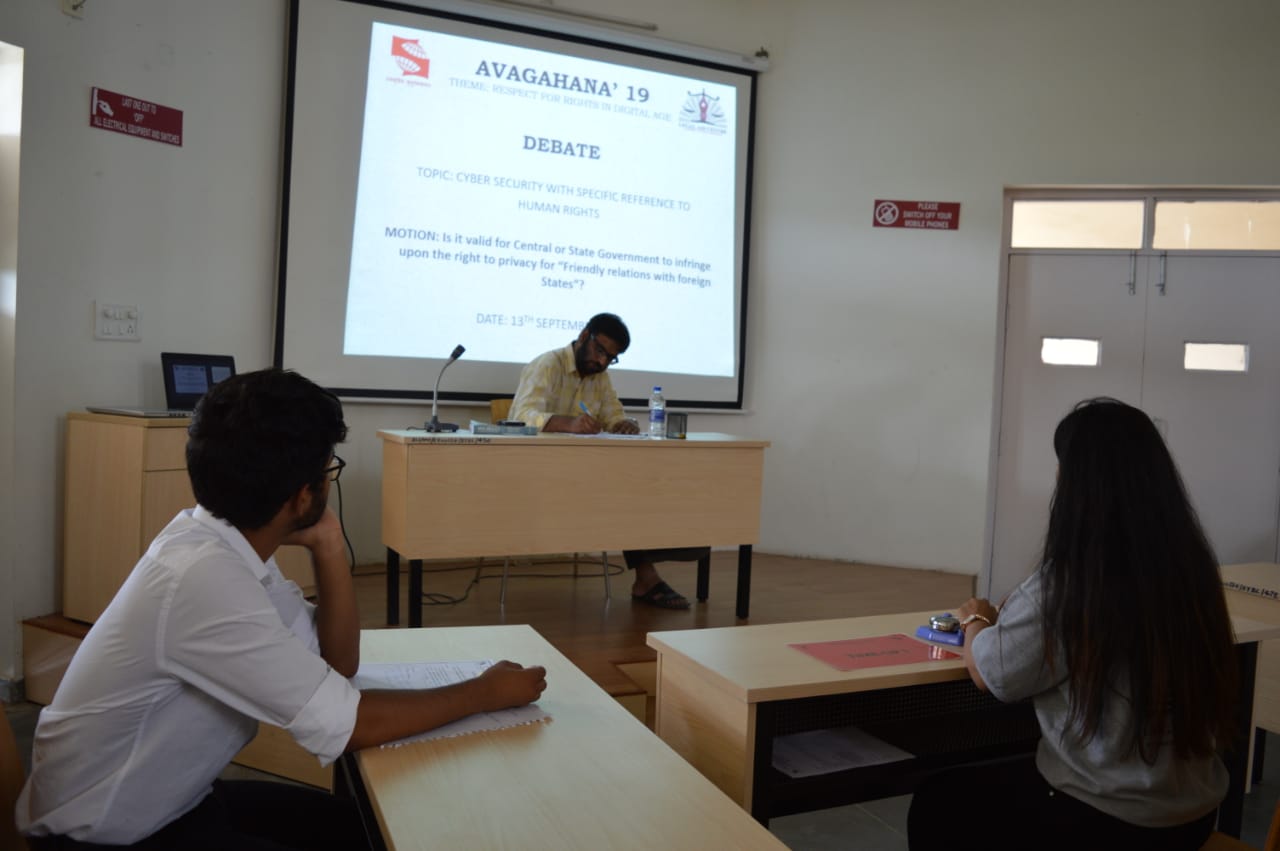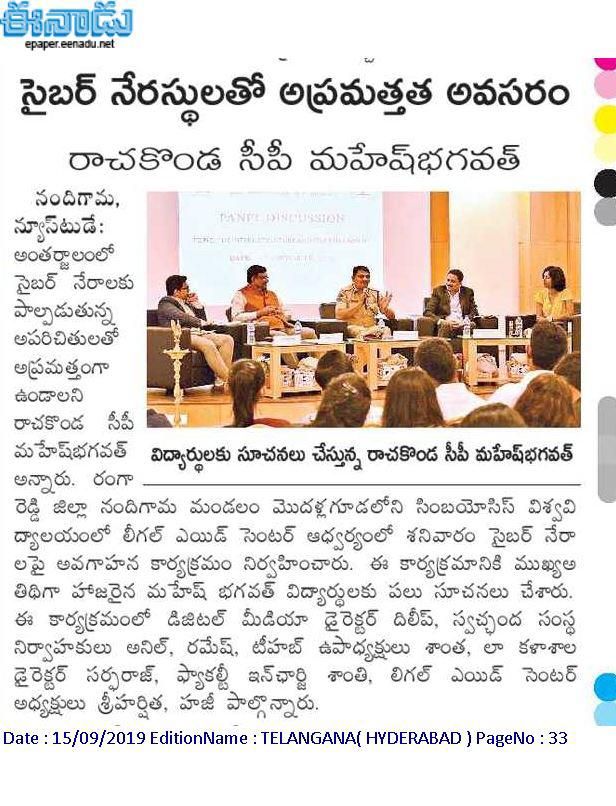- About
- Director's Message
- Admission
- Academics
- Research & Publication
- Student Life
- Student Activities
- Training & Placement
- Centres for Specialization
- Achievements
- Monthly Newsletter
DATE: 26TH JANUARY, 2020
TIME: 8:00 AM
VENUE: ACAD BLOCK
This event was conducted by the Cultural Troupe of SLS-H. The event started off at 8:00am with the hoisting of the national flag by the Chief guest, Director of SLS-H and SIBM and the Campus Adminstrator followed by the national anthem. The crowd was addressed by Director of SLS-H and SIBM, the campus administrator concluded by the Chief Guest Prof. Dr. K.V.S Sarma, vice-chancellor of MNLU.
After the speeches, there was a singing competition where we witnessed a number of talented participants perform patriotic songs. The winners were Bhargava and his Team from SLS-H, Ashmita Baidiya and her team from SIBM-H. The winners were given a cash prize. The event was concluded by a performance by the Dance Cell of SLS-H.
This event was conducted by the Cultural Troupe on the occasion of Lohri and Sankranti. On 14th evening, on account of lohri, bonfire was set up and music was played. The students seemed to have enjoyed the evening a lot.
On 15th morning, several games were conducted as a part of Sankranti celebration. The games include, kolam potti (rangoli competition), sankranti rahasyam (whisper challenge) and ring toss. Decorations were put up. Kites were also distributed to the students. The following were the winners of the games.
- Kollam potti: Deepali
- Ring toss: Maanas
- Whisper Challenge: Smriti and team
- Grand Prize Winners: Smriti
The winners were given their gifts and they were filled with joy. Overall, the event was a success.
Consumerism is a social movement seeking to augment the rights and powers of buyers in relation to sellers. The consumer movement aims to disseminate awareness among consumers with respect to their rights and duties. The law has now evolved “caveat emptor” to “caveat venditor”. In today’s world consumerism has now come to a point where people consume more resources than what are produced. This has consequently led to depletion of Natural Resources and also environmental degradation where the planet is not able to recoup them as it did in the preceding generations. This led to the evolution of the concept of sustainable consumption and when a group of individuals subscribe to goods and services on the basis of their ethical, economic and social values he will be known as a “consumer citizen”. This thought inspired the Centre for Consumer Rights and Marketing, Symbiosis Law School, Hyderabad to organize a National Symposium on “Consumerism, Consumer Citizenship and Sustainable Consumption” where it invites paper from various fields in order to discuss various aspects that will help in promoting consumer citizenship and sustainable consumption. The inaugural ceremony was held on 11th January 2020. The faculty-In-charge of CCRM, Dr M Rajanikanth opened the Symposium by explaining the background of the themes. Prof (Dr.) Sarfaraz Ahmed Khan, former Director, Symbiosis Law school, Hyderabad, welcomed the delegates, and shared his views on the theme. The inaugural ceremony was graced by the Chief Guest, Justice M.S.K Jaiswal. He spoke about the issues related to consumers as a whole; he further addressed the problems which consumers face that they are not aware of, and various aspects of the consumer law. The Guest of Honour Mr. M. Krishna Reddy, who has a plethora of experience in the legal field, enriched the audience about creating consumer awareness and safeguarding consumer rights. The President of the Event Prof. H. Lajpati Rai spoke about his newly released book which gives an insight into his life from being a teacher to Vice- Chancellor in one of the most esteemed colleges in Andhra Pradesh. He also gave an in-depth analysis to how a common man must be aware of his rights with regard to being a consumer. Finally, the vote of thanks was given by Dr. Anuradha Binnuri, the Deputy Director, Symbiosis Law School, Hyderabad, where she praised the Centre for Consumer Rights and Marketing, Symbiosis Law School and thanked all the delegates for the hard work and energy they put in the Symposium.
The Technical session commenced post lunch. The theme of the first technical session was consumer citizenship and sustainable consumption. Where people from various fields came in and correlated the aforementioned theme with such field. Next up, was the plenary session one commenced where the dignitaries from all over India presented their paper on the sub- theme of their choice which was relevant to the theme. “E-commerce and Crony Consumerism” was the sub-theme for the second technical session, wherein the delegates spoke about the theme with respect to e-commerce and also talked about the hazards of crony consumerism.
The technical session 3 commenced on day two. The sub-theme for the aforementioned session was “Consumer Protection and Criminal Liability”. The delegates in this session primarily spoke about the criminal liability that was introduced in the new Consumer Protection Act, 2019. Technical Session 3 was followed by technical session 4, the sub-theme for this was “Consumerism and Consumer Advocacy” which dealt with the evolution of consumerism and also covered the issues with and challenges in relation to consumer protection in India. The Plenary Session 2 commenced post lunch where in the dignitaries spoke about their findings in relation to the broad theme of the Symposium. The Plenary Session 2 was followed by the valedictory ceremony where the faculties-in-charge Dr. M. Rajanikanth and K. Shanti thanked the participants as well as the dignitaries for their contribution and support.
Topic: The Transgender Persons (Protection of Rights) Bill, 2019
Date: 26/09/2019, Tuesday
Time: 5:30pm – 7pm
Venue: Centre for Human Rights
Weekly Discussions on recent developments in the legal field is an initiative taken up by Centre for Human Rights (CHR). In this regard, the fourth weekly discussion organized by the Centre for Human Rights on 22nd September 2019 where the topic of discussion was the Transgender Persons (Protection of Rights) Bill, 2019. The meeting was presided over by Prof. Dr. Sarfaraz Ahmed Khan, former Director, Symbiosis Law School, Hyderabad. Faculty-in-charge, Mr. Ahmar Afaq, Assistant Professor SLSH, was the co-panelist. Ms. Mahee Vora, member of Centre for Human Rights, briefed about the Bill and stated the salient features and the background of the Bill and stated the significance of having such legislation in the country.
Transgender Persons (Protection of Rights) Bill, 2019 was introduced in Lok Sabha on July 19, 2019 It defines a transgender person as one whose gender does not match the gender assigned at birth. It includes trans-men and trans-women, persons with intersex variations, gender-queers, and persons with socio-cultural identities, such as kinnar and hijra.
The issue raised was that though the Bill rewrote the older definition of transgender with a slightly more acceptable one, the definition is still vague and invites abuse of interpretation. And despite several rounds of submissions from the Trans community, the Bill maintained that transpersons would need external certification to be established as transpersons.
Intersex variations is defined to mean a person who at birth shows variation in his or her primary sexual characteristics, external genitalia, chromosomes, or hormones from the normative standard of male or female body. The Bill prohibits the discrimination against a transgender person, including denial of service or unfair treatment in relation to education, employment, healthcare and access to or enjoyment of goods, facilities, opportunities available to the public; right to movement, right to reside, rent, or otherwise occupy property; opportunity to hold public or private office; and access to a government or private establishment in whose care or custody a transgender person is.
The next issue which was discussed was about the right of transgenders to be chosen to be identified as a man, woman or a transgender person irrespective of sex reassignment surgery and hormonal therapy. The Bill was criticized for having transgenders to go through the district magisytrate and district screening committee to get certified as a transperson and a revised certificate of the same may be obtained only is the individual is ready to undergo surgery to confirm his/her gender. This is gross violation of their fundamental right. Moreover, the bill has no provision for an appeal or a review of the decision taken by the District Magistrate. The bill is also silent on whether a trans person who holds a male or female gender certificate will have access to government welfare schemes and programs meant for transgender people. Besides seemingly violating the Supreme Court ruling, these provisions are also contrary to international standards for legal gender recognition.
The said Bill was opposed in 2018 for criminalizing begging which made the community more vulnerable since they are often forced to take begging as their profession since they lack employment opportunities due to non-acceptance in the Indian society. The same provision has been removed from the Bill and specifies certain offences like compelling transgenders to do forced or bonded labour or denial of use of a public place or removing them from household, village of any other place of residence and any sort of physical, sexual, verbal, emotional or economic abuse is an offence.
The debatable issue is that although the Bill recognizes these offences against transgender persons, the penalties for these offences vary between six months and two years, and a fine. The Transgender Bill however does not mention any punishments for rape or sexual assault of transpersons as according to Sections 375 and 376 of the Indian Penal Code; rape is only when a man forcefully enters a woman. In terms of protection, the Bill offers a measly six months to two years imprisonment for those found guilty of atrocities against transpersons as mentioned in the Bill.
It was also contended that the bill is problematically silent on the matter of reservation for transpersons in jobs and education sector. It is no secret that the community still faces joblessness due to prejudice. It was remarked that the Transgender people in India should be able to live with dignity and nondiscrimination, and have equal access to education, employment, and health services. To enact a law that meets international standards, it’s critical that parliament fully bring transgender people into the conversation. It was contended that the transgenders themselves were not informed about any such legislation and the bill was passed without any consultation of the stakeholders.
The Director made his remarks on the Bill and concluded that there must be further acceptance of the community in the Indian society and they must be given equal and adequate opportunities just like the mainstream society. The discussion ended on a successful note. It was wonderful to see many opinions and suggestions being put forth by the participants. The Centre looks forward to many more discussions with the same zeal and vigor.
Mr. Ahmar Afaq
Faculty in-charge
Centre for Human Rights.
THEME- NALSA (Protection and Enforcement of Tribal Right Scheme, 2015)
Date and Time: - 27th September, 2019, (10:00 am to 3 pm)
Location: - Grampanchayat Office, Kundelkunta Village.
Faculty-in-charge: Prof K. Shanthi
| 1 | Sriharshitha Chada |
| 2 | Meghna Mishra |
| 3 | N. Srinidhi Reddy |
| 4 | Anushka Agarwal |
| 5 | K. Amuktha Rao |
| 6 | Nidhi A.K |
| 7 | Harish Kesav |
| 8 | Akshaya Chintala |
| 9 | Harshwita |
| 10 | Bhakti Khule |
| 11 | V.S. Bharat Ram |
| 12 | Vinitha Reddy |
| 13 | Sanjana |
| 14 | Tanisha |
| 15 | Lahari Gurrala |
| 16 | Rahul Prasad Shambu |
| 17 | Jaishuk Reddy |
| 18 | Yuktika Kadali |
1. District Legal Services Authority, Rangareddy District
2. Jeeyar Integrative Medical Services Hospital, Hyderabad (JIMS)
The Legal Aid Centre in association with the District Legal Services Authority of Ranga Reddy District organized a Legal Awareness camp on NALSA (Protection and enforcement of Tribal Right Scheme, 2015) on 27th September 2019 at the Gram Panchayat office, Kundelkuntla village. The main objective of this camp was to enlighten the tribal community about the benefits of education, their rights and entitlements under the various government schemes that they can avail. A medical camp was also conducted in collaboration with the Jeeyar Integrative Medical Services Hospital (JIMS) to provide medical assistance. A general health check-up was conducted and all the villagers were provided with dengue prevention medication.
PURPOSE OF THE AWARENESS CAMP:The main aim of the legal awareness camp and the medical services camp was to ensure that all the people in the Kundelkuntla village are being made aware about their rights and duties as citizens and that they can avail free medical health check-up. The camp was being organized by the Legal Aid Centre in association with the District Legal Services Authority, Ranga Reddy and the Jeeyar Integrative Medical Services Hospital, Hyderabad (JIMS). The tribal people in the Kundelkuntla village have faced many issues, lack of literacy being one of the crucial issues. The people remain unaware of their fundamental, legal and statutory rights. They lack the knowledge about the welfare schemes run by the government. The unfamiliar judicial processes make the tribal people dread the court, even if they are ones who are suffering from lawlessness. Apart from assisting with legal education, medical camps and free health check-ups have also been arranged for the tribal people because access to healthcare creates the opportunity for poor people to lead healthy lives and to build a promising future. Free medical camps are set up with a sacred aim to bring awareness amongst the deprived population of the country who have no access to basic healthcare services or knowledge about the diseases they are suffering from. They inform the whole truth about the diseases and treatments of the patients. Every patient that attended the camp were treated similarly and cared for evenly.
ABOUT THE LEGAL AWARENESS CAMP:The members of the Legal Aid Centre, Symbiosis Law School, Hyderabad conducted a legal awareness camp and medical check-up camp for all the people residing in the Kundelkuntla village. This camp was organized in collaboration with the District Legal Services Authority, Ranga Reddy district, who played a very vital role in spreading awareness about the legal aspects which will help the people of the village avail their rights and the Jeeyar Integrative Medical Services Hospital (JIMS) who played a significant role in the healthcare sector by providing free medical assistance to the people in the villages and to make them acquainted with various communicable diseases and how to prevent the same
SPEAKERS ADDRESSING THE GATHERING:Dr. T. Vijay Bhasker Reddy, Senior Advocate, Ranga Reddy District Court and also a member of the District Legal Services Authority, Ranga Reddy elucidated the various government schemes which are available for the tribal population of the village.
Smt. B. Bharata Lakshmi, Advocate, Ranga Reddy District Court, imparted knowledge about the welfare schemes which are available to the women, the rights they have and different ways they can protect them.
P. Atchyuth Ramasastri, Advocate, Ranga Reddy District Court gave the people insight about the child’s rights and how important it is for the youth to get educated as they are the future of the nation.
Rajya Lakshmi, MD in Homeopathy, JIMS Hospital, Hyderabad, spoke about air borne, water borne diseases and also made them aware about basic rules of sanitation. The people of the village were provided with medical assistance by her and her team which was very fruitful.
Ms. K. Shanthi, Faculty in charge, Legal Aid Centre, Symbiosis Law School, Hyderabad addressed the issue of Child Labor and requested the people of the village to send their children to school as education is very important.
A medical registration desk was set up by JIMS and every patient who had come to get a check-up was being registered by the Legal Aid Centre in the records of JIMS. Every patient was given a patient card which would help them in the future to avail free medical services like blood tests, full body check-up. Every patient received an individual patient code(sym/kun 00) which shall make it easy for the hospital to record their medical history. People of all ages irrespective of their gender were enthusiastic to receive the services.
1. There were around 86 people who attended the medical camp seeking the services of
the doctors.
2. The people were of varied ages ranging from infants to very elderly people.
3. There were around 4 to 5 doctors consulting the patients, however the patients had to
comply with few necessary steps before the consultation which were taken care of by
the Legal Aid Centre members, the process started from the patients furnishing their
basic details like name, age, address, occupation etc, which were filled in by the
members in the consultation form, then their height and weight were measured along
with their blood pressure, then they were sent to the doctors for consultation.
4. The patients came to the doctors with problems ranging from body pains to high
fevers from a very long period of time, the doctors then gave the diagnosis accordingly by interacting with the patients about the symptoms and other aspects and would explain to the patients the situation and prescribe the appropriate remedies.
5. The patients would then proceed to the area where they would receive the medicines
prescribed by the doctors by the staff.
The villagers were gathered to listen to the doctor’s precautions on how to prevent Dengue which was one of the major concerns of the area like using clean water, washing hands properly, filling in empty spaces with wastewater etc. Then the people proceeded to listen to the words of the judge which enlightened people on the rights available to them concerning to issues more prevalent there like – old parents not being taken care of by their kids, the partition of property and land problems, not receiving pension etc. The crowd after listening had proceeded to file complaints which were taken by the Legal Aid members, which were majorly divided into 3 categories of
The members of the Legal Aid Centre set up three complaint desks for issues related to women, children and government schemes respectively. The members present at the complaint desk interacted with various people of the village ranging from old people to children. There were some complaints registered with the members of the Legal Aid Centre regarding the housing and medical facilities available in the village.
The following complaints have been registered:
1. There is no availability of a medical store or a hospital nearby after 4:00 PM which creates a lot of problems for them when there is case of emergency. The people in the village have to travel an hour to Shadnagar to get basic medical aid and it is difficult for the ambulance to come into the village as there are no proper roads in the village.
2. Many people of the village do not have proper housing facilities. Since the population of the village is more, there are a lot of houses which are over-crowded.
3. The village lacked basic necessities which were very important for them. The tribals claimed that bus services by the government twice a day i.e morning and evening has stopped because of which connectivity to towns have become unsafe for children to reach school as well their homes on time. Proper roads have not been laid done after government sanctioning it between two villages.
4. Government schemes such as providing money for whomever built toilets at their houses are not received yet by few villagers.
5. Villagers claimed that there were many stray dogs in the village which bite the villagers and hence leading to rabies. They had also claimed for subsidies for rearing cattle i.e cows etc.
The expected outcome from the legal awareness camp is to make the people aware of the basic laws and legal aid programs made specifically to address their problems, thereby ensuring various ways of solving them. The ultimate aim of the camp was to take these problems to the relevant authorities to be looked into, hence promising a seamless future. The members were assigned to direct the villagers towards the awareness and the medical camp and ensure that everyone got an opportunity to address their issues and made sure that the registration desk, complaint desk and the medical camp was set up promptly. They ensured that all the complaints received are noted, details of the villagers who attended the camp are registered and the medical assistance was provided without any chaos. They were successful in knowing what exactly their problems are and that they can covey the same to the concerned authorities. The members strived towards the success of the camp and guaranteed that the outreach of this camp was beneficial.
Ms. K.Shanthi
Faculty In-Charge
Legal Aid Centre
Dr. Anuradha Binnuri
Deputy Director
Symbiosis Law School, Hyderabad
Prof Dr. Sarfaraz Ahmed
Former Director
Symbiosis Law School, Hyderabad
Centre for Alternative Dispute Resolution (CADR) successfully organised a workshop on ADR mechanisms on 21st September 2019, at Symbiosis Law School, Hyderabad for the newly admitted batch of 2019-2024.
The workshop was conducted with an aim to introduce the various mechanisms of Alternative Dispute Resolution prevalent in the Indian Legal System to the new batch of 2019-24, since this field happens to be a completely new and unaccustomed field for the 1st year students. The workshop gave them basic theoretical knowledge about Arbitration, Mediation, Negotiation and Conciliation
The workshop was conducted by Mr. Sravan Unnam, MCIArb, Partner at Unnam Law Firm, Hyderabad, Founder Trustee & Head – Hyderabad Arbitration Centre [HAC], Certified Commercial Arbitrator and Accredited Mediator, IIAM, Kochi. The history of Alternative Dispute Resolution (ADR) was briefly drawn out with interesting and relevant examples. The important statutes on ADR were introduced with the prime focus upon the Arbitration and Conciliation Act, 1996. The relevance of certain sections of this Act were discussed along with the salient features of the Indian Contract Act, 1872 which facilitate ADR. It was a very interesting and knowledgeable experience for the students as Mr. Unnam engaged them by using real life scenarios that he had come across in his practice. It was a successful workshop that left the students with a new found interest and understanding of the field of ADR.
Date: 18th September, 2019
Timings: 5.30 am - 10.30 pm
Venue: Academic Block and the Mess
Dress Code: Retro fashion
The three day fun filled event started on 18th September, Wednesday. The students had to dress up in Retro clothes for the day. After the scheduled class hours the students assembled in the mess to watch a dance performance by the talented members of our Dance Club. The surprise performance by the 5th years did not fail to bring a smile on the faces of the audience. The vibrant day ended with the movie screening of ‘10 Things I hate about you.’
DAY-2 TOP TO TOEDate: 19th September,2019
Timings: 5:30 am – 10:30 PM
Venue Academic Block and the Mess
Dress Code: Same colour clothing
On the next day, the students dressed up in same colour clothing from Top to Toe. After the scheduled class hours, the students gathered in the mess to celebrate Onam, an important festival of Kerala. Students who are based from Kerala showcase a thrilling dance performance in the mess portraying their rich culture. Following the performance, traditional games of Kerala were played as competitions. Those games were:
1. Vellam Kudi Malasaram: or the water drinking competition in which the participants should drink as many glasses of water as they could drink in one minute2. Sundariki Bottu Thodal: in this game, the participant will be blindfolded in front of a portrait of a girl and will be asked to place a bindi (or dot) on the right spot on the forehead of the girl.
These exciting games were enjoyed by all.
DAY- 3 ETHNIC DAY:
Date: 20th September, 2019.
Timings: 9.30 am - 10.30 pm
Venue: Academic Block, Auditorium and the Mess
Dress Code: Ethnic Wear
Our country is home to several deities, umpteen languages, many cultures and several festivals. The Ethnic Day celebrated in our campus annually is organized by the Cultural Committee, to primarily celebrate the secularity of our country and to represent all our cultures and states. We organize several competitions and activities to engage all the students in representing and celebrating the various states and festivals of India.
Prior to Lunch (i.e., before 12.30pm) The day started off with the class photograph event where every class was to have an official class photo taken. The timings for the event was from 9.30am to 12.30pm. Later on, a competition where classes of all five batches were given ten themes a few days in prior and according to which the class was required to decorate the class. For example; Two different festivals will be given to the BA and BBA students of batch 2016-21, but they are required to make four separate and individual photobooths. The same was to be applied to all batches and the theme for which was ‘Festivals of India’.
The third event for the day, “Anonymous Flowers aka Jaane Tu Ya Jaane Na”, involved a counter which was set up from where people can buy a flower for Rs.20 each and anonymously send those along with their messages with the name and division of the person of their choice written on it. The counter was made available on 19th September (a day prior to Ethnic Day) and 20th September (Ethnic Day). Post 12.30 pm, all students proceeded for lunch. Post Lunch (i.e., 5.30pm onwards) The performances in the auditorium started from 5.30pm, starting with “Bollywood Night” where a performance was showcased by each class on the basis of an actor allotted to that particular class. All classes performed on the songs related to one particular actor that was allotted to them through the process of a lucky draw that took place a few weeks prior. After the performances ended, there was a price distribution ceremony for the Photo Booth competition and Bollywood Night for which the results were:
Photobooth Competition:
Winners- Division A, Batch of 2016-21
Runners Up- Division D, Batch of 2016-21
Judges: Dr. Priyanka Mohod, Mr. Amish Abdullah, Ms. Shivalaxmi Arumugham & Ms. Rukma Lavania.
Winners- Division C (2015-20)
Runners Up- Batch of 2016-21, Div D and C.
The final event for the day involved a candlelight dinner organised in the mess, which signified the end of annual Ethnic Day.
EVENT REPORT
DETAILED SUMMARY
"Being a parent wasn’t just about bearing a child. It was about bearing witness to its life. With this, the centre had put forth an idea to conduct a group discussion on the topic “SURROGACY”.
It was held on 18th of September, 2019 at 5 pm, in the assembly hall of SLS, Hyderabad and was conducted for a duration of 2 hours.
The judges were faculty members of SLS, Hyderabad, Md. Ahmer Afaq and Mr. Pankaj Rao Umbarkar, who are highly experienced in their fields and well versed in this topic.
Objective of the event:- The objective of the event was to discuss the different aspects to the bill and provide an analysis as to if it was justified or not.
- It is to develop an understanding on the elements of the bill and if they are applicable in our society
- To bring out the positive changes that can be made in this bill
- The group discussion format is a way of helping the individual develop oratory skills and help put forth a point to others in an effective and persuasive manner.
- To promote research skills in a student and the ability of self analysis of any given topic
The event started with the discussion over the pros and cons of the surrogacy bill. The discussion laid special emphasis on the trauma that surrogacy poses on the women who have to go through it and its implications on the child as well as the positive impacts of the same. The discussion was carried over for 15 minutes. Below mentioned aspects were pot forth by the members:
FOR:
- Surrogacy allows the infertile couples to have a child of their own. So basically, the couples who are declared infertile by the medical authorities can opt for the surrogacy so that they can have their own biological child.
- Surrogacy is a means of livelihood for people. surrogacy has an expanding market, a large number of clinics and IVF services run at huge costs in the markets at varying prices. These prices can be both fixed and variable. In united states, an amount of $100,000 to $150,000 has to be paid, half of it in Ukraine and quarter of it in India.it also provides a means of earning to the women who don’t have any other option to carry on any other profession.
- Surrogates have a proven track record of carrying healthy pregnancies, which often makes surrogacy more likely to be successful than fertility treatments for intended parents.
- The pathetic aspect that the women is subjected to is the fact that if during ultrasound the child is found to have some defects, or is still born or is not as per expectations, the mother is subjected to abortion either it’s her consent or not. Many a times, it has been seen that litigations arose when the surrogate mother is a close relative.
- Commodification of a child is again a disturbing element and a disheartening aspect of the concept of surrogacy. The sponsors, at the instance of the money power seek to buy child as a quality product i.e. deciding for the sex selection as well as the choice of a good genetic heritage as per their expectations
- Altruistic surrogacy (the one done as generous action) exploits the woman majorly as in addition to the ruthless deprivation of dignity, the woman is also made no compensation as it is taken to be a generous action. A woman is made to conceive, carry and deliver as per the contract and meanwhile she is made to go through every both physical and mental trauma, all in order to meet the desired end and hence putting it to the worst denial of her humane treatment. Article 1 of the united nations slavery convention explicitly mentions surrogacy to be likened as slavery. Breach of human dignity being the major point of discussion as far as surrogacy is concerned, includes both the exploitation of the woman as well as the sale of a child as done in case of transaction of goods. This clearly is contrary to the recognition of the inherent dignity of all member of the human family, to quote the preamble of the universal declaration of human rights.
- The emotional trauma that a woman goes through when she bears a child for someone else and ultimately would never be recognized by the child in future, renders that woman psychologically disabled. Separation leaves both new born and the carrier mother disrupted and hence disturbs the psychic development of the both of them.
- single mothers, homosexuals and unmarried couples can’t opt for surrogacy and hence they are deprived of motherhood.
Every participant discussed the pros and cons of the bill and stated how a few provision could have been omitted/modified or that more clauses should have been there. The event allowed each participant to get a holistic idea on the utility and effectiveness of the bill, through this they have better understood the different aspects of surrogacy, its prevalence in India, the differences in its usage from India to other countries and they have also accumulated knowledge over the different laws and provisions that accompany this concept and some of the existing laws are contradictory and must be amended.
Event was a success and the students had concluded with exceptional and in depth knowledge of the topic and the different perspective of the different students. The event was successfully concluded by 18th September, 2019, by 8pm
Centre for Alternative Dispute Resolution (CADR) conducted the 1stChallenger Series on 15th September 2019, at Symbiosis Law School, Hyderabad for the upcoming 8th NLIU INADR International Law School Mediation Tournament (ILSMT) at Bhopal, India
About the Challenger SeriesThe Challenger Series has been introduced with an objective to provide a competitive platform to the students for upcoming ADR competitions, wherein only those students who have previously represented the college in a National level ADR competition would compete and the meritorious students would represent our esteemed institution at an International level.This competition aims to promote the students to connect and compete globally.
The eighth edition of the NLIU — INADR International Law School Mediation Tournament (NILM) will be held from 22nd to 24th November 2019. The tournament format and scoring system will follow the pattern used by the International Academy of Dispute Resolution (INADR) in the competitions hosted by them around the world. The Tournament, has aged gloriously over the years, having achieved the distinction of being one of the oldest and the largest mediation competition in Asia. Thecompetition aims to train students in the powerful art ofmediation by simulating carefully constructed real lifenegotiations.
About the Event18 students participated in the 1st Challenger Series organised and conducted by CADR. This competition was adjudged by Mrs. Manisha Sravan Unnam, MCIArb, Registrar & Secretary General – Hyderabad Arbitration Centre [HAC] and Partner at Unnam Law Firm, Hyderabad. The participants enthusiastically showcased their skills and provided a tough competition for each other.After three intense sessions of mediation, two teams emerged as the winners. These meritorious teams shall be representing our esteemed institution at the 8th NLIU INADR International Law School Mediation Tournament (ILSMT) at Bhopal, India.
Capsule Course on Copyrights 2019
A capsule course essentially combines a detailed course spanned over a larger period of time taught in a very short period of time with a minimum compromise in the information or knowledge being conveyed. The capsule course spanned across two days, 14th and 15th September, 2019, the course highlighted the matters related to Copyrights. The students interreacted and learnt from Prof. (Dr.) Anirban Mazumdar, an esteemed and immensely knowledgeable professional in the field. The course comprised of various interesting events and topics related to copyrights.
About the guest: Prof. (DR.) Anirban MazumdarHe is Professor to WB National University of Juridical Sciences (NUJS) and also the Ex-Chair Professor of MHRD, IPR Chair, at NUJS, Kolkata. He has completed his L.LM from National Law School of India University, Bangalore, M Phil and Ph. D. from NUJUS, Kolkata. His specializations include IPR and Information Technology Law. His specializations include IPR and Information Technology Law. Mr. Mazumdar is fellow of Max Planck Institute for Intellectual Property, Munich and has been a scholar at the Touro Law School, New York University and Cardiff University. He has also been a Cegla Scholar at the Tel Aviv University, Israel.
Course Online:The course was basically designed to give a detailed idea about copyrights in India. The course aimed at brevity without a compromise of knowledge. Mr. Mazumdar introduced to the basics of copyrights. After that he started to explain to , various topics like Copyright as Human Right, Public Good, Robust Public Domain, Sale of Goods and Copyright and certain important case laws like Walter V. Lane, (1900) AC 539 etc. The Concept of Copyrights were explained thoroughly, main element of copyrights, i.e. Originality, evolution of originality standard and the case law related to it Associated Publishers ( Madras) Ltd. V. K. Bashyam, Fundamentals ( Anil V. Kunal Dasgupta ), the different types of works, types of rights, author and owner.
On the second day of the capsule course, Dr. Mazumdar gave insight about other topics like Engine Doctrine, Idea – Expression, expression merger, hot news (R.G. Anand V. M/s Delux Films), other rights, exception ( Manu Bhandari V. Kala Vikas Kendra AIR 1987 DELHI 13), (Burlington Home Shopping Pvt. Ltd. V. Rajnish Chibber), offences , copyright in DNA sequence, remedies, various judgements, punitive damages, fair use doctrine, moral right in mural, copyright case against Google.
Capsule Course Examination:The two-day session was preceded by an examination which served the purpose of judging the knowledge acquired by the students during the course and deciding whether or not they have completed the capsule course with required knowledge before awarding them the certificates.
Marking Format:The examination was based on a multiple- choice type question paper for a duration of an hour. The students were marked on a total score of 30 and the marks obtained by them were divided into 4 categories, i.e., excellent ( 24<), very good ( 20<). They were awarded certificates stating the same accordingly.
Valedictory Proceedings:The Guest then interacted with the students and informed them to approach him regarding any doubts without any hesitation during his stay on the campus. Vote of thanks was proposed by CIPRA member, Nishant Shah.
A two- day event was conducted on 14th and 15th of September on the topic ‘Capsule Course on Contemporary Issues of Sports Law’. The course aimed to create awareness among students about sports arbitration, data in sports, women and sports (gender issues in sports), corruption and mismanagement in sports and sports and media law. The chief guest conducting the event was Mr. Tarun Singh from GNLU who has expertise in the field of Sports Law
14th September:The capsule course started with the felicitation ceremony of Mr. Tarun Singh by Professor Dr. Sarfaraz Ahmed Khan, the former Director of Symbiosis Law School Hyderabad. Then the Director also addressed the gathering about his views on sports law. He also congratulated and thanked Mr.Tarun Singh on accepting the proposal to conduct the Capsule course and ensure his presence. There were 60 participants from Symbiosis Law School Hyderabad and there were 5 external participants from various other colleges who had participated for the course.
After the felicitation ceremony, the first session of the course begun. Mr. Tarun Singh briefed the students about the difference between a game and sport. He explained that any sport which involves mental or physical action is considered as a sport. He also clarified that if chess is considered as a sport or not.Then he told the students about the data in sports and the importance of gender equality required in sports. Mr. Tarun then briefed about some cases related to sportspersons who faced legal implications in their careers and how it affected their lives. The session moved on with the introduction of Intellectual Property Rights (IPR) and its use in sports law. Mr. Tarun also made the students aware of the International Olympic Committee (IOC), its members and the working of the Committee. The international police agency named Interpol was also introduced to the students and how it manages and deals with the doping issues which arise various sports.
15th September:On the second day of the course, two other agencies related to sports i.e. World Anti-Doping Agency (WADA) and National Anti- Doping Agency (NADA). Mr. Tarun explained about a case related to doping on Prithvi Shaw an Indian Cricketer who had faced charges of doping in April recently. The punishments faced for doping was also briefed. After the end of the session, the participants had to go through an examination of 10 marks which comprised of Multiple Choice Questions (MCQs). The winners of that examination were awarded coupons from Decathlon. After the examination, the students had an interaction session with Mr. Tarun on the topics related to Sports Law and cleared their queries related to Sports Law. Then, a vote of thanks was delivered by one of the cell members to Mr. Tarun by thanking him for devoting his precious time for the event and making this event a grand success. The participants were also awarded with certificates for attending the Capsule course. The students enjoyed a lot and gained lot of knowledge from the experience of Mr. Tarun and were very thankful to him. They could explore various fields of Sports Law which were unknown to them and this helped them develop interest in this unique field of law.
14/09/2019
The judiciary is an arm of government responsible for administering justice. This system of courts seeks to resolve conflict arising out of the operation of laws; this involves the application of remedies and the retribution of offenders. Present visits have been planned to understand the functioning of the court in day to day life. All students of 2018-23 Batch were participated in present court visits on 6th of Sept. 2019 and 13th of Sept. 2019. Present visits have been planned under Civil Procedure Code I and Legal Skill IV
Objectives of Court Visit-- To understand the working of the court
- The nature of duties of the Judicial Officer
- To observe how Public Prosecutor is opening the case.
- Pre-charge hearing
- The way Judges, defense Lawyers, Prosecutors handle the case.
As law faculties we arranged court visit for students. It was the days where students were felt happy and curious about court visit. They were eager to learn so many things like how the judiciary works, what are the rules and regulations followed by the courts, practical aspects and experiences how cases filed before the court of law, how to behave and way of mannerism, arguments style and many more. The court visit planned for 2018-2023 Batch under the head of academic purpose. The Ranga Reddy District Court was selected for court visit. All the necessary requirements fulfilled by the faculty in - charges regarding this, i.e. to take the prior permission of High Court, to take the permission from Ranga Reddy District Court and to take undertakings from students etc.
Mr. Pankaj Umbarkar, Faculty in charge of Code of Civil Procedure Code and Dr. Priyanka Mohod, Faculty in-charge of Legal Skill (Ethics and Mock Trial) has arranged the court visit. On the date of 13/09/19 the court visit planned for same batch for Divisions B and D, (approx 100 students) were visited to court. The journey was started from early in the morning on 8:30 AM. The students were observed the proceedings and visited library of the court, Bar Room, Notary Room etc. All staff of the court co-operated us very well. Students were very happy with new experience and practical learning. Students were reached at campus around 4:00 PM with full of motivation and knowledge. These two Divisions also submitted their court visit report and shared their experiences and observation made in court rooms.
05/09/2019
Mr. Sadashiv Deshmukh Former registrar of the Bombay High Court and Director of Clinical Legal Education at Maharashtra National Law University, Mumbai have been Invited to deliver the lecture on “Power of Attorney, Mandatory Forms of Petition and Complaints under consumer Protection Act on 4th of Sept. 2019 to 5th of Sept. 2019. The Guest has been welcomed by the speech of former Director Symbiosis Law School, Prof. (Dr) Sarfaraz Ahmad Khan. Subject incharge of Drafting Pleading and Conveyancing introduced the guest to students and request guest to deliver his lecture
First Day:On the very first day i.e 4th of Sept. 2019 Mr. Sadashiv Deshmukh covered the aspect of Power of Attorney. All divisions from A to D were sat in Assembly Hall. Mr. Deshmukh was more particular with respect to the relevant provisions and drafts hereof.
Second Day:On the next day, Mr. Deshmukh revised the portion he completed and then started with complaint under consumer protection law. He also explained as to how to prepare petition for divorce. He further dealt with the mandatory forms of petitions like Suit for Recovery of Money, Suit for Specific Performance of Contract etc. Mr. Pankaj Umbarkar, subject incharge offered vote of thanks to the guest.
| # | Meeting Details | Date | Venue | Attended By |
|---|---|---|---|---|
| 1 | Jeeyar Integrative medical services hospital and homeopathic medical college under the AEGIS of Jeeyar Integrated Vedic Academy JIVA | 7 Jun 2019 | JIMS Hospital | Visited JIMS Hospital to finalize the event with Director and to work out the nitty-gritty of the cancer screening and general health checkup camp. Meeting took place with Director and Dr. Sudhamathi. |
| 2 | Visited Community Hospital Shadnagar to meet Dr. Chandu Nayak Deputy Director Medical and Health care services. This meeting was to discuss about detailing a medical officer, a pharmacist, and a lab technician to estimate blood sugar level and haemoglobin check. Another request was given to them for bringing medicine for common ailments and distributing the medicine as per prescription to the needy. | 10 Jun 2019 | Shadnagar Community Hospital | Visited alone and participated in the meeting with Dr. Chandu Nayak, Mr. Joycula Srinivas. Met Dr. Srinivas medical superintendant and discussed the matter in detail. |
| 3 | Liasoning visit to Anganwadi, PHC Nandigama, to tie up with PHC Staff for cancer screening, general medical checkup, meet lab technician, meet pharmacist and Doctor on duty at PHC Nandigama | 12 Jun 2019 | PHC Nandigama, Anganwadi | Self alone |
| 4 | Visited JIMS and met Dr. Sudhamathi and discussed way forward for abnormal findings in cancer screening of cervix for women. | 20 Jun 2019 | JIMS Hospital | Self and all those doctors who examined the patient and gave report. Met the gynaecologist Dr. Lakshmi and obtained advise. |
| 5 | Visited community hospital Shadnagar to discuss the abnormal findings of blood estimation and cancer cervix examination. | 26 Jun 2019 | Shadnagar Community Hospital | Self discussed with Dr. Srinivas and taken appointment for all the patients to be sent in batches for further investigation and prescription of treatment. |
A mega health camp for cancer screening for cervix and general health checkup was organized on 14 JUN 2019 at symbiosis Hyderabad campus, a scope initiative with SIBMH and SLSH in collaboration with Jeeyar Integrative medical services hospital and homeopathic medical college under the AEGIS of Jeeyar Integrated Vedic Academy JIVA. Other partners who joined hands were ‘Vikas Tarangini’ a voluntary group trained under Basavatarakam Indo American cancer hospital and research institute Hyderabad. Community hospital Shadnagar also participated in the health camp. All the equipments, accessories and machines required for cancer screening and general health checkup were brought by Vikas Tarangini group and primary health centre Nandigama. In two locations both the events were carried out under the able guidance of Dr. Lakshmi MD OB Gynae and Dr. Sudhamathi Dr. Kalyani and around 20 medical college senior students were present. Vikas Tarangini group was also present. On the other location Dr. Phalgune MD from Primary health centre Nandigama did general health checkup and prescribed allopathy medicine. The Dr. was assisted by pharmacy and lab technician who also estimated blood sugar level. Vikas Tarangini group brought all sterile equipments for examination and strict aseptic technique was followed. The programme commenced at 0900 hours on 14 JUN 2019 and got over at 1700 hours. Ladies were screened for cancer cervix. Colposcopy done for 45 women. 13 women have found to be having abnormal findings who are referred to gynaecologist in shadnagar hospital. Then general health checkup was done for 134 personnel. BP check and blood sugar estimation done. 5 of them have raised BP. 9 of them have Raised blood sugar. All were detected first time. They will be now referred to Nandigama PHC for further investigation and treatment.
From All 3 Institutes (SIBMH, SLSH & SOCIETY) 100% attendance for medical checkup could not be obtained because of admission procedure of SIBMH
Normal Blood Sugar Level 72 to 99 mgs/dlRaised Blood Sugar Level:
- Yadamma158 mgs/dl(SOC)
- Manan209 mgs/dl (SOC)
- Dr. Lingaiah296 mgs/dl(SLSH)
- Mr. J. Yadagiri140 mgs/dl(SLSH)
- K. Lavanya157 mgs/dl(SOC)
- Shri Ramanna161 mgs/dl(SOC)
- Shantamma294 mgs/dl(SOC)
- Mr. P Ramesh208 mgs/dl(SLS)
Raised Blood Pressure level:
- A. Srinivas150/100 mm of Hg(SLSH)
- Mr C. Janga140/100 mm of Hg(SOC)
- Mr. C Madhu140/100 mm of Hg(SOC)
- Mr. Anthaiah170/100 mm of Hg(SOC)
- Mr. P Shekar150/100 mm of Hg(SOC)
Very thankful to JIMS, Community Hospital Shadnagar, PHC Nandigama, Director SIBMH, Director SLSH and Campus Administrator SOCIETY office for supporting the event in a big way
Faculty of Law
A 'One-day FDP / Workshop on Enhancing Quality Research In Faculty of Law' was conducted by Prof (Dr.) Shashikala Gurpur, Dean, Faculty of Law, Symbiosis International (Deemed University), Pune., Director, Symbiosis Law School, Pune for SLS-Hyderabad faculty in the Hyderabad campus on 17th June 2019. Former Director of SLS-H Prof. (Dr.) Sarfaraz Ahmed Khan Welcomed and Felicitated the chief guest, In her address, she covered all the key elements regarding the enhancing the quality in research. she shared a few important tips to get the publications in scopus indexed journals and how to identify the problem for research. In her interaction, at the end of the programs, clarified queries raised by the participants. This event was initiated and organised by IQAC of SLSH with prior approval from Director Prof.(Dr.) Sarfaraz Ahmed Khan Deputy Director of SLS-H Dr.B. Anuradha proposed vote of thanks and all the faculty members were present, and It was an excellent learning experience for all the participants.
An FDP programme on "Teaching Pedagogy" by Prof.(Dr.) A Lakshminath, Pro-Chancellor Chanakya National Law University, Patna on 18-06-2019 is conducted for the teaching staff of SLS-H. Former Director of SLS-H Prof. (Dr.) Sarfaraz Ahmed Khan Welcomed and Felicitated the resource person Prof.(Dr.) A Lakshminath.In his address, he covered importance of various Pedagogical tools which will make the students to understand the subject in a better manner and he asked all the faculty to use the latest pedagogical tools in their teaching. In his interaction, at the end of the programs, clarified queries raised by the participants. Deputy Director of SLS-H Dr. B. Anuradha proposed vote of thanks and all the faculty members were present, and It was an excellent learning experience for all the participants.
DATE: 26 JUNE 2019
RESOURCE PERSON: Dr. Timothy Cadman, Research Fellow, Griffith University, Australia
Introduction to the Faculty Seminar Series:
To foster research culture among faculty members at SLS-H, a faculty seminar series has been proposed by the former Director, Dr.Sarfaraz Ahmad Khan. As part of this series, each faculty member is to make a presentation/seminar, ever Wednesday between 3:00 and 4:30 pm, on any topic of his/her research (published/prospect) and elicit questions and suggestions in order to improvise it. This presentation not only helps the presenter in improving but it also enables other faculty members to think divergently. The faculty seminar series is organized on behalf of Research and Publication cell.
Profile of the Resource Person:To begin the inaugural session, Dr. Timothy Cadman was invited to address the faculty members about knowledge acquisition and knowledge dissemination to substantiate the importance of research in an academic set-up. Dr Timothy Cadman is a Research Fellow at Griffith University, Australia and he specialises in governance of sustainable development, environmental politics and policy, climate change, natural resource management including forestry, responsible investment, and institutional performance.
Salient features of Dr. Timothy Cadman’s talk:Today’s world survives on knowledge and various manifestations of knowledge. All institutions and agencies of the world are struggling to capture knowledge and disseminate it the appropriate beneficiaries for tangible outcomes. Capture and dissemination call for research and academics is one potential field for this but the question is, are academics empowered enough to disseminate knowledge and help in policy decisions? The answer to this question is mixed. Some intellectuals say that NGOs are better researchers than Academics. Is this statement acceptable to academics? The truth is Academics has credibility but no power, and NGOs have power but no credibility. As faculty members, we need to bank on this credibility, create visibility and generate knowledge that promotes sustainability. Every course in the University should have a sustainability dimension within it to create avenues for research. The session was for 30 minutes followed by 15 minutes of Questions and Answers.
REPORT ON GUEST TALK ON
CLIMATE CHANGE –CONCERNS AND RESPONSE OF THE INTERNATIONAL COMMUNITY
DATE: 3rd July 2019
Background:
Climate change is one of the major environmental threats of today. Increased human activity on earth is causing environmental degradation. It further leads to changes in the earth’s topographical pattern and then to natural disasters like landslides, floods, etc. on a large scale basis. It is highly difficult to control it as it is a growing phenomenon due to the industrial development of nations across the world. If Climate change continues in the present scale and intensity earth will become a dangerous place for the future generations. In this regard, the nationwide consensus is required along with awareness on conservation of nature and its resources. To this end, a guest talk was organized on 26th June 2019 by the Environment Law Cell, Symbiosis Law School, Hyderabad, on the topic “Climate Change –Concerns and Response of the International Community” for educating the students and faculty on graver issues involved in climate change.
About the Program:The resource person was Dr. Timothy Cadman, Research Fellow at the Institute for Ethics, Law, and Governance, Griffith University, Australia. By reading out excerpts from his book “Climate Refuge” Dr. Timothy Cadman made the students heed to the signals of waning earth and he also interacted with the students on the conflicting interests of the developed and developing nations in their approach towards ‘believing and knowing’ the concept of Climate Change. Eminent environmentalist and winner of Justice Kuldeep Singh Award, Dr. K. Purushotham Reddy, and D. Narasimha Reddy, Public Policy Expert and Activist were present. Prof. (Dr.) Sarafaraz Ahmed Khan delivered welcome address and Dr. Anuradha Binnuri felicitated the guests.
About the Speaker:Dr. Timothy Mark Cadman BA (Hons) MA (Cantab) Ph.D. (UTas) is an expert in institutional governance and sustainable development including natural resources and forestry, climate change and market-based mechanisms. He is Doctorate of Philosophy from the University of Tasmania and Bachelor of Arts from the University of Cambridge. He is the recipient of the Faculty of Business Early Researcher of the Year Award by the University of Southern Queensland in the year 2012.
Ojectives:The major objective of the guest talk was
- To educate awareness on the issues involved in climate change
- To discuss the importance of the control of climate change
The guest talk helped in achieving the following outcomes:
- Knowledge of the relevant aspects of climate change
- Understanding the control of climate change
Second year students of BA LLB were present for the guest talk. The speaker was interactive with the students and this encouraged the students to take active participation in the talk and in the interactive session. The guest lecture gave the students an insight into the various issues in Climate Change which will be beneficial for them in the coming years in research as well as in studies.
Coming Soon
on
“CONTEMPORARY HUMAN RIGHTS ISSUES IN INDIA”
in January, 2018
Centre for Human Rights is committed to develop an exhaustive understanding of the Human Rights in students specifically and in masses generally. The main objective of the centre is to make students instrumental and champion the cause of Human Rights. Centre for Human Rights with an intent to achieve its objectives conducted a 3rd National Level Essay Writing Competition on the theme of “Contemporary Human Rights Issues in India” in the month of January, 2018. The theme was bifurcated into 16 major sub-themes such as Human Rights of persons with disabilities, Gender Justice and Human Rights, Vulnerability faced by the old age people, Women’s rights, Rights of Minorities and so on.
DATA PROTECTION FRAMEWORK IN INDIA
India lacks behind in having a proper statute to recognize data protection laws and protection of personal data. Recently, the Government of India had set up a Committee of Experts to study various issues relating to data protection in India and formulate specific suggestions on principles underlying a data protection bill and draft such a bill. The primary objective was to ensure growth of the digital economy while keeping personal data of citizens secured and protected. Therefore, to curb the issues related to the same, a White Paper was drafted to welcome public comments on how a data protection law must be framed.
on
“Mergers and Acquisition Transactions-An Introduction”,
dated: 19th January, 2018
Mr. Yashojit Mitra, a partner at Cyril Amarchand Mangaldas’, Mumbai office, was invited by the Training and placement Cell of Symbiosis Law School, Hyderabad to give a guest lecture on Mergers &Acquisition Transactions-An Introduction. Mr Yashojit Mitra introduced the students to the world of M&A.
M&A being an elective subject for the senior batch and a topic of great importance in every field of negotiation, the students gathered a lot of information about the same.
Coming Soon
Coming Soon
Coming Soon
Coming Soon
dsfdfdfdsdsdfdrgs
SUBMITED BY:
MEMBERS ATTENDED:
-
Shriharshitha Chada (PLV)
-
Chaitra Pavuluri (PLV)
-
N. Srinidhi Reddy (PLV)
-
Lahari Gurrala (PLV)
-
Manogya Lakshmi (PLV)
-
Amuktha K (PLV)
-
B. Vinitha (PLV)
-
Bharath Ram (PLV)
-
B. Deepthi(PLV)
-
Nidhi A.K (PLV)
-
Rahul Prasad (PLV)
-
Harish Kesav
-
Apoorva Ghore
-
Anushka Agrawal
-
Koustrika Bandyopadhyay
-
Meghna Mishra
-
Bhakti K
BRIEF INTRODUCTION:
Ragging is originally a western concept and was a form of social interaction between seniors and juniors in colleges, however in today’s day and age they have taken out very brutal and inhuman form where the seniors indulge in indecent activities. As ragging is most prevalent in colleges, UGC (University Grants Commission) recognizes the prevalence of this problem and provides for the same under Section 3(j) which defines ragging as - Any act of physical or mental abuse (including bullying and exclusion) targeted at another student (Fresher or otherwise) on the ground of colour, race, religion, caste, ethnicity, gender (including transgender), sexual orientation, appearance, nationality, regional origins, linguistic identity, place of birth, place of residence or economic background.
Symbiosis Law School follows the UGC Guidelines and is a recognized University under the same; we understand the importance of making sure that the campus is a complete Ragging free zone. Ragging has a social, physical, economic, academic and psychological effect on a student’s life. Since, even some highly reputed colleges and institutions have a terrible history of ragging; we recognized the problem and collaborated with District Legal Services Authority, Ranga Reddy to help all the students understand that our campus is a Ragging free zone.
PURPOSE OF THE EVENT:
The purpose of the programme was to make the students of Symbiosis International (Deemed University), Hyderabad aware of the provisions they have in the collage regarding measures against ragging and the safegurads which are provided to them under UGC guidelines and Indian Penal Code. The programme was done to ensure that students are well aware that our college is a ragging free campus and any such acts will lead to serious consequences. The Legal Aid Centre, Symbiosis Law School, Hyderabad took up the opportunity of collaborating with District Legal Services Authority of the Ranga Reddy District whose theme for the month July is Anti-Ragging in order to spread the message against ragging.
OUTCOME:
This event helped the students learn about the various provisions they have regarding ragging under UGC guidelines and Indian Penal Code. They now know that Symbiosis Law School, Hyderabad and Symbiosis Institute of Business Management, Hyderabad have Zero Tolerance towards ragging.
All the students present in the event took an oath against ragging which was administered by Professor Dr. Sarfaraz Ahmed Khan, former Director of Symbiosis Law School, Hyderabad.
ABOUT THE EVENT:
The event was organized for all the batches of Symbiosis Law School and Symbiosis Institute of Business Management. The Director of Symbiosis Institute of Business Management has given the welcome address where he addressed about the major issues faced by the students due to ragging.
The theme for the month of the District Legal Services Authority was Ragging Menace and the same initiative was taken up by the Legal Aid Centre, Symbiosis Law School, Hyderabad for which Mr. G. Uday Kumar, Secretary of District Legal Services Authority was the chief guest. He addressed that the students in universities are not only facing physical form of ragging but are undergoing financial, emotional and sexual ragging. He briefed the students regarding the provisions laid down by the Hon’ble Supreme Court against all the forms of ragging.
As provided by the UGC, a video against ragging was presented to illuminate the young minds about the extreme consequences faced by the victims as well as the students who have committed the offence.
The Deputy Director of Symbiosis Law School, Hyderabad Dr. Anuradha Binnuri has explained the importance of Anti-Ragging committee, which was set up by the Symbiosis International University
and has provided the students with the Anti- Ragging helpline numbers of Symbiosis International University and Symbiosis Law School, Hyderabad.
Professor Dr. Sarfaraz Ahmed Khan, former Director of Symbiosis Law School, Hyderabad has given a detailed explanation of UGC Guidelines & Telangana Ragging Prohibition Act. The programme ended with an Anti- Ragging Oath taken by all the students present administered by Professor Dr. Sarfaraz Ahmed Khan.
Venue: Auditorium
Date: 31st July
On the eve of Dr. S.B. Majumdar’s birthday the students of SIBM and SLS Hyderabad came together and put a beautiful show of dance, music, drama and fashion to celebrate the various talents of the students. The programme began at 11.00am and ended around 1.40pm with students breaking for lunch. The detailed event flow for the same is attached herewith.
|
ISD EVENT FLOW: 31 July, 2019 (Wednesday) |
|
|---|---|
|
10:30 - 10:40 |
Student report at the venue |
|
10:40 - 10:45 |
Introduction of S.B. Majumdar |
|
10:45 - 10:55 |
SIU Video |
|
10:55 - 10:56 |
Invite the dignitaries to stage |
|
10:56 - 11:00 |
Lighting of the lamp |
|
11:00 - 11:05 |
Welcome speech by SLS Deputy Director |
|
11:05 - 11: 15 |
Presidential address by SIBM Director |
|
11:15 - 11: 25 |
Presidential address by SLS Director |
|
Cultural Programme Flow |
|
|---|---|
|
11: 30 - 11:40 |
SIBM Music |
|
11:41 - 11:43 |
SLS Music Set Up |
|
11:43 - 11:55 |
SLS music performance |
|
11:55 - 12:00 |
Stage set up for dramatics |
|
12:00 - 12:30 |
SIBM Drama |
|
12:30 - 12:34 |
SIBM dance set up |
|
12:34 - 12:40 |
SIBM Solo dance performance |
|
12:40 - 12:42 |
SLS stage set up |
|
12:42 - 12:52 |
SLS Dance performance |
|
12:52 - 12:53 |
Stage set-up |
|
12:53 - 12:57 |
SIBM Group dance performance |
|
12:57 - 1:00 |
Fashion show stage set-up |
|
1:00 - 1:10 |
SIBM Fashion Performance |
|
1:10 – 1:15 |
Address by international student |
|
1:15 – 1:20 |
Address by international student |
|
1:20 - 1:25 |
Vote of Thanks by SIBM Deputy Director |
|
1:25 - 1:27 |
National Anthem |
|
1:27 - 1:32 |
WDC Drama |
|
1:32 |
Break for Lunch |
Pictures from the event;
The Centre for Real Estate and Taxation Laws organized a Quiz Competition ‘Tripping on Tax’ held on 17th July 2019 at Symbiosis Law School, Hyderabad. There were several topics and sub-topics including Goods and Service tax, Union Budget 2019-20, taxation structure of India and general topics relating to taxation. Participants were supposed to show up in a team of 2. A cap of 30 teams was fixed for this round. The competition was conducted in 3 rounds. The first round was ‘Testing Times’ which a written objective test comprising of 20 questions. 1st round started at 10:30 AM till 11:00 AM. The test was conducted in room test was conducted in room no. 127 and 136.
The Second round was ‘Word for word’ held in the Convention hall. Out of 30, only 10 teams qualified for this round. The quiz master asked one question to each team and the teams were expected to give the correct answer for the question. There were total 5 questions asked to one team out of which the last round of questions was a picture round- ‘Picture Perfect’. 5 teams qualified for the next and final round. All the participants of the 2nd round were handed a packet of refreshments. The bags used for keeping the refreshments were hand-made by the members of the Centre, made out of old newspapers promoting eco-friendly practices.
The final round commenced at 3:30 PM with 5 teams. This round was divided into a rapid fire round in which each team was given 60 seconds to answer 6 questions, and a buzzer round wherein whichever team pressed the buzzer first got to answer the question. This round was judged by the faculty in-charge of the Centre Mr. Chandra Sekhar Alladi and Mr. Hafajatali Sayyed. At the end of the round, TN-18 won the first place and TN-24 were the runners up.
Prof. Dr. Dwaraknath, Mr. Ahmar Afaq, Mr. Radhakrishnan along with the judges handed over the prize to the winning teams. The event ended at 4:30 PM.
SYMBIOSIS LAW SCHOOL, HYDERABAD
INDUCTION PROGRAMME – JULY 2019
DAY: 01: ICE- BREAKING SESSION
After the inaugural ceremony of the new academic year for the new batch of students, an ice breaking session for all the students was organized on the campus wherein students actively participated in it. This session was organized with an intention to make students comfortable in the new environment at Symbiosis Law School, Hyderabad. As the students take a leap into a new career they are faced with anxiety, curiosity and sometimes fear. The thought of spending 5 years away from home might sometimes be daunting for a student.
With this view in mind, trainers from Dishi Consultants were invited to conduct the ice-breaking session for the students. They aimed at making the students comfortable and create a launch pad for them to start off their careers with a positive note. Their main focus was to make the students understand what TEAM is all about. They believe in Trust Empathy Attitude Motivation and the focus of the session was also on the same theme.
The session began with an introduction of each student with their fellow mates followed by human scavenger activity wherein students were given a task which aimed at realizing the importance of communication and building relations. With umpteen activities throughout the session, students imbibed many valuable lessons like trusting each other on campus, being empathetic and kind towards fellow mates, and so on. During the session, students were also shown few motivational videos so that they could draw inspiration from those who faced challenges in life and ended up being successful in life. The teams also focused on making students understand the importance of having right attitude, positive thinking, facing different challenges in life and so on. The team enthralled the students with a number of fun-filled activities like exercise, dance, sing, and communicate with each other so that they mingle with their peers in a better way.
By way of storytelling, sharing one’s experiences, individual as well as group activities students learnt a lot from the session about each other and were open to one another while being entertained and engaged in different activities. It was heart-warming to watch large group of students participating this event and making the best of the day. It was a wonderful evening with a lot of memorable moments captured to cherish forever. The session ended with good music, dance and cheers!
About the organizers:
Having identified the gap between the academic and the corporate world, a group of young and dynamic professionals started Dishi Consultants in 2011. The word “Dishi” in hindi means direction and in Chinese means “Man of Virtue”. The objective of Dishi, as an organization, is to create a blend of both these meanings and impact organizations by enhancing productivity and performance through effective people skills. Dishi comprises of highly skilled, motivated & committed professionals who facilitate transformation of the participants. A team of 4 trainers visited Symbiosis Law School, Hyderabad and conducted this ice-breaking session on the 1st of July 2019 from 2pm to 5pm in different classrooms. The session ended up with a refreshment to all the students.
During the induction of students of the 2019 - 24 batch of BA.LLB and BBA LLB of SLS Hyderabad, was when this event which layed emphasis on Gender Sensitization and Prevention of Sexual Harassment at work place, took place under the presidency of CENTRE FOR GENDER STUDIES (CGS ) which is headed by Dr. Priyanka Mohod .
Venue- It was conducted on the 4th of July of 2019, in the assembly hall of SLS, Hyderabad.
Time- 9:30 AM -12:30PM
Date- 4/07/2019
Guests- The Guests were Prof. (Dr.) Rekha Pande and Ms. Shwetha Luthra.
Former Director of Symbiosis Law School Hyderabad, Dr. Sarfaraz Ahmad Khan addressed the students as well as The Registrar sir of SIU enlightened the students in this accession. Prof. (Dr.) Dwarakanath, Associate Professor of Symbiosis Law School Hyderabad, welcomed everyone to the event with his warm words. He acknowledged the effort Dr. Rekha Pande , who besides having a busy schedule and Ms. Shwetha Luthra, who is a very busy legal consultant, would have put in and still made time to become a part of our event. He also expressed his love and affection towards all the students who were a part of the event. Being humble about his knowledge in topics related to Gender Sensitization, sexual Harassment etc. he limited his words and concluded by referring to a personal experience from his own early life, and explaining how the society in the past conditioned girls and boys to behave differently, stick to predetermined gender roles and not do what the other gender was expected to do. He also explained how the society has changed over the years and how every girl now is allowed, and mostly able to do what any boy can do and vice versa.
ABOUT DR. REKHA PANDE ADRESS-
Dr. Rekha Pande is currently the Director of the Centre for Women's Studies and a Professor of History in the University of Hyderabad, India. She is a well-known and well published scholar in the inter-disciplinary areas of History and Women's Studies. Prof. Dr.Rekha Pande started off by expressing her happiness to see the number of girls which was almost equal to or more than the number of boys in the hall, attending the event. She further explained how less were the number of girls pursuing a career in law was, back in her time and how the number of girls have increased as the years have passed. She also said that she hopes this increase in number of girls in law colleges shall also reflect in law firms, courts etc. as well. Later on, her conversation went to how, today in society everyone knows what is politically and theoretically right but how not many are able to practice it in their personal life. The next concept that she explained was how "work “was explained by economists and how it impacted women. In economics work was anything for which someone gets paid and therefore women who worked in their houses without demanding money were seen as not working. She also explained how after a lot of efforts the work done by women was also acknowledged. She explained how the collective effort of women resulted in census questions to women being changed from "what do you do?" To "how do you spend your time?"
She shared a personal experience of her's in which she met a family in the rural parts of Hyderabad. She told us that, that and many other such families spend a higher part of their resources on their sons, send them to private schools, get them better facilities, provide them with better medical care and give them the best of anything that they can, whereas their own girl children receive a smaller part of the familie's resources, are send to local madras as, receive less better facilities, are not provided with adequate medical care and not getting the best of anything. She also explained how easily a girl child is deprived of resources, education and other facilities in order to take care of the family or look after young ones etc. She concluded by laying emphasis on how the issues that women face will be solved only when those issues are addressed by the society as a whole and not women alone, as every woman is the daughter, sister, wife, friend or mother of someone; only a world of equal Justice will be able to bring about a better future.
ABOUT MS. SHWETHA LUTHRA ADDRESS-
Ms. Shwetha Luthra is a legal professional predominantly interested in human rights related causes, be it addressing issues of sexual harassment, or developing more progressive laws for criminal offenders suffering from mental health issues. She is legal consultant at SASHA Bangalore. The structure of the talk by Ms.Shwetha Luthra was far different from that of Dr.Rekha Pande. Ms.Shwetha Luthra conducted a more interactive session in which the involvements of the participants were of a higher extent. She started of with an exercise which made the students understand that multitasking is not easy in every situation and talking between such an events will not let them concentrate on what is being discussed there.
Later on she asked few brain teasers to the students. Every question made everyone realise how preconditioned their mind was about associating certain occupations or certain roles to certain genders and certain relationships. Later on she went onto discussing about what sexual Harassment is, who are the victims of sexual Harassment, How not only women are the victims to sexual Harassment, how provocative or revealing clothes are not the prime reason for being sexually harassed, how Sexual Harassment in a public place is different from sexual Harassment in workplace, how redressal can be sought for sexual Harassment etc. In the last parts of her presentation Ms.Shwetha Luthra gave information about why, when and how we should seek Redressal for sexual Harassment.
Dr. PRIYANKA MOHOD - VOTE OF THANKS
It was the faculty head of CGS, Dr. Priyanka Mohod, who delivered the vote of thanks, on behalf of SLS, Hyderabad and CGS. She thanked Prof. (Dr.) Dwarakanath, Rekha Pande and Ms. Shwetha Luthra for their presence in the event as well as their efforts to give awareness to our students about issues and perspectives of gender sensitization and about prevention and Redressal of sexual Harassment in the workplace. She thanked the student members of CGS, and every other person who helped in coordination of the event. Last but not the least; heartfelt gratitude to all students who attended the event with great enthusiasm was also expressed.
A session on orienting parents to concerns of mental health among the students of Symbiosis Law School, Hyderabad was conducted on July 1st 2019 by the Symbiosis Centre for Emotional Wellbeing (SCEW). The session was focussed on “Building Responsible, Respectful and Resilient Children in Today’s World”.
The Symbiosis Centre for Emotional Wellbeing (SCEW) was established in August 2018. SCEW, headed by a psychiatrist- Dr. Girija Mahale, consists of a team of psychological counsellors at every campus with inhouse facility for psychiatric consultation. The centre provides free, confidential and non judgemental counselling sessions, along with the conduction of awareness and educational workshops, and seminars. Counsellors are available for assistance during emergencies 24/7 via telephone. The parent session was conducted as part of SCEW’s initiatives to collaborate with all stakeholders: parents, faculty, institute, health centre, friends, and any others.
The workshop was conducted by representatives of SCEW, Ms. Aarathy R Lakshmi and Ms. Meghna Kohli, psychological counsellors with SCEW for Hyderabad and Bangalore campuses respectively. The 2 hour session was aimed at helping parents and guardians better understand their child’s mental health, and increasing awareness about emotional wellbeing.
The session broadly addressed the following areas:
● Knowing what are the concerns faced by students
● Learning the reasons behind the concerns faced
● Understanding how students cope with these difficulties
● Importance of parent involvement and roles played by parents
● Addressing parents’ emotions
The most commonly faced issues by students of the age group were discussed. Some of these included unhealthy coping mechanisms, problems related to communication, difficulty in adjusting to a new environment, procrastination, concerns with self-esteem, anxiety, problems with regulating emotions or moods, depression, and difficulties in interpersonal relationships.
A plethora of reasons were brought up in the forum to answer the question of why students face these issues. It was also highlighted and understood by the participants that many of these concerns are interrelated, and hence need to be tackled in a holistic manner. Post the discussion of the difficulties faced and the causal factors, the session then drew attention tolearning how students deal with the issues. Some of the unhealthy and healthy strategies of coping used by students were discussed.
Additionally, parents were aided with signs to watch out for in their children. Parents were informed of their involvement and role played in the process of transition. Specific communication strategies were discussed with the help of real life examples such as attendance shortage, and low grades. Lastly, parents’ emotions were also discussed as its also a transitioning phase for them, what is sometimes referred to as the empty nest syndrome . A 30 day self-care checklist was shared with them.
The methods adopted for the session were both instructional and interactive in nature. Activities were included to enhance introspection and reflection. Participants asked questions and gave suggestions that were welcomed by the facilitators. A variety of emotions were tackled in the duration of the session and afterwards as well.
In conclusion, the participants were informed of the procedure to reach out to the Psychological Counsellor and SCEW Team for the students’ emotional well-being. The session was well received by the parents and was noted as a good initiative towards promoting health. It helped in the collaboration between SCEW and parents, who are the primary important stakeholders in students’ health. It also helped in getting to know each other better, thus bridging any gap.
The session was a great learning experience for parents and facilitators to share their experiences openly without any hesitation or judgement. Parents reported that they found the workshop useful and visited the counsellor personally post the session for queries and concerns.
SYMBIOSIS LAW SCHOOL HYDERABAD
Symbiosis International (Deemed) University
(Established under Section 3 of the UGC Act, 1956)
Re-accredited by NAAC with ‘A’ grade (3.58/4) I Awarded Category – I by UGC
1ST NATIONAL LITERARY FEST OF SYMBIOSIS LAW SCHOOL HYDERABAD, 2019
INAUGURAL CEREMONY
Literary and Debate Society of Symbiosis Law School Hyderabad organised its flagship program, the 1st National Literary Fest, 2019 on 7th and 8th September in its campus. This two day program was inaugurated by Dr. Veerappa Moily, Former Union Minister for Law and Justice, Justice GR Swaminathan, High Court of Madras, Madurai Bench, Dr. Madabhushi Sridhar Acharyulu, Former Central Information Commissioner, Dr. Ishwar Bhat, Vice-Chancellor of Karnataka State Law University, Dr. GB Reddy, Dean, Osmania University.
The program commenced with the auspicious lighting of the lamp which was followed by the felicitation of the guests. We the had our former Director, Prof. (Dr.) Sarfaraz Ahmed Khan give the Welcome Adresss and President of the Literary and Debate Society, Navneet Dogra, declare the Fest open.
1ST PANEL DISCUSSION
As the part of this two-day National Event, a Panel Discussion on ‘Constitutional Morality and Public Morality: An Analysis of Recent Supreme Court Judgements’ was unveiled by the dignitaries. Dr. Moily explained how the Constitutional Morality evolved from the inception of Constitution. Justice Swaminathan while addressing the students emphasised the importance of Individual Morality which leads to Constitutional Morality to protect social harmony. Prof. G.B. Reddy explained how Morality was reflected in our Indian Constitution and how Constitution Makers visualised the importance of Morality. Prof. Ishwar Bhat, the Moderator of Panel Discussion, concluded the Panel Discussion by emphasising on the importance of both Public Morality and Constitutional Morality. After the Panel Discussion, the Panellists interacted with the students and answered their questions pertaining to judicial, administrative and legislative challenges and limitations in execution of moralities in the society.
2ND PANEL DISCUSSION
In the 2nd Panel Discussion, on the same day, Panellists Dr. M. Sridhar Acharyulu, former Central Information Commissioner Mr. Sushil Rao, Editor, Times of India and Ms. Satarupa Bhattacharya, Consultant Editor, Oorvani Foundation with Mr. R. Radhakrishnan, Assistant Professor, Symbiosis Law School, Hyderabad deliberated on “ As the 4th Estate of a Democracy, is the Media influenced or Influencing?”. Dr. M. Sridhar made a critical reflection of how media houses are segregated on political fronts and catering to the needs of political parties. Mr. Sushil Rao observed that media is playing a pivotal role in influencing the people and making them to stand for a right cause. Ms. Satarupa Bhattacharya shed light on importance of contextual usage of text in reporting. Mr. R. Radhakrishnan, the Moderator of the Panel Discussion concluded that Media is also confronted by the challenges due to global political and economic changes and at the same time it has tried to erode the influence of the State in the present world.
1ST SLSH BRITISH PARLIAMENTARY DEBATE
The first Edition of British Parliamentary Debate with the contestants from varied colleges kick-started its Preliminary Rounds in the afternoon session.
The two days saw rigorous debating by the participants who were adjudged by the Anusuiya Radhika and Vedika Walia, or esteemed Core Adjudicators. Out of 42 teams that had registered, the competition finally witnessed a cut throat competition between 24 teams. The Preliminary Round was divided into 4 rounds which saw an elimination of 16 teams. Out of the 8 who had qualified for the Semi Finals, only 4 entered the heated head to head battle of the Finals.
LIST OF JUDGES:
i.Ms. Anusuiya Radhika, Pass Out, LSRC
ii.Ms. Vedika Walia, 5th Year, Symbiosis Law School, Pune
LIST OF PARTICIPANT COLLEGES
-
Maharashtra National Law University, Aurangabad
-
ICFAI Law School, Hyderabad
-
Sultan Ul Uloom College of Law, Hyderabad
-
Damodaram Sanjivayya National Law University
-
St. Joseph's College of Commerce
-
CNLU PATNA
-
NALSAR University Of Law
-
Patna Law College
-
School of Law, Christ (Deemed to be University)
-
SVKM’s Pravin Gandhi College of Law
-
National Law Institute University, Bhopal
-
Loyola College, Chennai
-
Gujarat National Law University
-
BITS Pilani, Hyderabad
LIST OF WINNERS
|
AWARD |
PRIZE |
|
WINNER |
NALSAR University of Law |
|
RUNNERS UP |
NALSAR University of Law |
|
BEST ADJUDICATOR |
Samayantak Sen, NLIU, Bhopal |
|
SECOND BEST ADJUDICATOR |
Sanskar Jain, NALSAR, and Mohd. Mirza, SUltam Ul- Uloom College of Law |
|
BEST SPEAKER |
Abhijit V, NALSAR |
|
SECOND BEST SPEAKER |
Arjun Nayyar, DSNLU |
|
BEST NOVICE TEAM |
DSNLU |
LIST OF PRIZES
|
AWARD |
PRIZE |
|
WINNER |
|
|
RUNNERS UP |
|
|
BEST ADJUDICATOR |
|
|
SECOND BEST ADJUDICATOR |
|
|
BEST SPEAKER |
|
|
SECOND BEST SPEAKER |
|
|
BEST NOVICE TEAM |
|
OPEN MIC
The Literary and Debate Society organized ‘Open Mic’ on 7th September 2019 which was an in-house event aimed to encourage students to shed their stress and don their creative caps. This was an opportunity given to showcase the performer in them.
The Open mic had slam poetry, shayari, singing, rapping, monologue and even beatboxing. The judges for the same were our professors Ms. Rukma Lavania and Dr. Jayant Kasture. We were also graced by the presence of Joel Thottan from Terrible Tiny Tales (TTT).
We had our in-house band All String Attached perform a mix of English and Hindi songs. Crispy aka shivam Chaudhary rapped an original hindi writeup. Amitoj showed us a glimpse of how king Britannia would feel like if anime came to life through his monologue. Sumedha dedicated her poem to her friend she lost last year. The performance was so powerful, the audience could feel the emotions she felt.
LIST OF JUDGES
-
Ms. Rukma, Symbiosis Law School, Hyderabad
-
Dr. Jayendre Kasture, Symbiosis Law School, Hyderabad
LIST OF PARTICIPANTS
-
Monalisa jena
-
Sanjana s
-
Kritika
-
Ankit amartya
-
Madhav sharma
-
Shivam chaudhary
-
Himani
-
Sumer karekar
-
Parth jaisinghani
-
Shambhavi srivastav
-
Amitoj amrita
-
Sanjana A
-
Sumedha
-
Aarthi
-
Anushil
-
Bhoomika
-
Aatrika
-
Aditya jha
-
Medha mukherjee
-
Nidhi
LIST OF WINNERS
|
AWARD |
NAME |
PRIZE |
|
FIRST PRIZE |
Sumedha |
|
|
FIRST RUNNERS UP |
Sanjana S |
|
|
SECOND RUNNERS UP |
Himani |
|
SUSCITER: ONLINE CREATIVE WRITING COMPETITION
The Literary Fest also comprised of story and poem writing competitions under its event: Susciter. With a remarkable number of entries, Assistant Professor Mr. R. Radhakrishnan adjudged the entries.
LIST OF PARTICIPANTS
|
S. No. |
Name |
PRN |
|
1. |
Anwesha Bhattacharyya |
SLSH |
|
2. |
Adnan Hameed |
SLSH |
|
3. |
Nishant Bahuguna |
SLSH |
|
4. |
Aman Ahmed |
SLSH |
|
5. |
Manisha Nanda |
SLSH |
|
6. |
Chaitanya Tripathi |
SLSH |
|
7. |
Prateek Banerjee |
Trinity Institute of Professional Studies |
|
8. |
Aryadev Kapoor |
Indian Institute of Hotel Management, Mumbai. |
LIST OF WINNERS
Creative Writing Competition:
|
AWARD |
NAME |
PRIZE |
|
FIRST PRIZE |
Nishant Bahuguna |
|
|
FIRST RUNNERS UP |
Aryadev Kapoor |
|
Poetry Writing Competition:
|
AWARD |
NAME |
PRIZE |
|
FIRST PRIZE |
Anwesha Bhattacharya |
|
|
FIRST RUNNERS UP |
Adnan Hameed |
|
POP QUIZ
The Pop Quiz was conducted on 8th September, 2019 as part of the National Literary Fest. It was an internal event and it consisted of 15 teams from across the different batches. The participants were comprised in a team of two people. The pop quiz featured questions ranging from music, movies, books, series, art and culture. It was themed around popular culture events ranging from the year 1990 to the present year.
There were five rounds for this event. The first round was a preliminary round which was a written objective set after which 8 of the top teams proceeded to the next round. The second round was a buzzer round which qualified the top 6 teams for the next round which was a take a chance round, which involved connecting the clues to reach the logical answer. The Top 4 teams qualified after this round. This was followed by the audio visual round after which the 2 teams which scored the highest proceeded to the last round which was a rapid fire round.
The finalists were the team comprising of Anushree N. Murthy and Aishwarya Julinka Anand and the team comprising of Varnika Manral and Mahek Bhojwani. The winners of the pop quiz were Varnika and Mahek. The event was conducted between 1:30 pm and 3:00 pm on the 8th of September, 2019.
LIST OF PARTICIPANTS:
|
S. No. |
Name of 1st Participant |
Name of 2nd Participant |
PRN |
|
1. |
Siddhartha Mitra |
Mainak Biswas |
17010324133, 16010323130 |
|
2. |
Anushree N. Murthy |
Aishwarya Julinka Anand |
18010324024, 18010323012 |
|
3. |
P saurav menon |
Adnan hameed kp |
19010324076, 19010324008 |
|
4. |
Aishwarya Iyer |
Jessica Thomas |
16010324251, 16010323124 |
|
5. |
Pranay Dodla |
Abhinav Ramchandran |
16010323116, 16010324202 |
|
6. |
Harleen Kaur Rait |
Reshma Ch |
18010324054, 18010324165 |
|
7. |
Revanth Singh |
Ashish Chaudhary |
16010323045, 16010323014 |
|
8. |
Snehal Singh |
Apurv Luniyal |
16010324373, 16010323108 |
|
9. |
Areena Kausar |
Janvi Ahuja |
19010324038, 19010324052 |
|
10. |
Utkarsh |
Vaibhav chaudhari |
19010324097, 19010324099 |
|
11. |
Siddhi gupta |
Abhik Purkayastha |
19010324134, 19010324004 |
|
12. |
Faisal Feroz Khan |
Kush Khandelwal |
18010324049, 18010324071 |
|
13. |
Rajeshwaran Arumugam |
Sushanth chakka |
18010324001, 18010324037 |
|
14. |
Varnika Manral |
Mahek Bhojwani |
19010323126, 19010323064 |
|
15. |
Andey Bharathi |
Niharika Berry |
18010324019, 18010323092 |
|
16. |
Nishant Bahuguna |
Debapratim Deb |
15010323004, 15010323132 |
|
17. |
Abhijith Christopher |
Madhura Rajkumar |
16010323102, 16010323129 |
|
18. |
abhishek jena |
Ashrafur rahman |
19010323133, 19010323029 |
|
19. |
Aishleen Sahni |
Ayushi Verma |
17010324074, 17010323080 |
|
20. |
Siddhartha Mitra |
Mainak Biswas |
17010324133, 16010323130 |
|
21. |
Antarik Chakrabarti |
Adhitya Sankar |
17010323074, 17010323065 |
LIST OF WINNERS
|
AWARD |
NAME |
PRIZE |
|
FIRST PRIZE |
Anushree N. Murthy and Aishwarya Julinka |
|
|
FIRST RUNNERS UP |
Varnika Manral and Mahek Bhojwani |
|
PAINTING EXHIBITION CUM SALE
On the side-lines of the Programme on 7th September 2019 and in order to emphasize upon the importance of art and enrich the talent of budding artists, we opened doors for artists to paint or sketch a poster on a theme of their choice which would be exhibited and put up for sale on 7th September 2019. We invited registrations for the said event on August 7th 2019 and received a total of 33 posters from students of all batches by 3rd September 2019. On 7th September 2019, all the posters were displayed outside the mess and were put up for sale from 2.00 pm to 9.30 pm. All the posters were priced below Rs. 200 and out of the 33 posters exhibited, 31 posters were sold, the sales proceeds of which were handed over to the respective artists. The posters were handed over to the buyers on 11th September 2019 after the culmination of the 1st National Literary Fest.
TTT WORKSHOP
One of the hallmark and most awaited events of the First National Literary Fest conducted by the Literary and Debate Society, was the Terribly Tiny Tales workshop on 8th September 2019. Terribly tiny tales is a renowned social media page for writing and poetry content. The page has a huge following all over and people are mesmerised by their works. The Literary and Debate Society reached out to the Chief Curator of Terribly Tiny Tales, Mr. Joel Thotan to conduct the workshop
Around 100 students had participated who were ecstatic about the event and showed a great deal of enthusiasm during the entirety of the event. Mr Thotan gave us a run through about the various nuances of writing and encouraged participants to write and read aloud their works. The audience was mesmerised by Mr Thotan and there wasn’t a single moment of silence during the entire workshop, it was truly an Interactive session!
The participants were encouraged to upload their literature works on Terribly Tiny Tales’s app portal so fellow writers could read and share it.
A fun twist to the event was when Mr Thotan asked us to talk about our experience during our first date. This evoked some humours yet romantic responses. It was an amazing event, the crowd was instilled with a passion for writing and most importantly, everyone attending the session left with a smile on their face. Mr Joel Thotan really outdid himself . It truly was a grand success.
VALEDICTORY CEREMONY
The Valedictory Ceremony witnessed the presence of Prof. (Dr.) Sarfaraz Ahmed Khan, Convenor and former Director, SLSH, Prof, Anirban, MNLU, Dr. Srinivas Bandameedi, Co-Convenor and Faculty – In Charge of the Society. The former Director, Prof. (Dr.) Sarfaraz Ahmed Khan congratulated the Winners of all the competitions and appreciated the efforts of Literary & Debate Society for conducting this two-day National Event and appealed to come up with more such Programmes. The Core Adjudicators then took over the dias to announce the much awaited results of the 1st SLSH British Parliamentary Debate wherein the Winners were NALSAR (Mehreen and Bishesh), Runners up were NALSAR (Harsh and Aaratrica), Best Adjudicator was Samayantak Sen from NLIU, Second Best Adjudicator was a tie between Sankar Jain from Nalsar and Mohd. Mirza from Sultan Ul- Uloom College of Law, the Best Speaker was Abhijit Vadvalli from NALSAR and the 2nd Best Speaker was Arjun Nayyar from DSNLU.
MOVIE SCREENING
The 2 day extravaganza ended with the movie screening of "Bohemian Rhapsody," Writer: Anthony McCarten, Cast: Rami Malek, Lucy Boynton, Gwilym Lee, Brian May, after a poll. After 2 hectic days, students got an opportunity to relax through the film.
SCHEDULE FOR THE 1ST NATIONAL LITERARY FEST
Day 0: 6th September 2019
|
|
SR. |
EVENTS |
TIME |
VENUE |
|
|
NO. |
|
|
|
|
|
1. |
Registration |
5:30PM Onwards |
Assembly Hall |
|
|
2. |
Briefing by Core |
8:00PM Onwards |
Assembly Hall |
|
|
|
Adjudicator |
|
|
|
|
|
Day One: 7th September 2019
-
SR.
EVENTS
TIME
VENUE
NO.
1.
Inauguration
10:00-11:00 AM
Auditorium
2.
Panel Discussion 1
11:00AM-1:00 PM
Auditorium
I.1.
British
12:30-1:00PM
Breakfast Area:
Parliamentary
Guest House
Debate – Lunch
I.2.
British
1:15PM
Classrooms
Parliamentary
Debate (Release of
Fixtures)
I.3.
British
1:30-3:30PM
Classrooms
Parliamentary
Debate (Round 1)
I.4.
British
4:00- 6:00 PM
Classrooms
Parliamentary
Debate( Round 2)
I.5.
British
6:30-8:30PM
Classrooms
Parliamentary
Debate( Round 3)
II.1
Lunch
1:00-2:00PM
Breakfast Area:
Lunch for Panelists
Guest House
II.2.
Panel Discussion 2
2:00-4:00PM
Auditorium/
Seminar Hall
II.3.
Drama
6:00PM Onwards
Auditorium
II.3.
Open Mic
7:00PM Onwards
Auditorium
Day Two: 8th September 2019
-
SR.
EVENTS
TIME
VENUE
NO.
British
9:00AM-11:00AM
Classrooms
Parliamentary
Debate( Round 4)
1.
British
11:30AM-1:30PM
Classrooms
Parliamentary
Debate- Semi
Finals/ Novice
Finals
3.
TTT Workshop
10:00AM-
Convention Hall
12:30PM
Pop Quiz
2:00PM-4:00PM
Moot Court Hall
4.
British
2:30PM- 6:00PM
Auditorium
Parliamentary
Debate Finals
Valedictory
5.
Movie Night
7:30PM onwards
Amphi Theatre/
Assembly Hall
LIST OF SPONSORS
1. Associate Partner:
-
Indian National Bar Association
2. Media Partner
-
Lawctopus
-
Noticebard
3. Outreach Partner
-
Legge Rhythms
4. Technology Partner
-
V Dalph
5. Publication Partner
-
Notion Press
-
Taylor and Francis
-
Asia Law House
6. Energy Drink Partner
-
Monster
7. Food Sponsors
-
Ahaar Restaurant
-
Makers of Milkshake
-
Trap Kitchen


